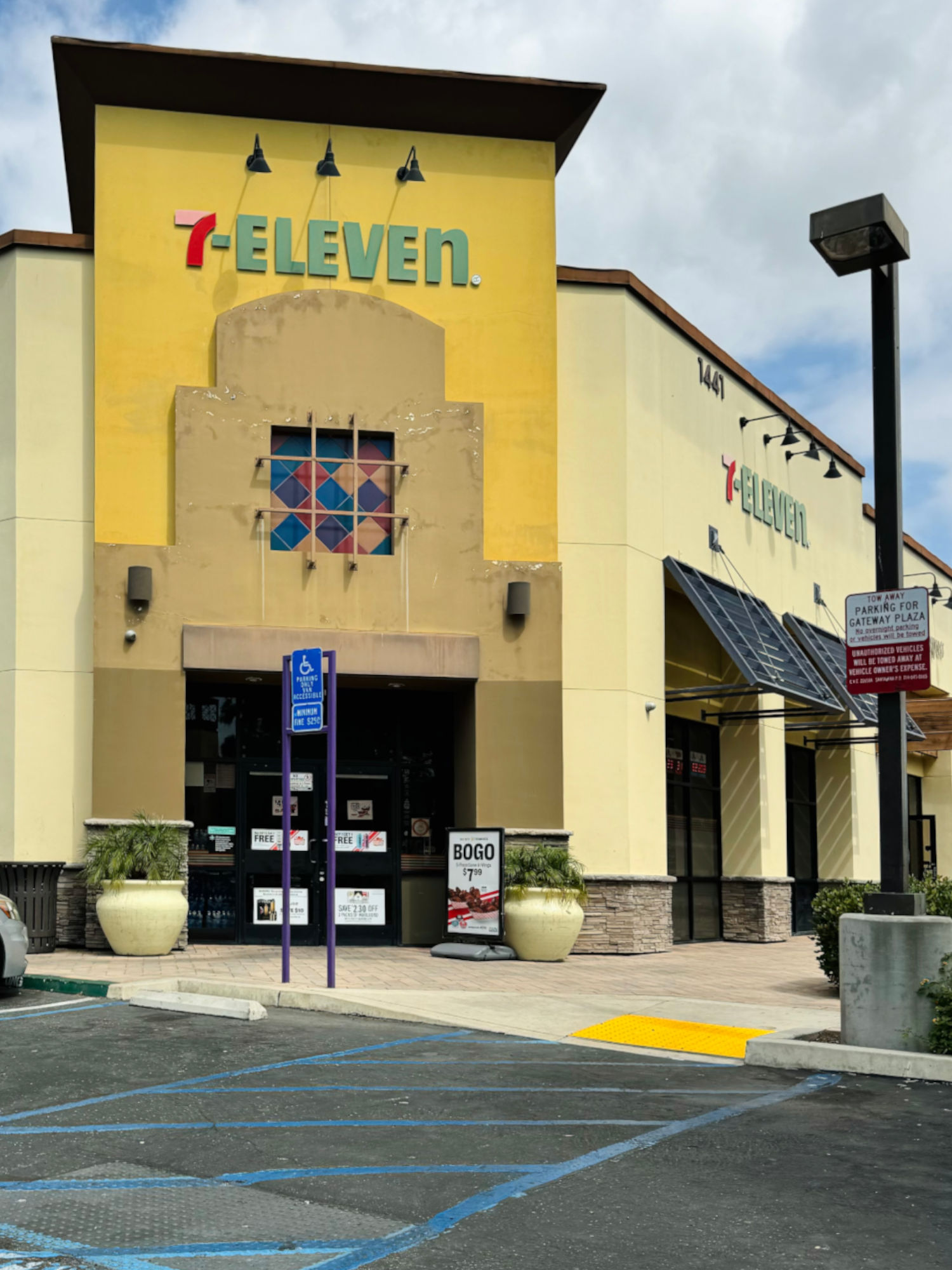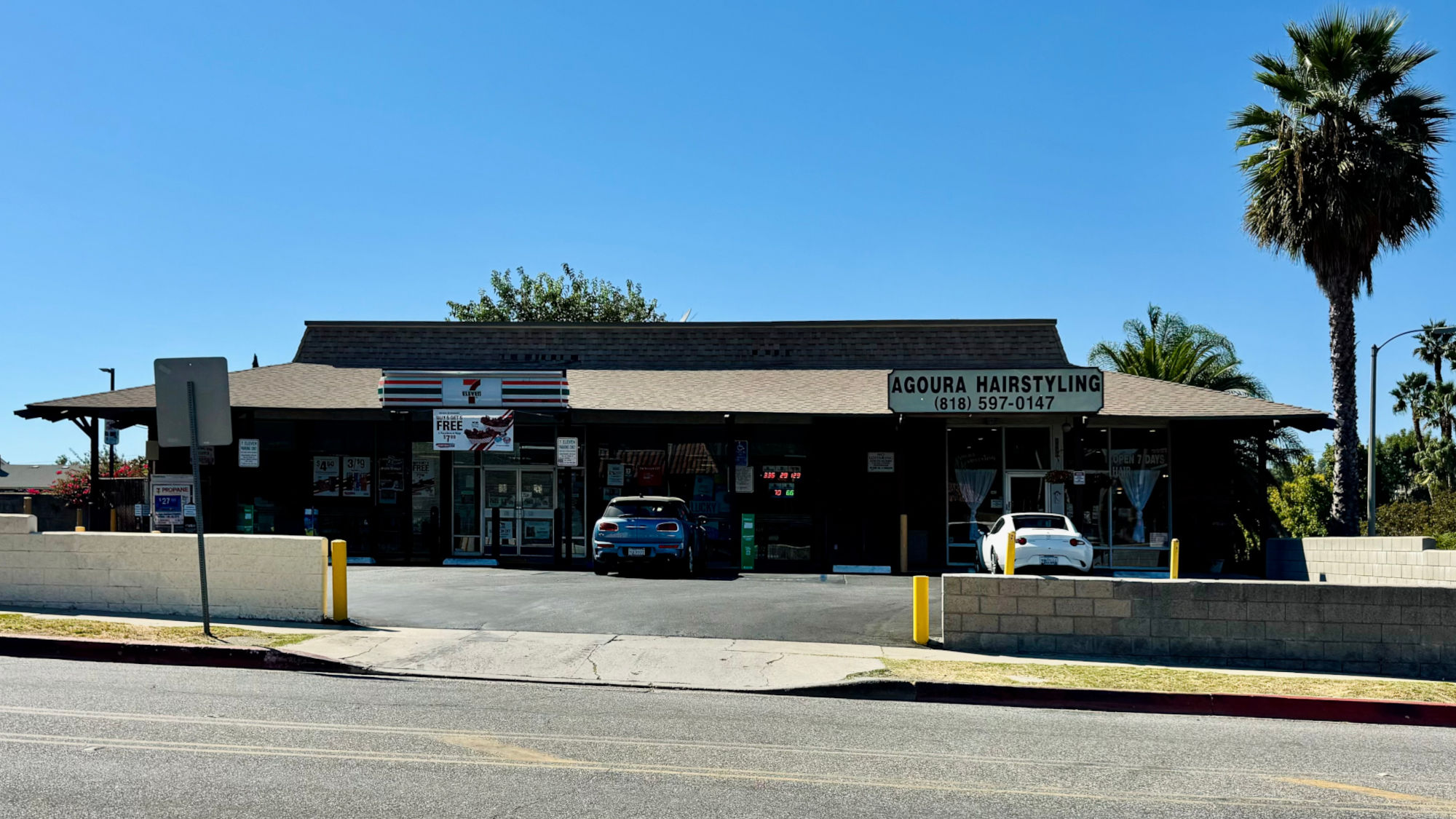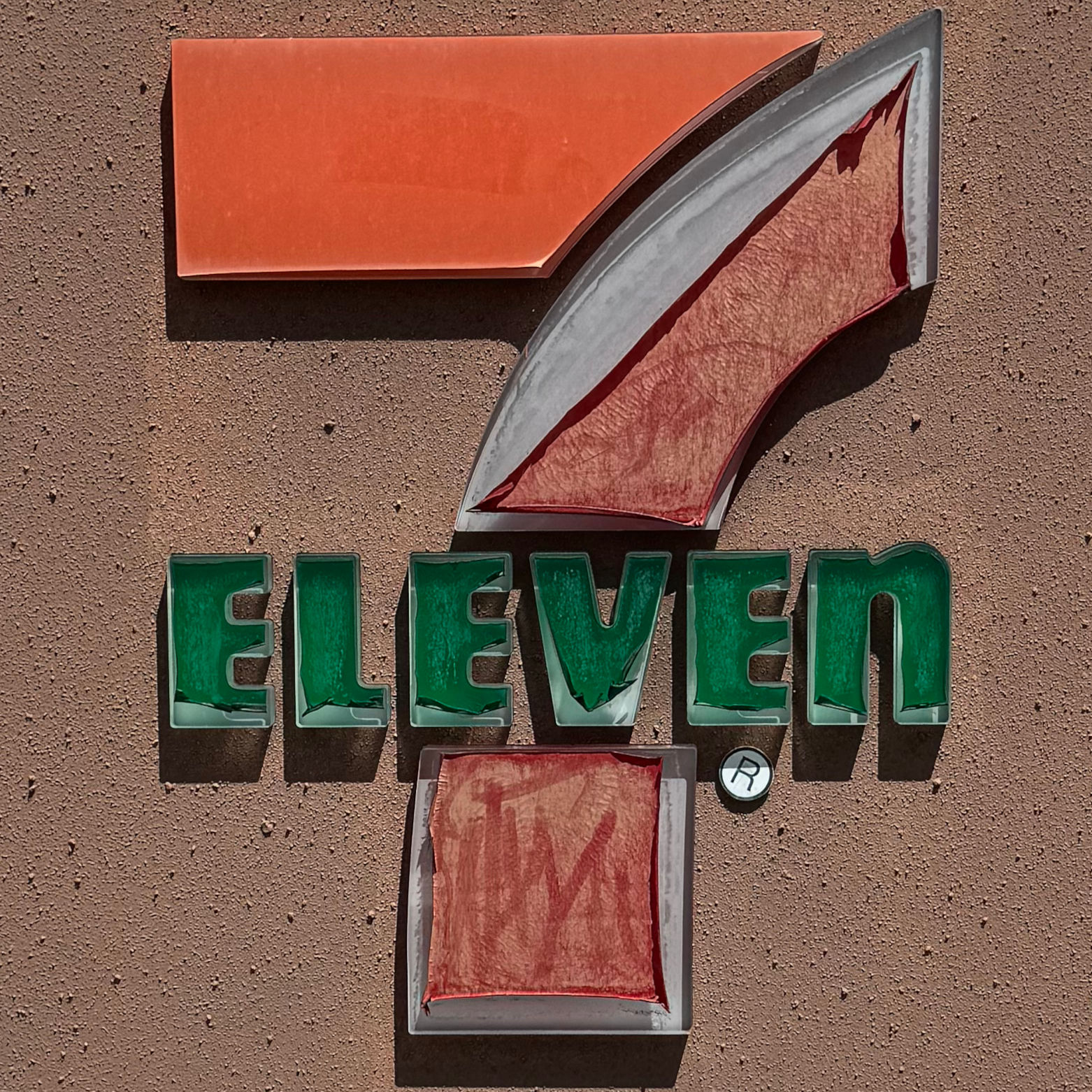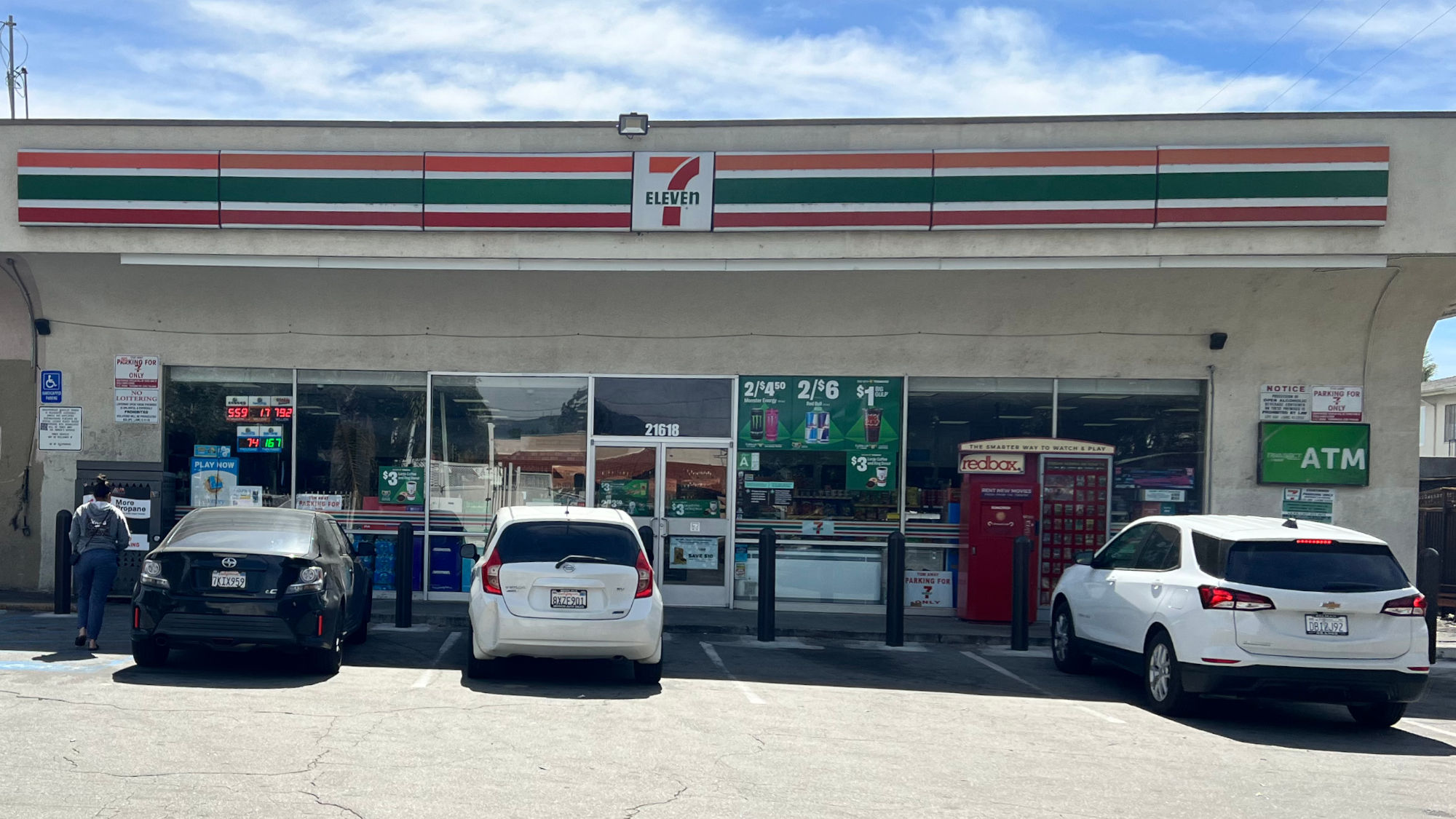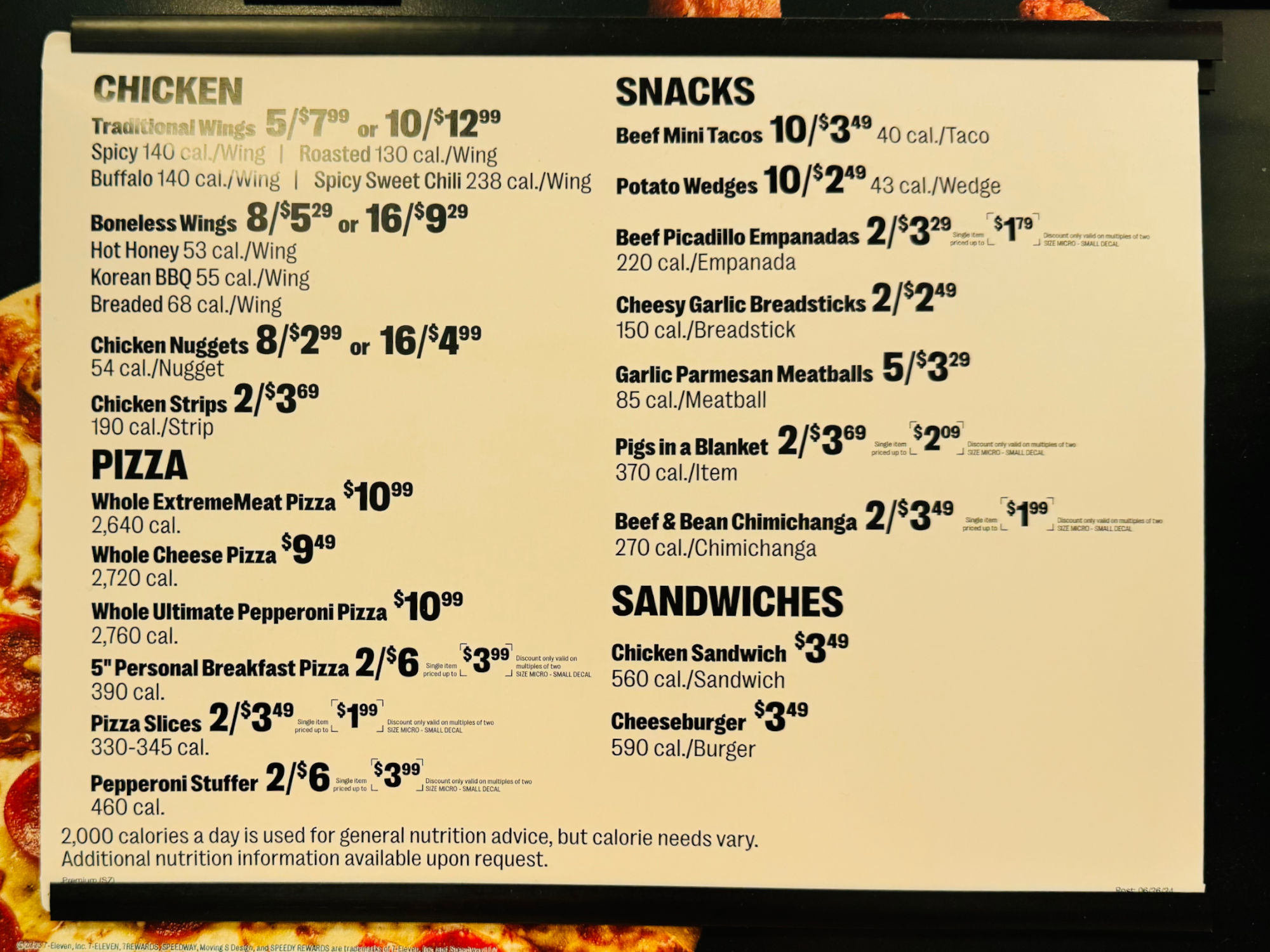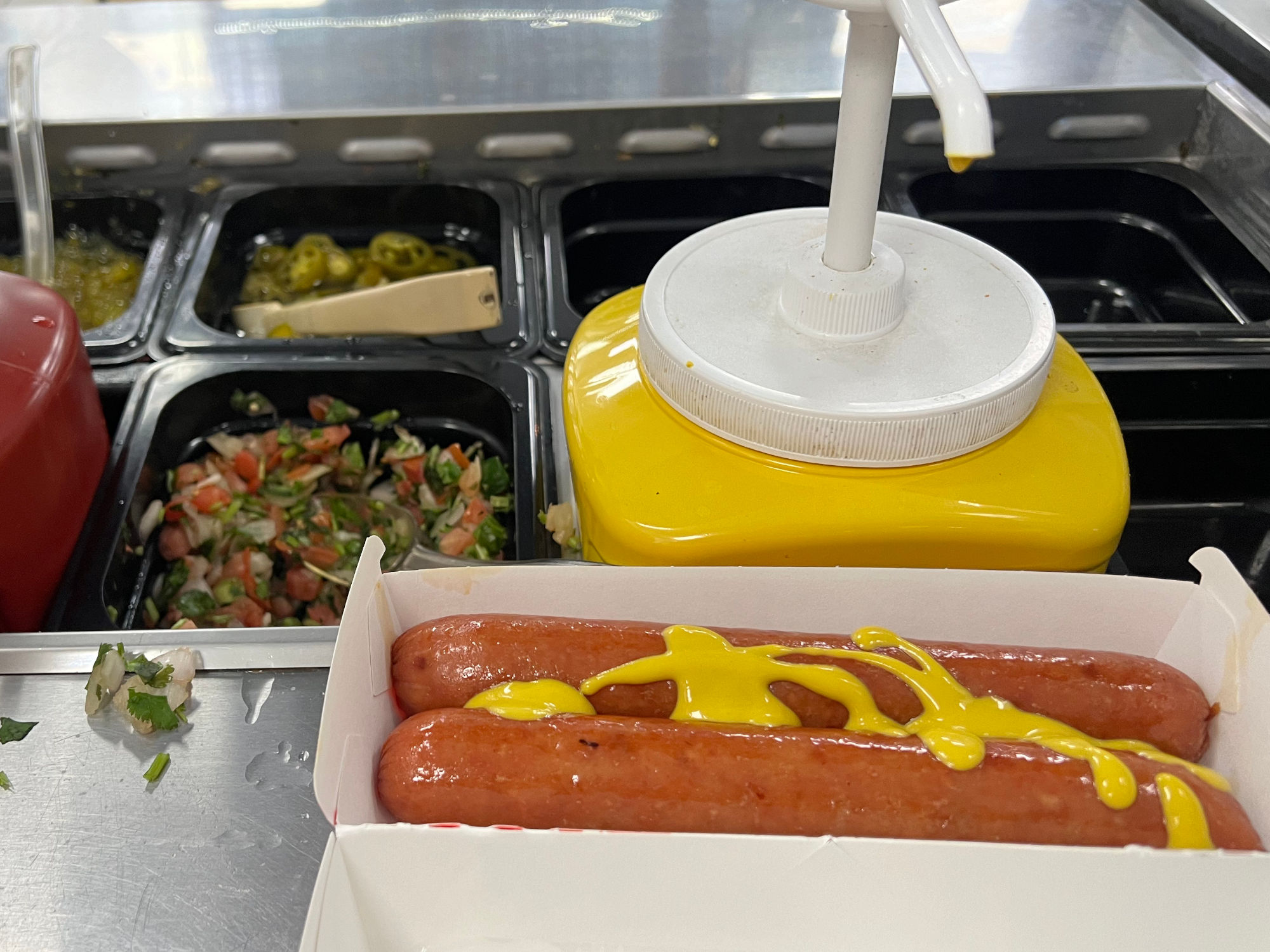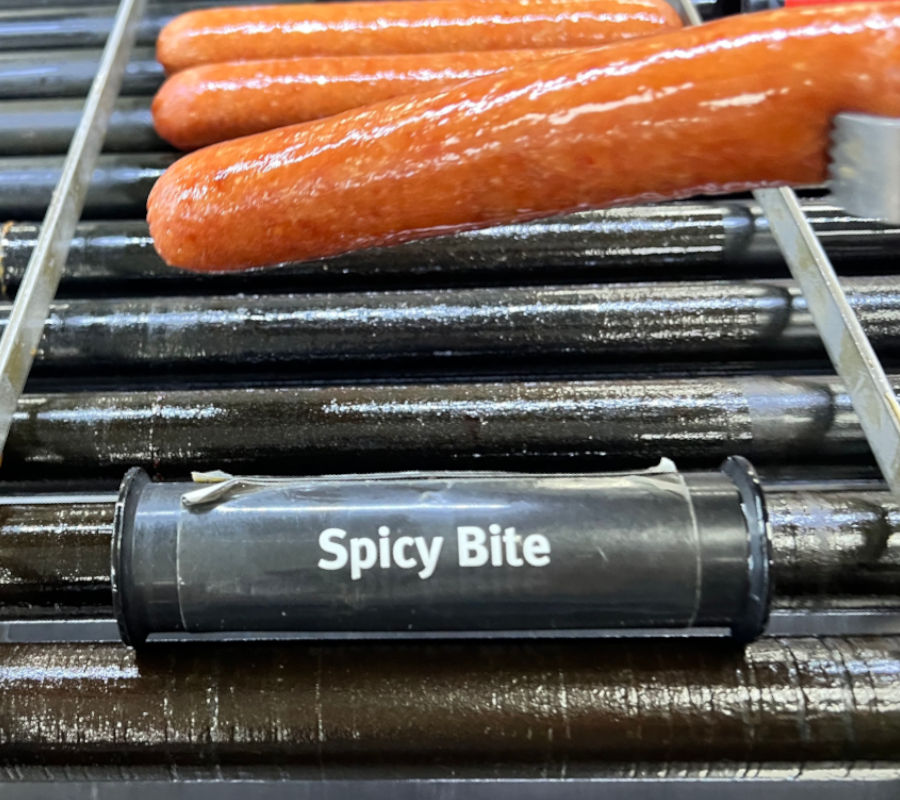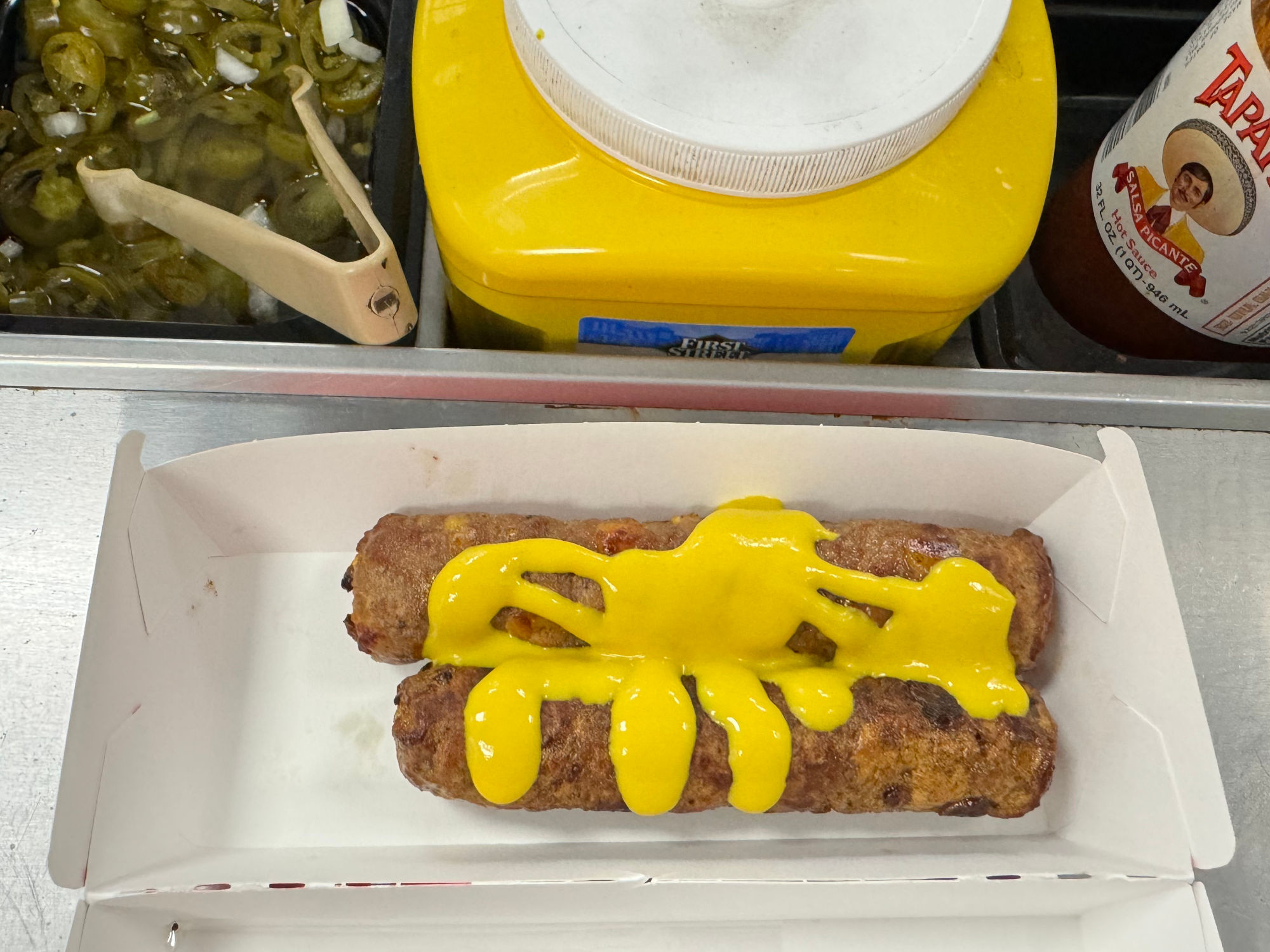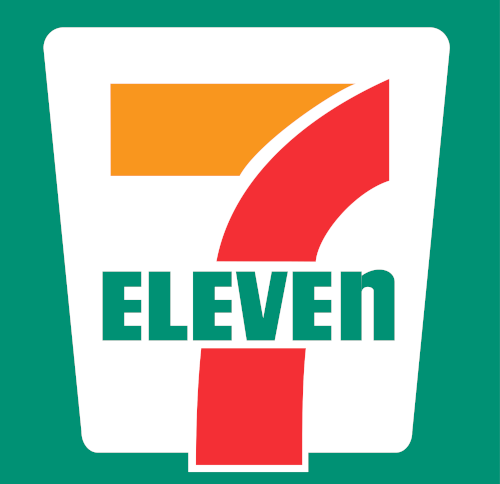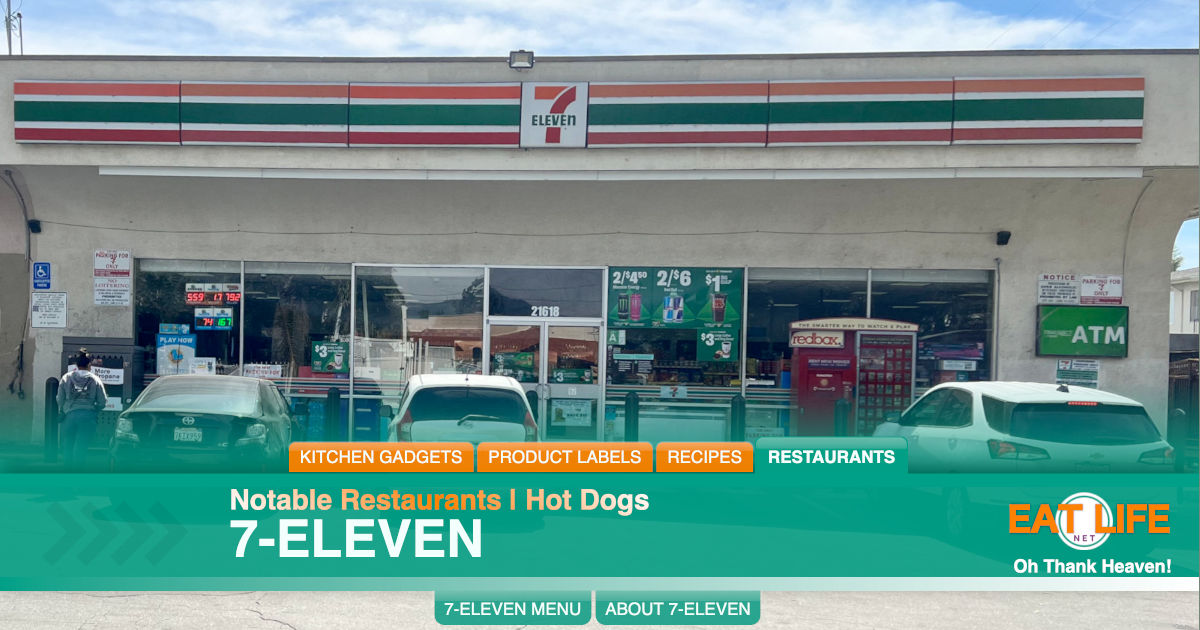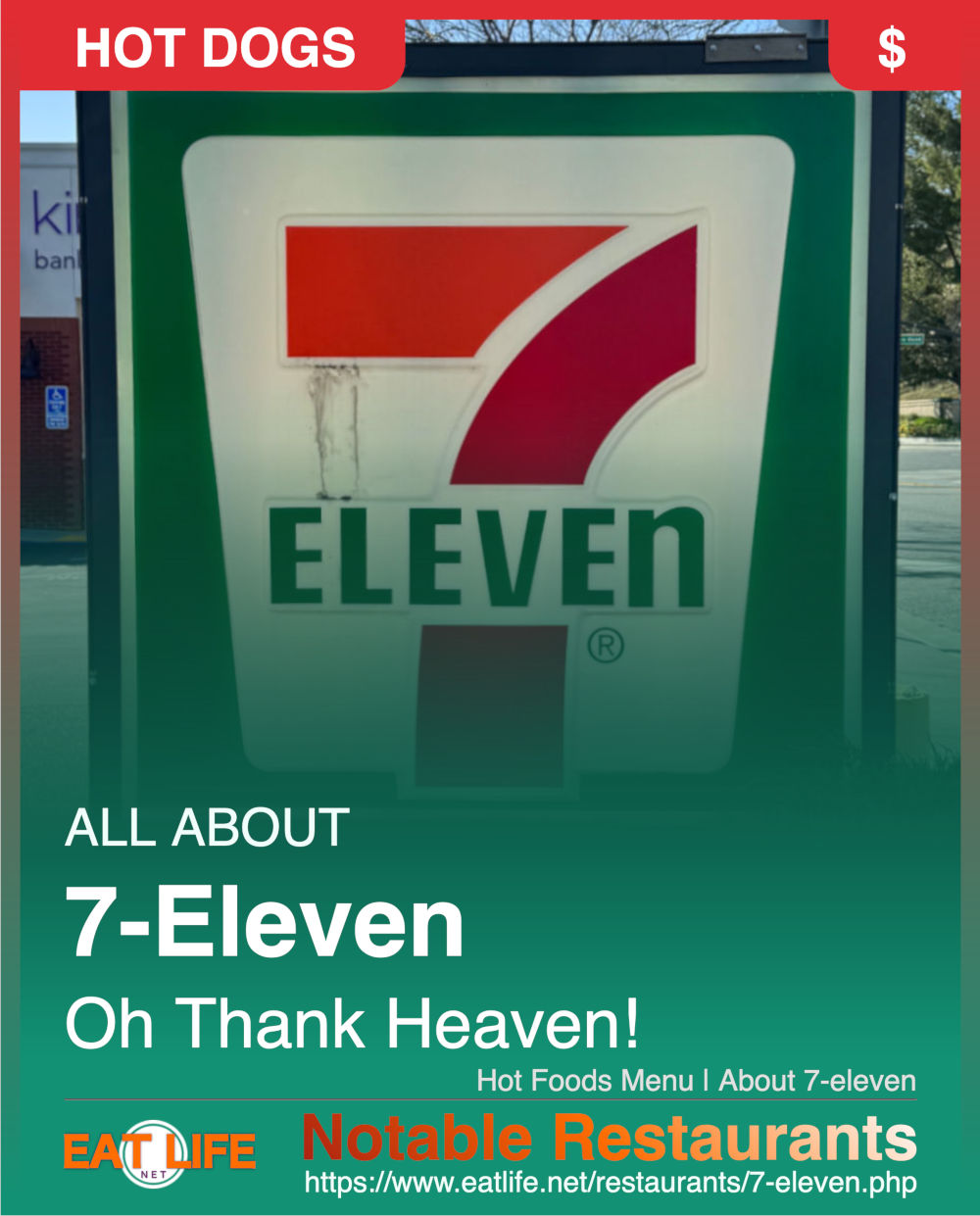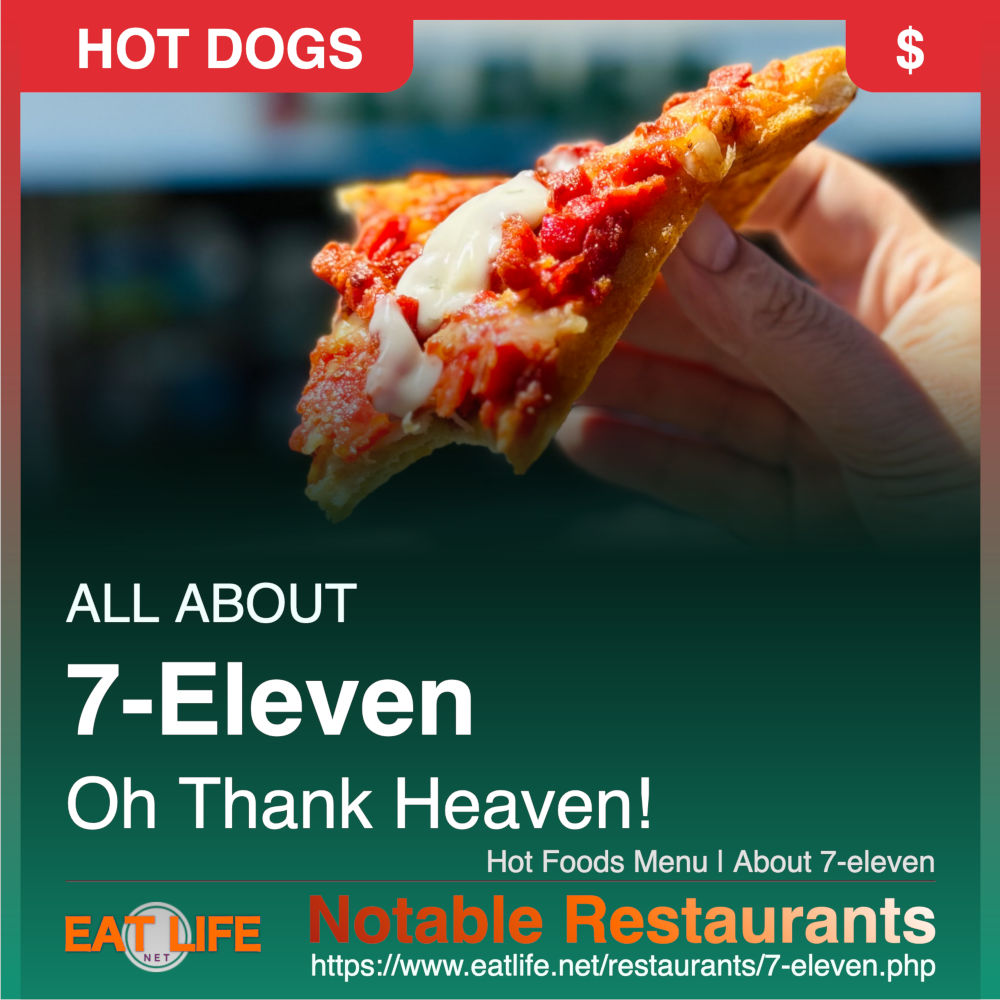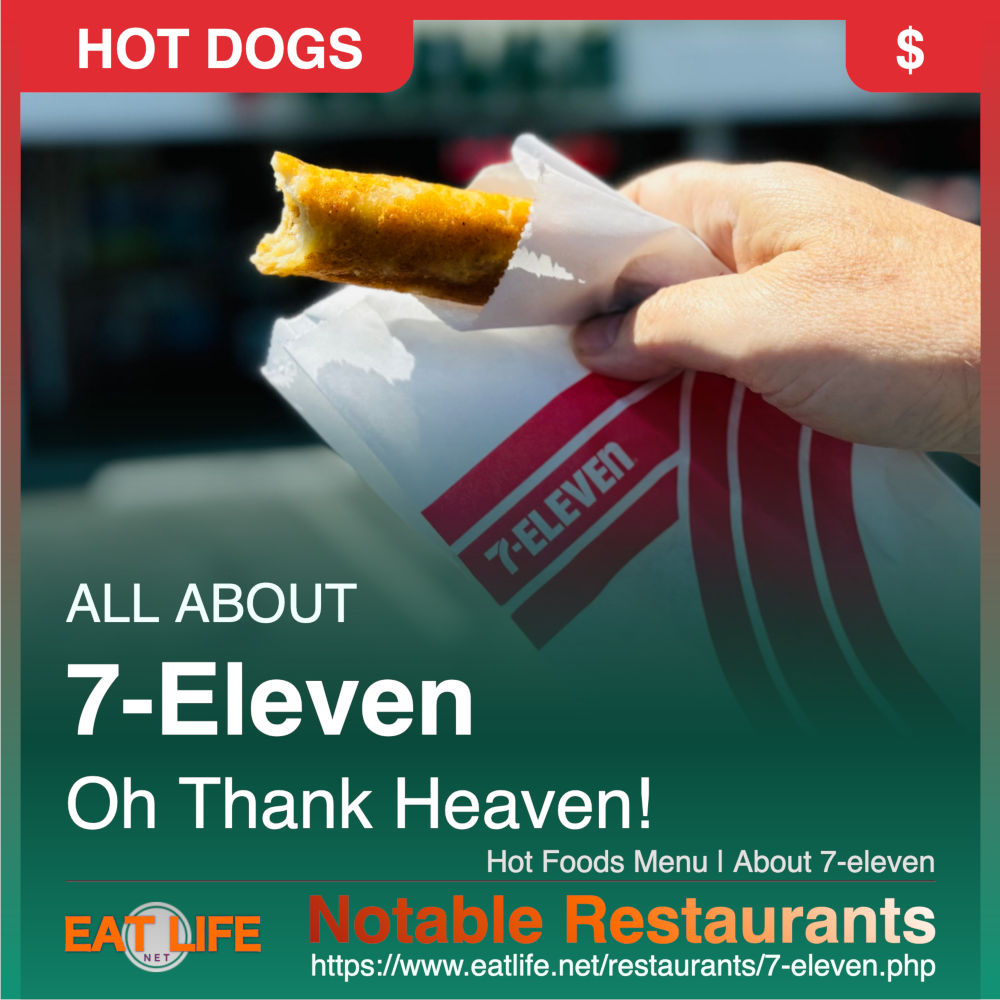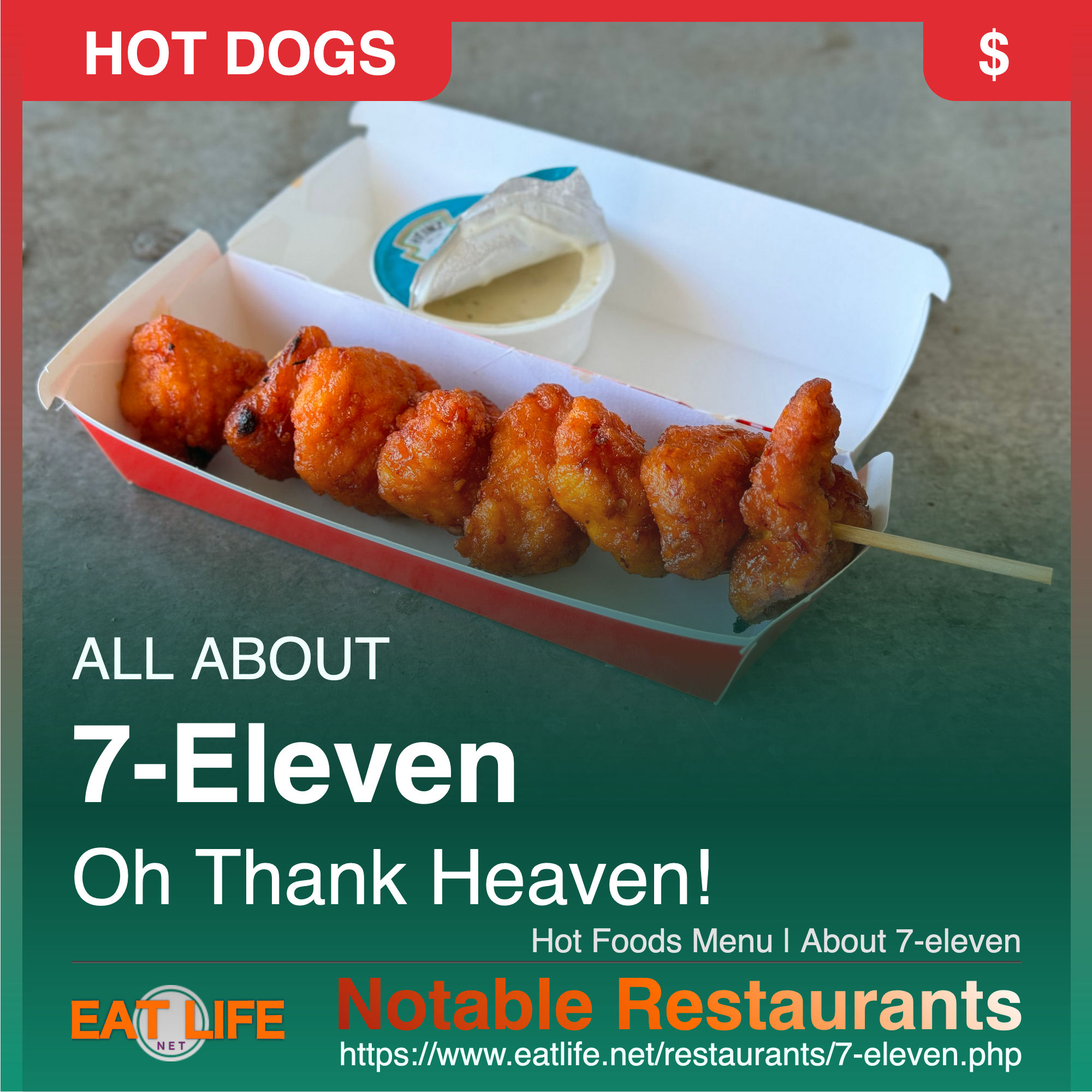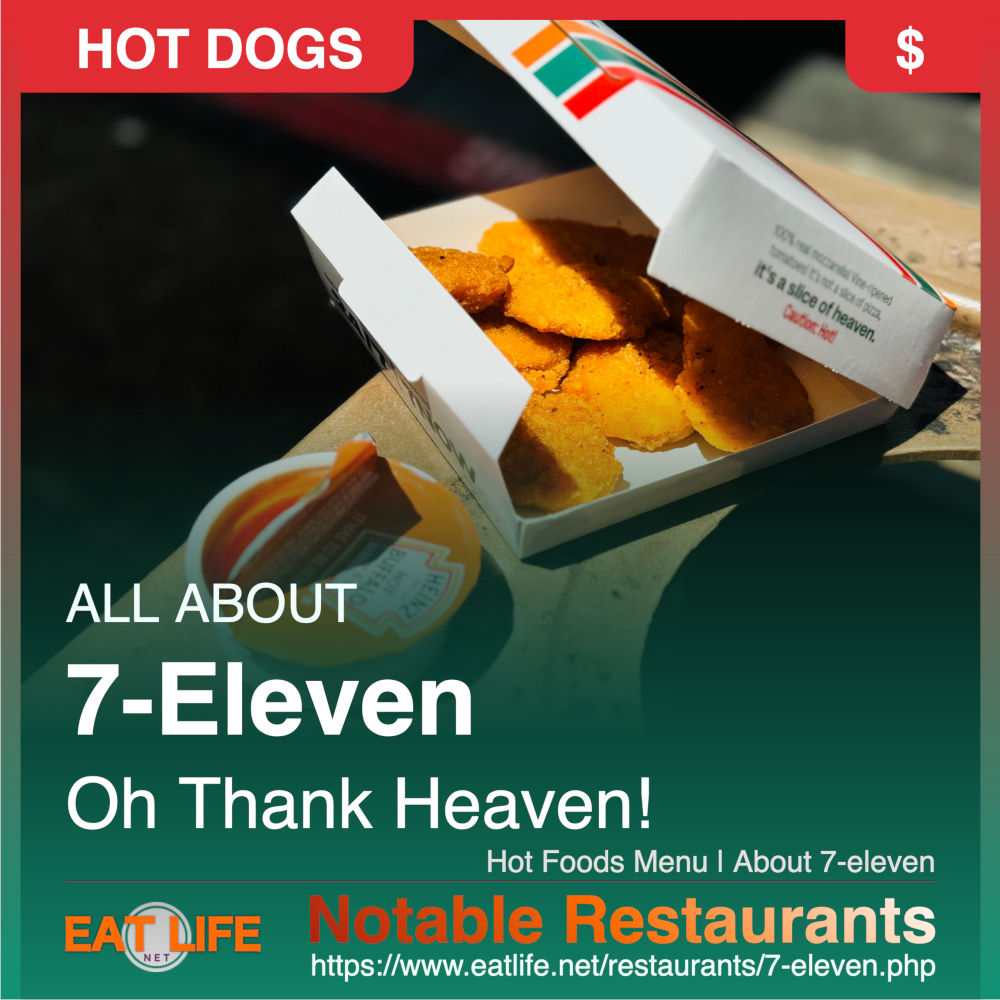It was founded in 1927 as an ice house storefront in Dallas. Their first outlets were named Tote'm Stores because customers 'toted' away their purchases. Some stores featured totem poles in front of the store. In 1946, they changed their name from Tote'm to 7-Eleven to reflect the company's new, extended hours, 7:00 a.m. to 11:00 p.m., seven days per week.
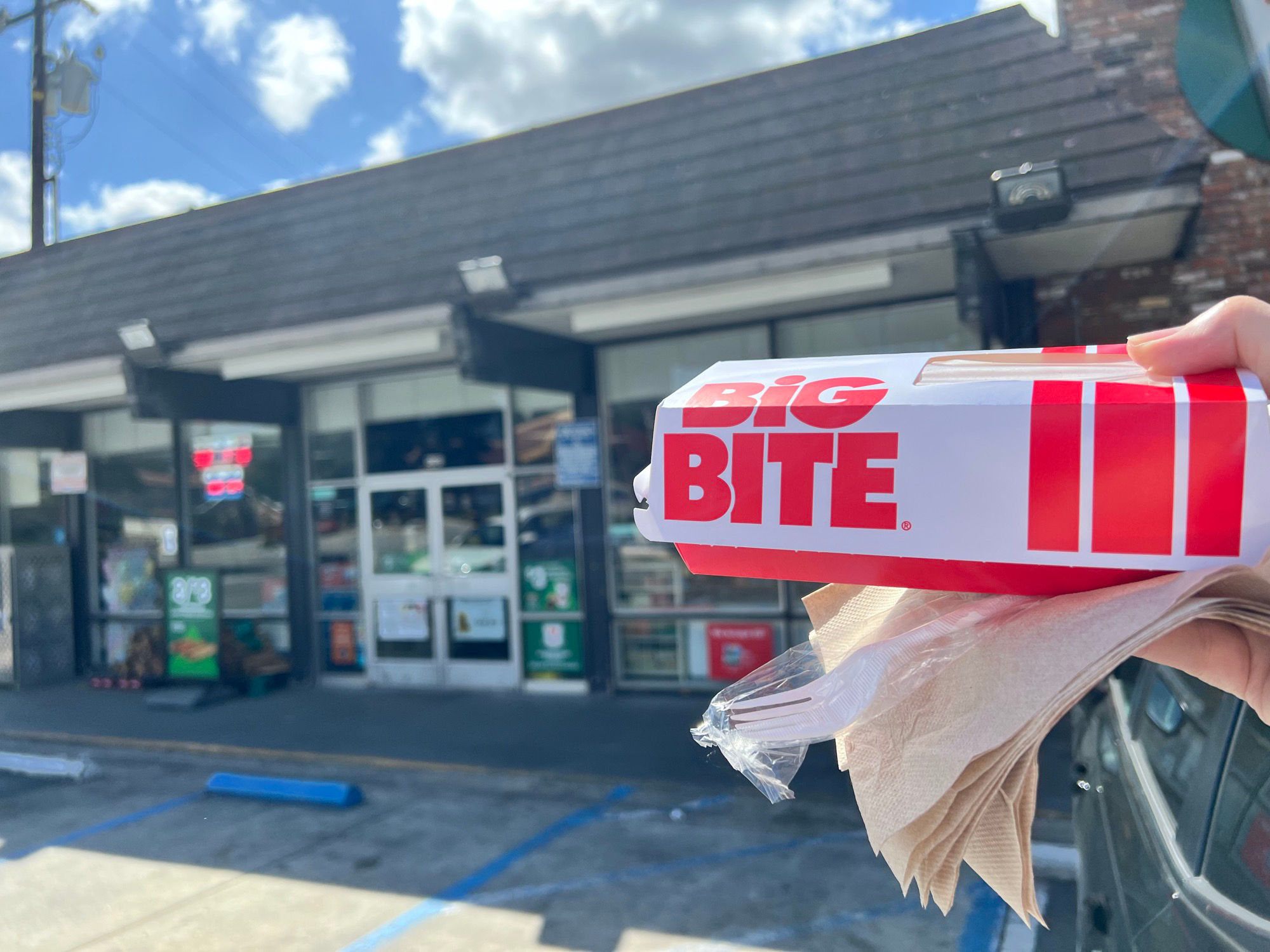
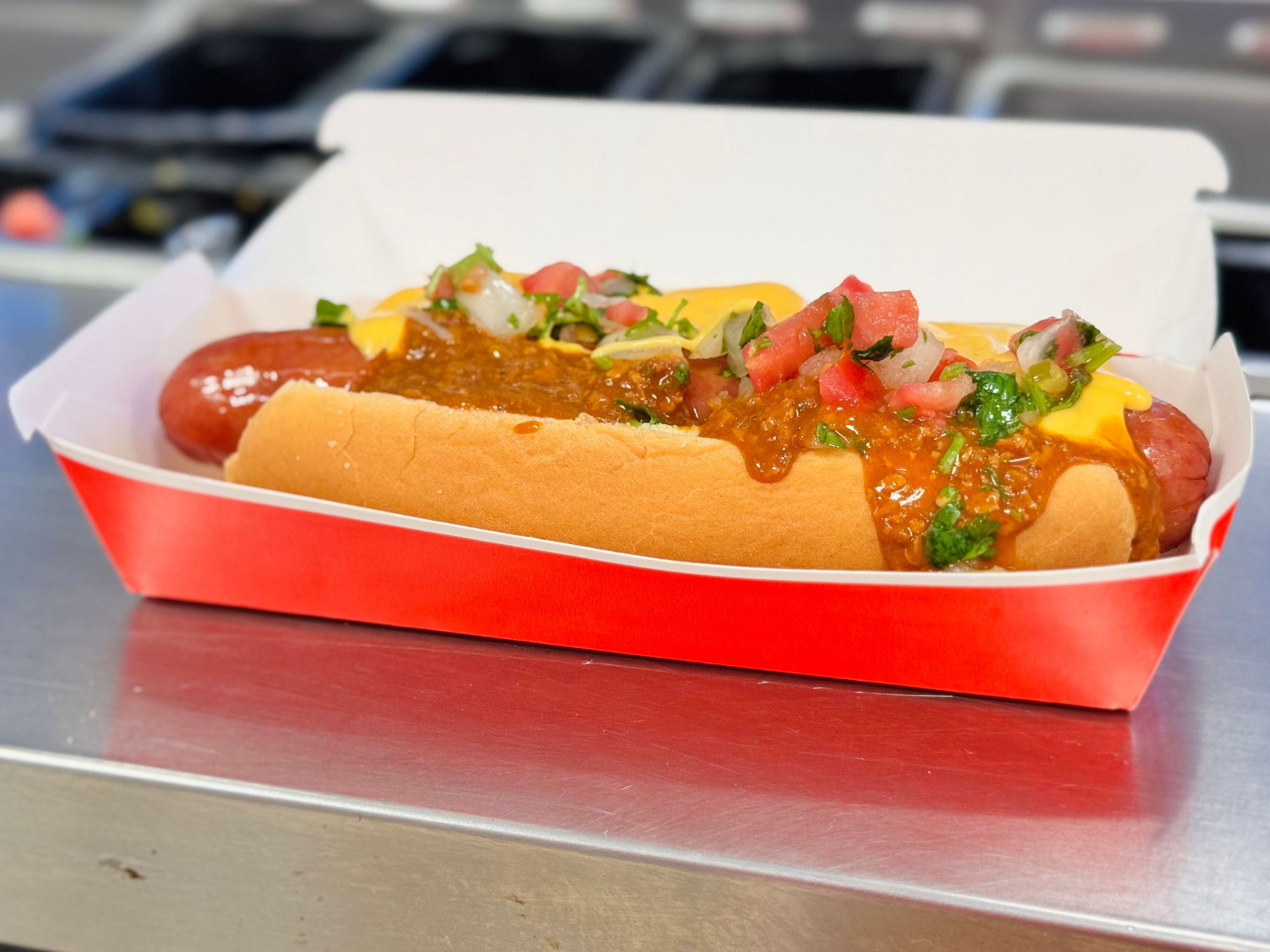
Spicy Bite
- Chili Sauce
- Cheese Sauce
- Pico De Gallo
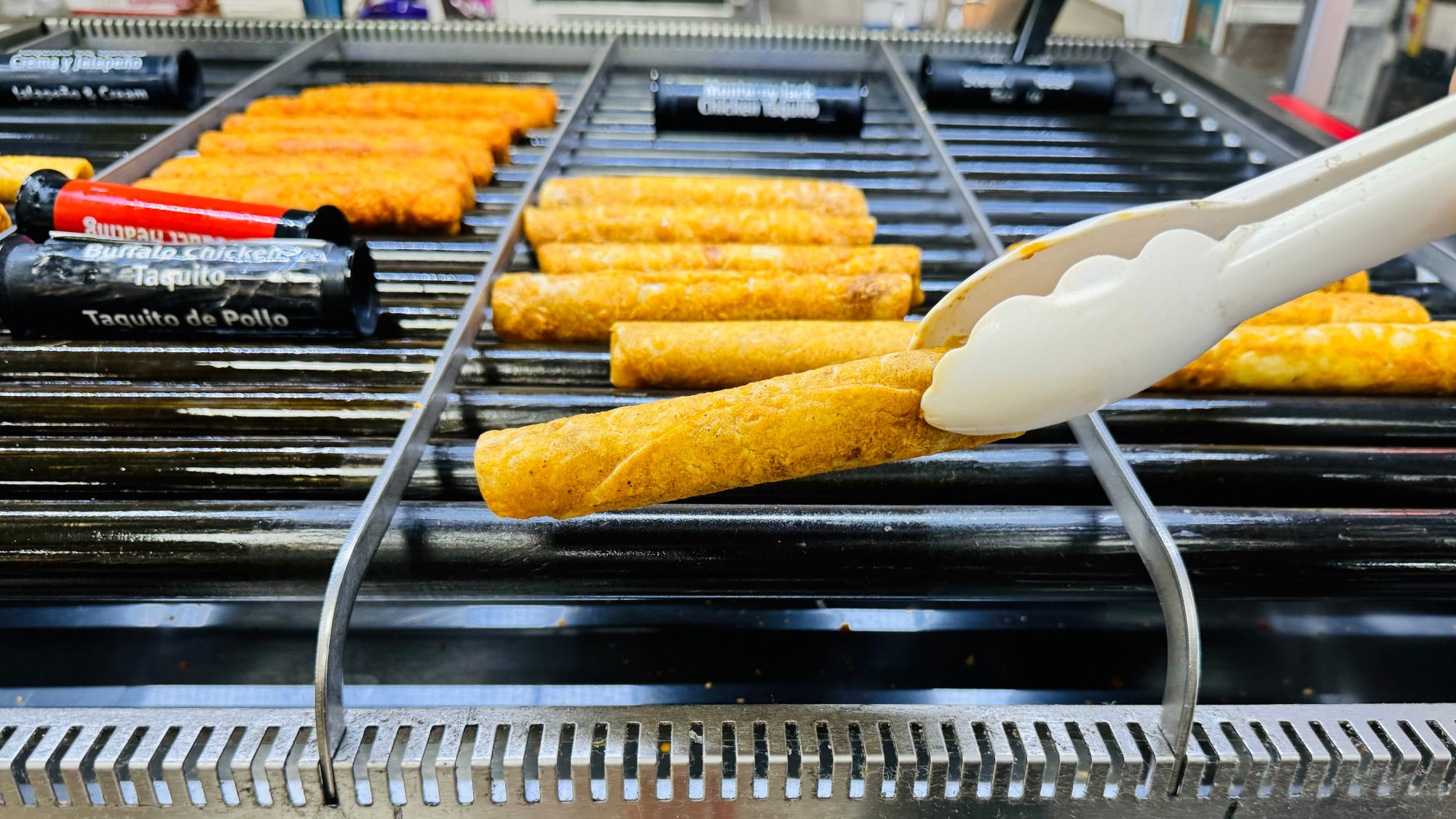
Taquitos
- Buffalo Chicken
- Jalapeno Cream Cheese
- Monterey Jack Chicken
- Steak and Cheese
- Taco and Cheese
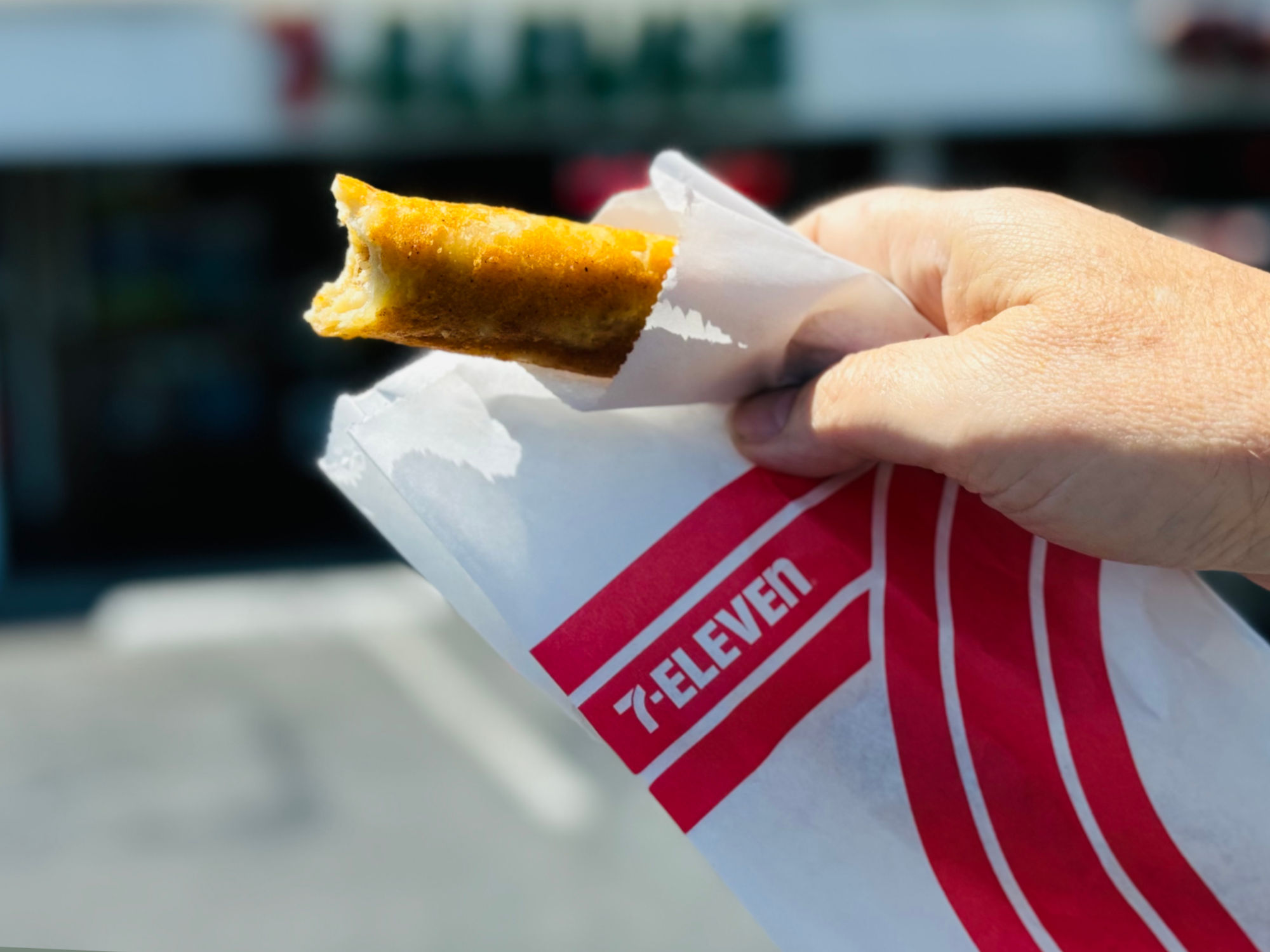
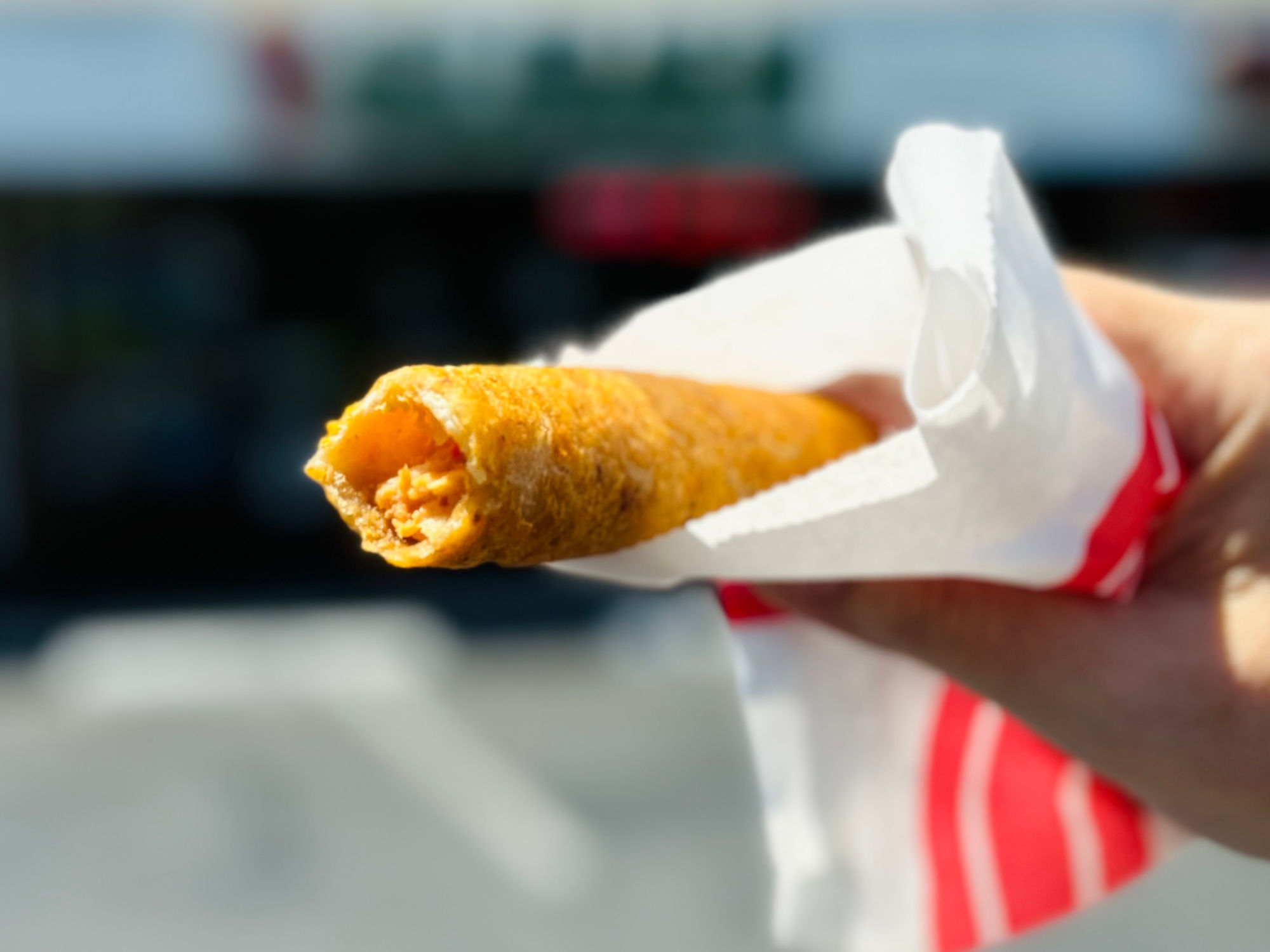
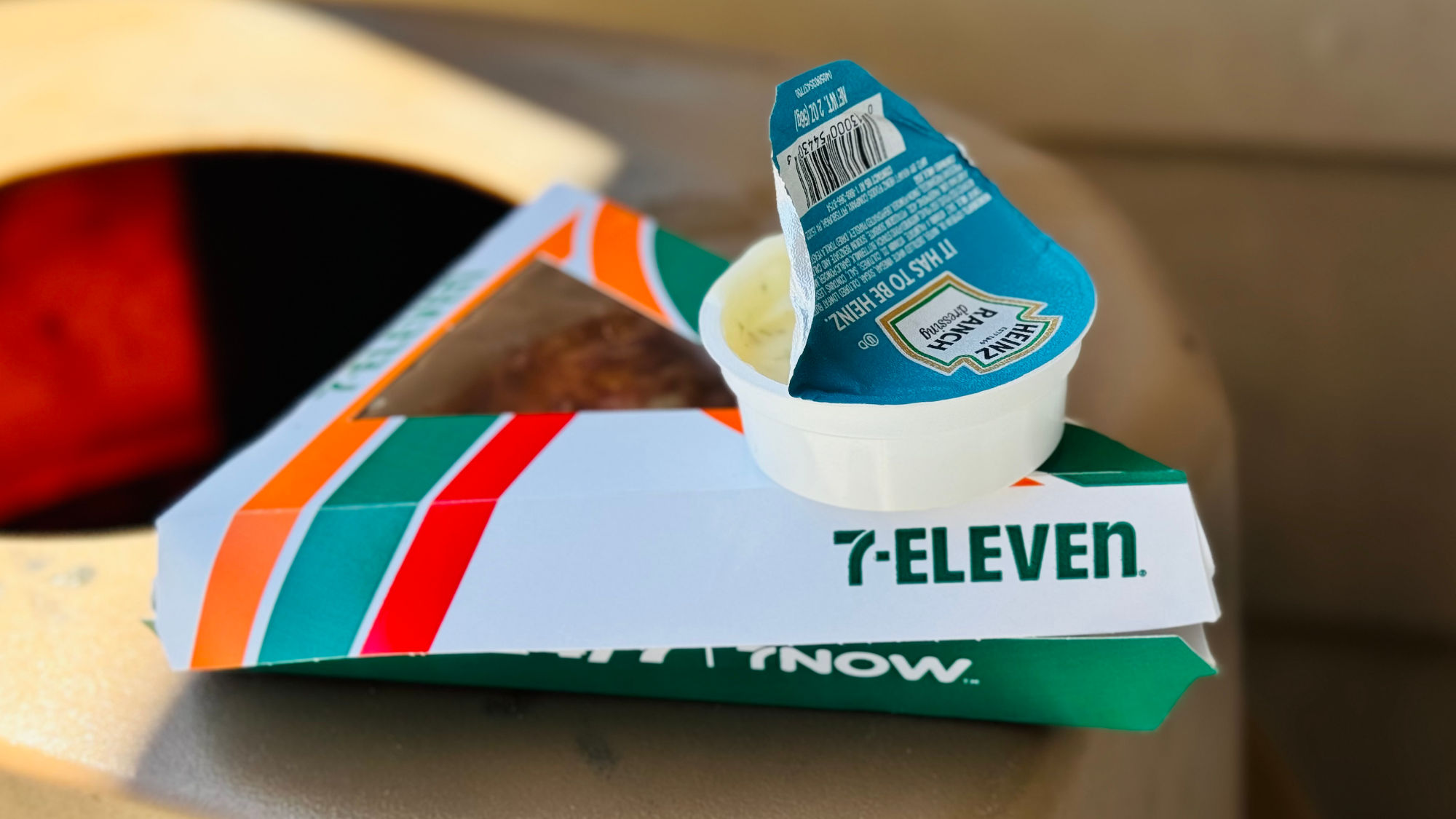
7-Meat Pizza
- Beef Crumbles
- Canadian Bacon
- Chicago-Style Sausage
- Crispy Pepperoni
- Diced Ham
- Meaty Sausage
- Smoky Bacon
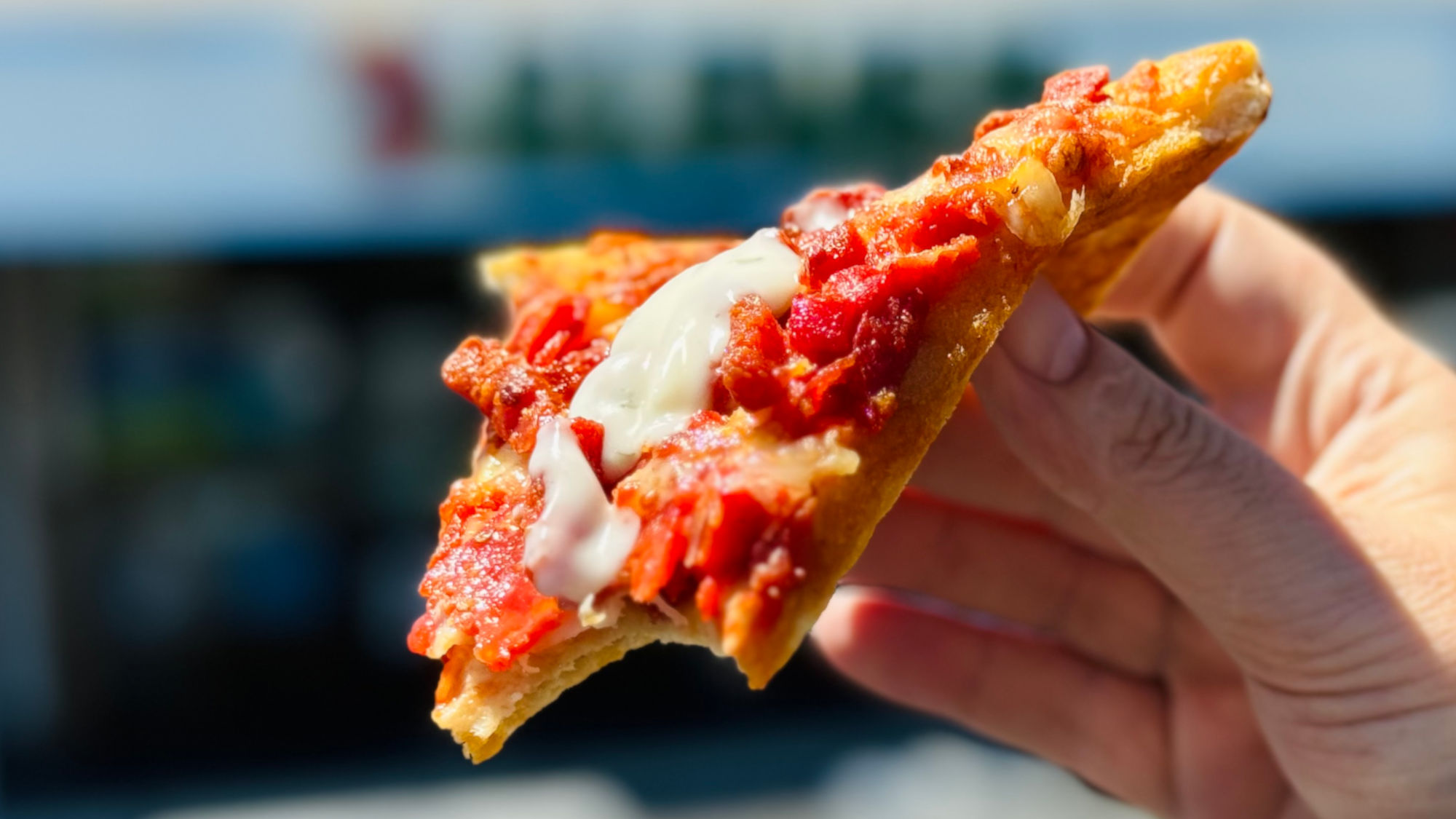
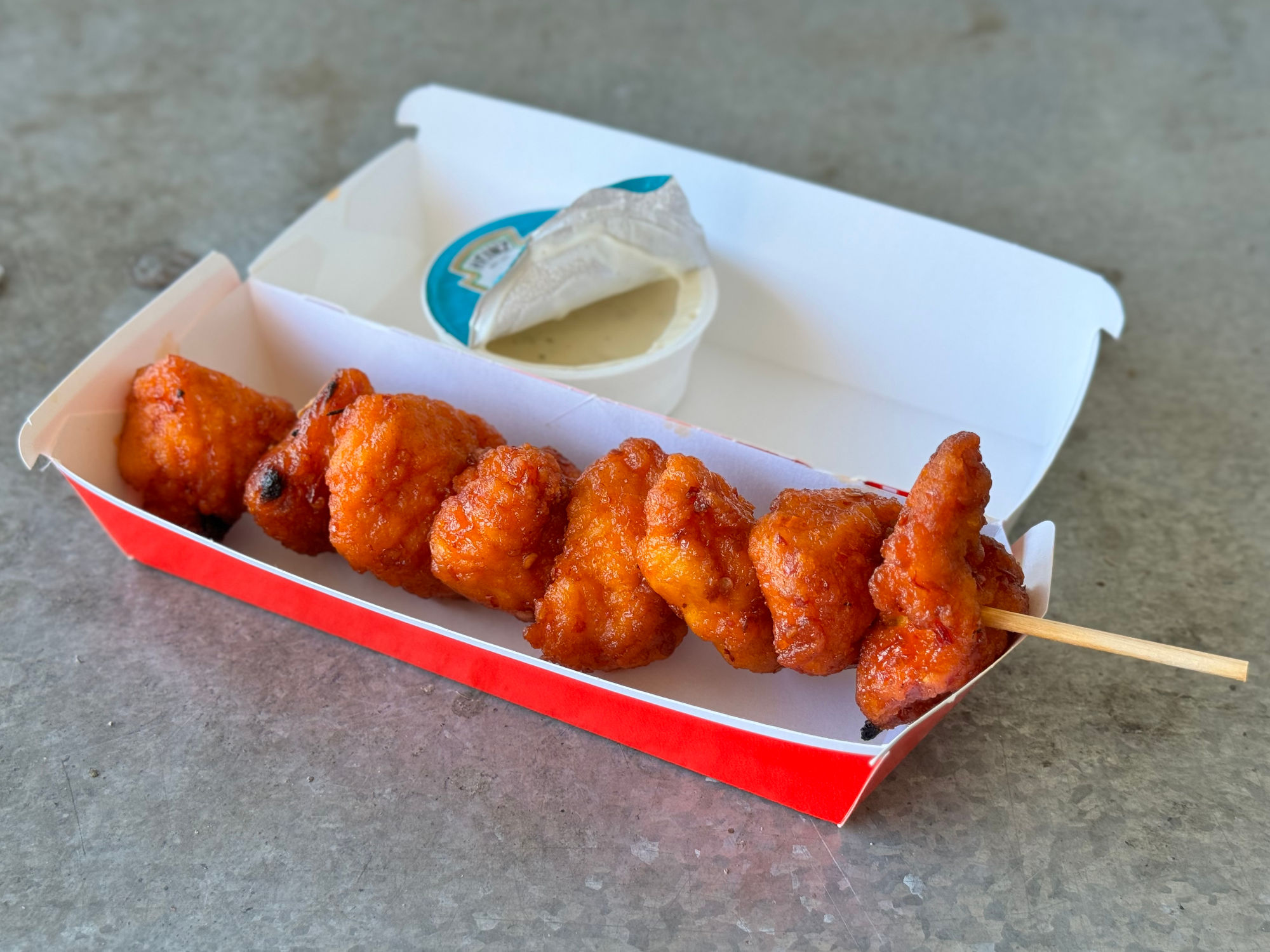
Hot Honey Boneless Wings
- White Meat Chicken
- Chill Pepper
- Honey Chili Glaze
- Roasted Garlic
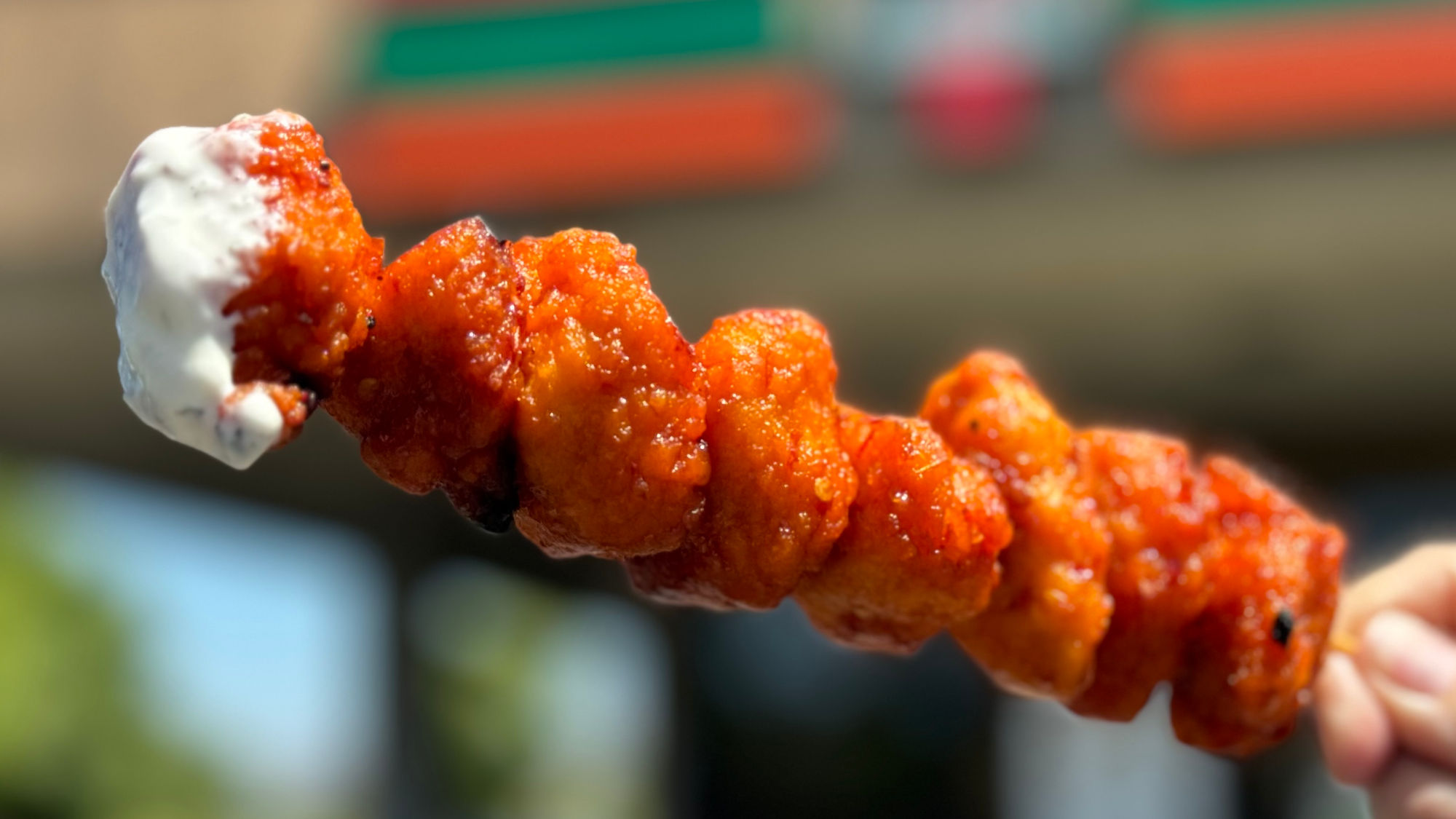
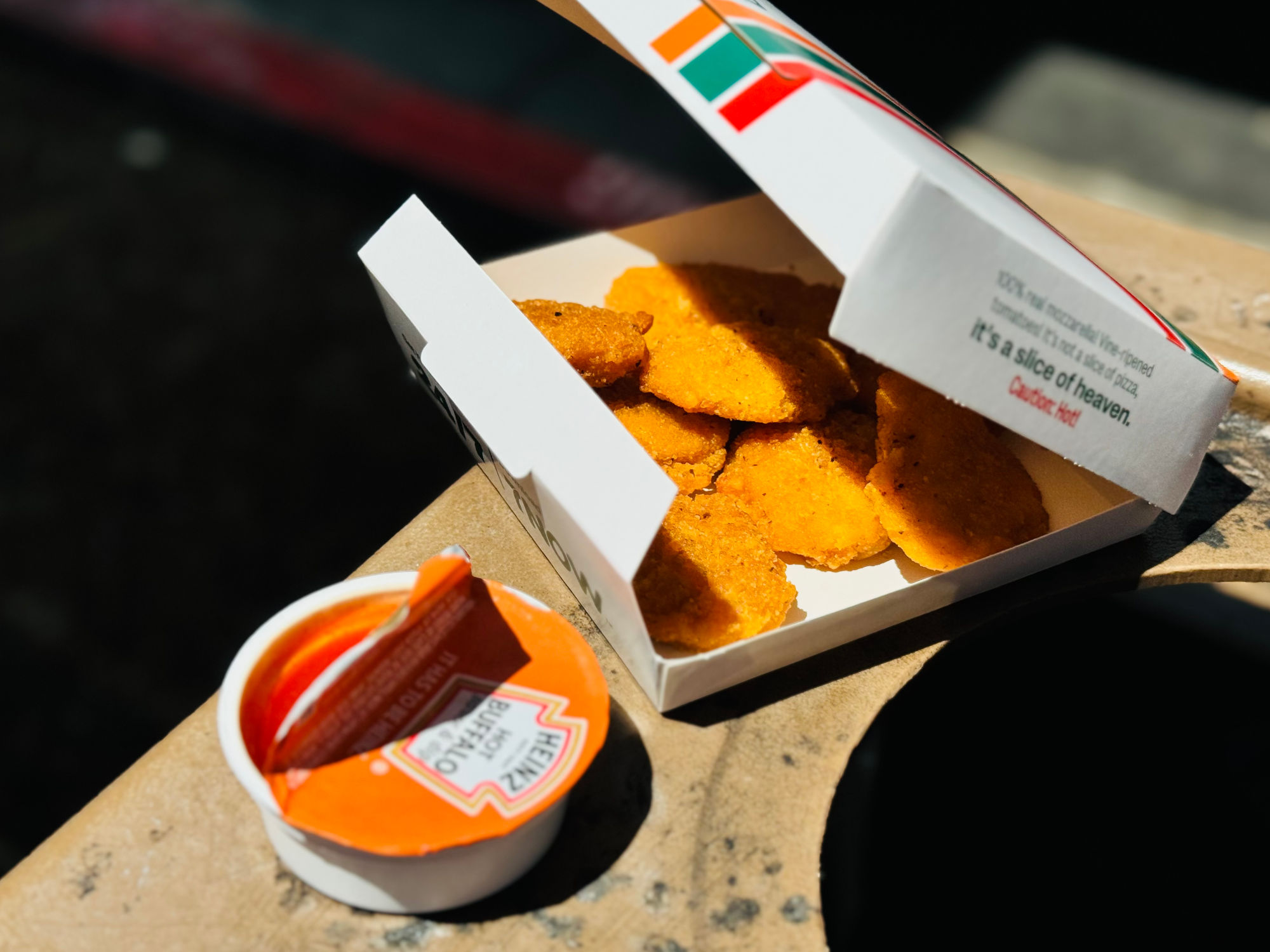
Chicken Nuggets
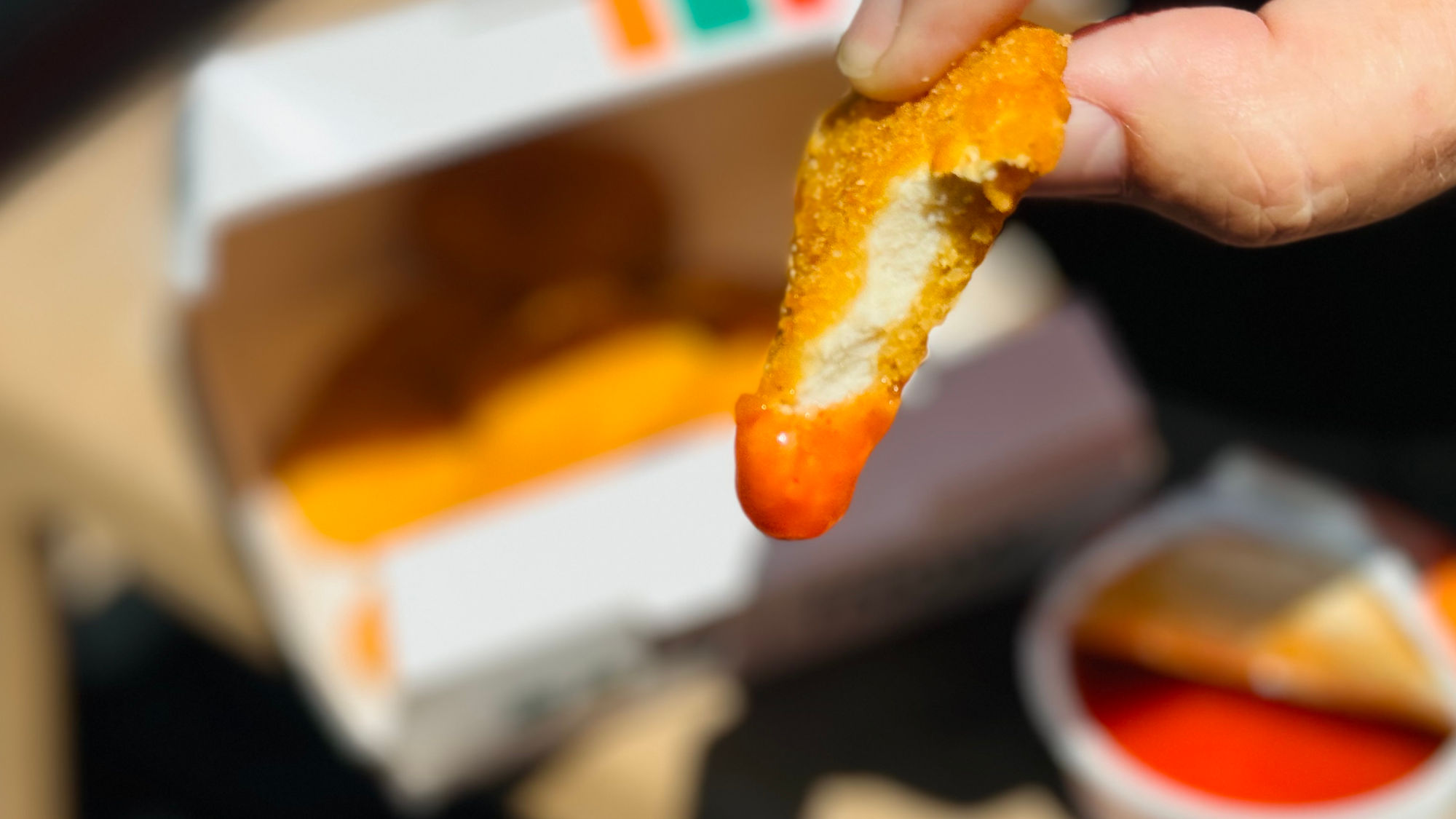
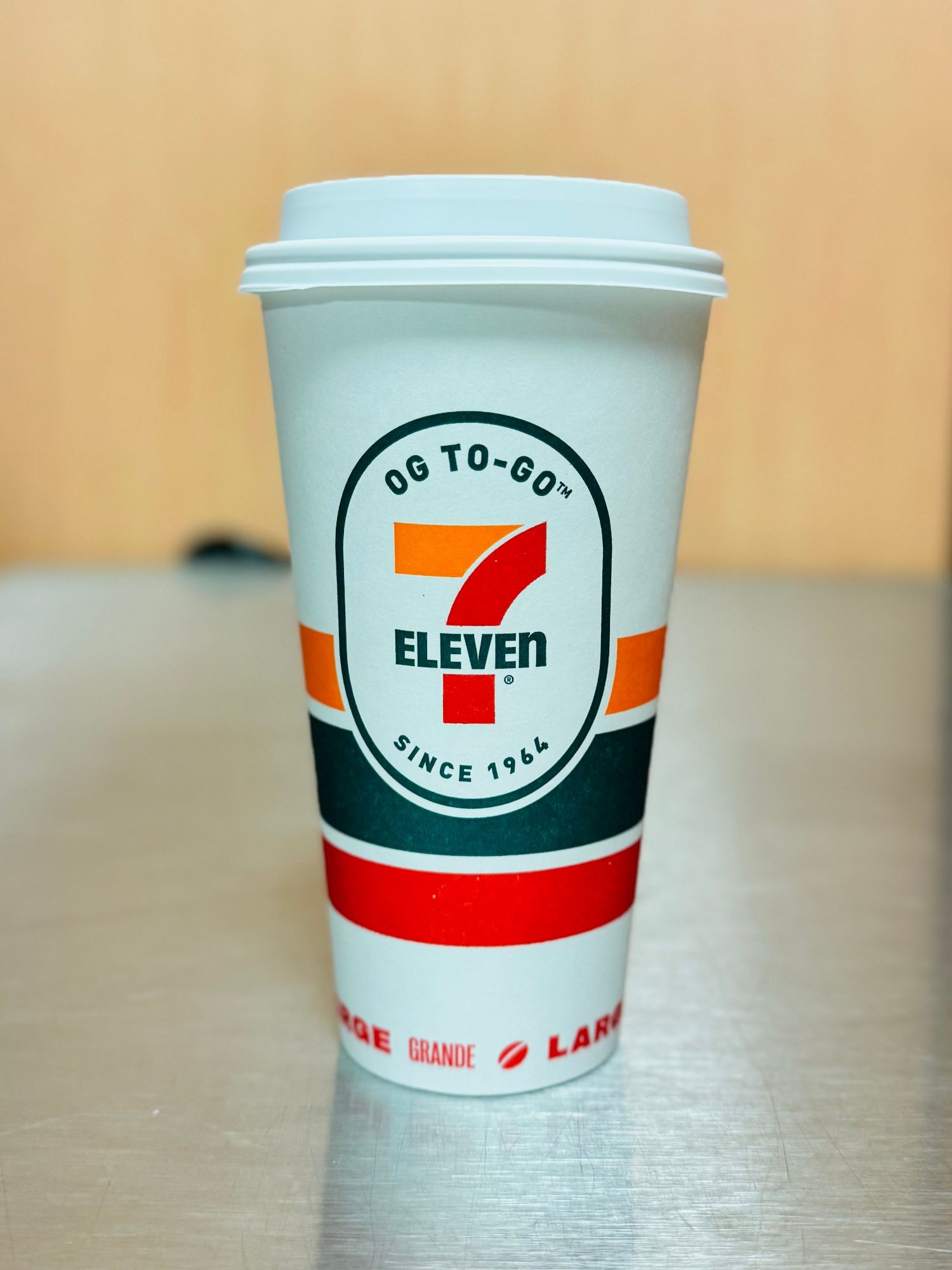
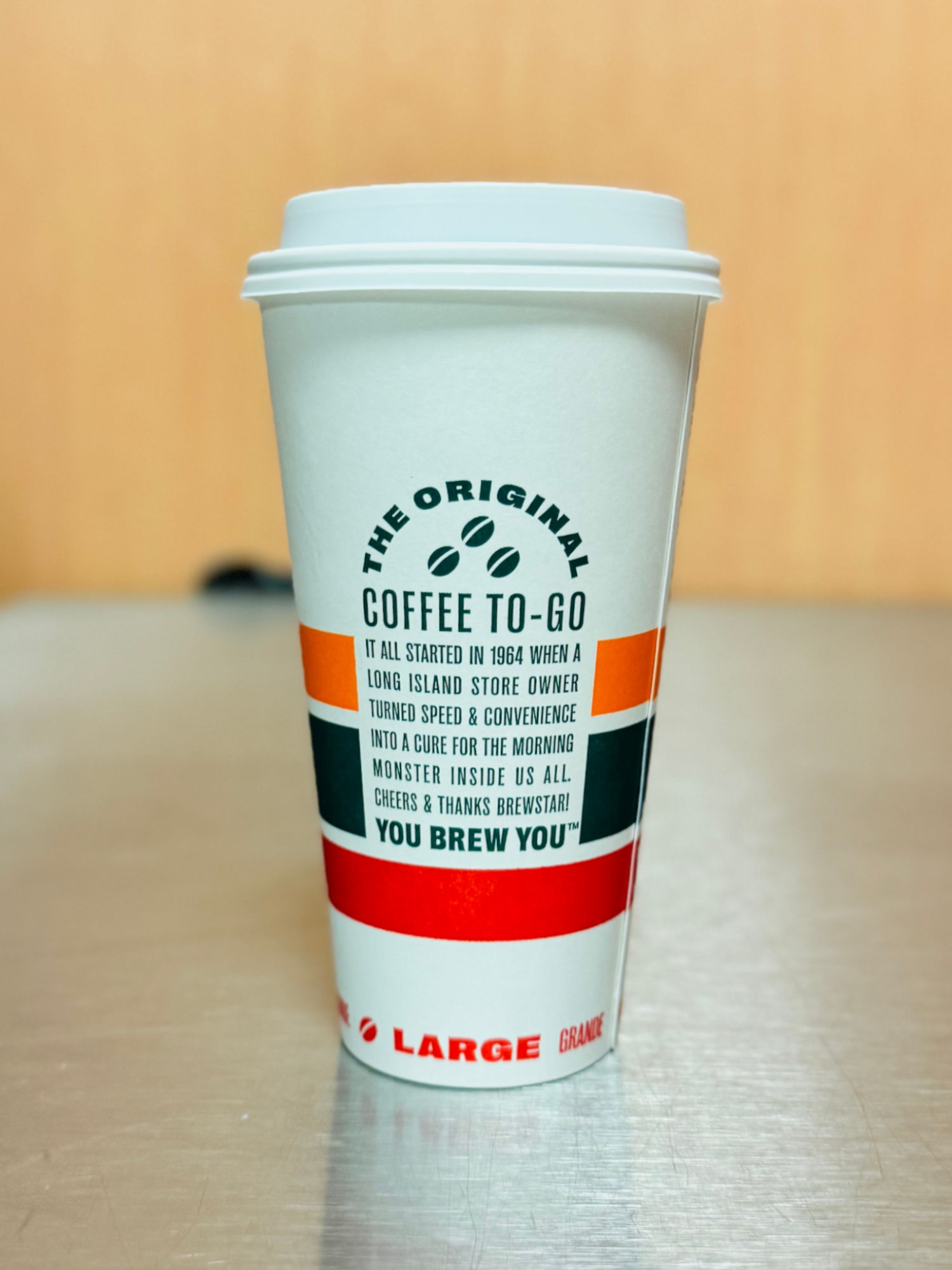
It all started in 1964 when a Long Island store owner turned speed & Convenience into a cure for the morning monster inside us all. Cheers & Thanks Brewstar!
You Brew You
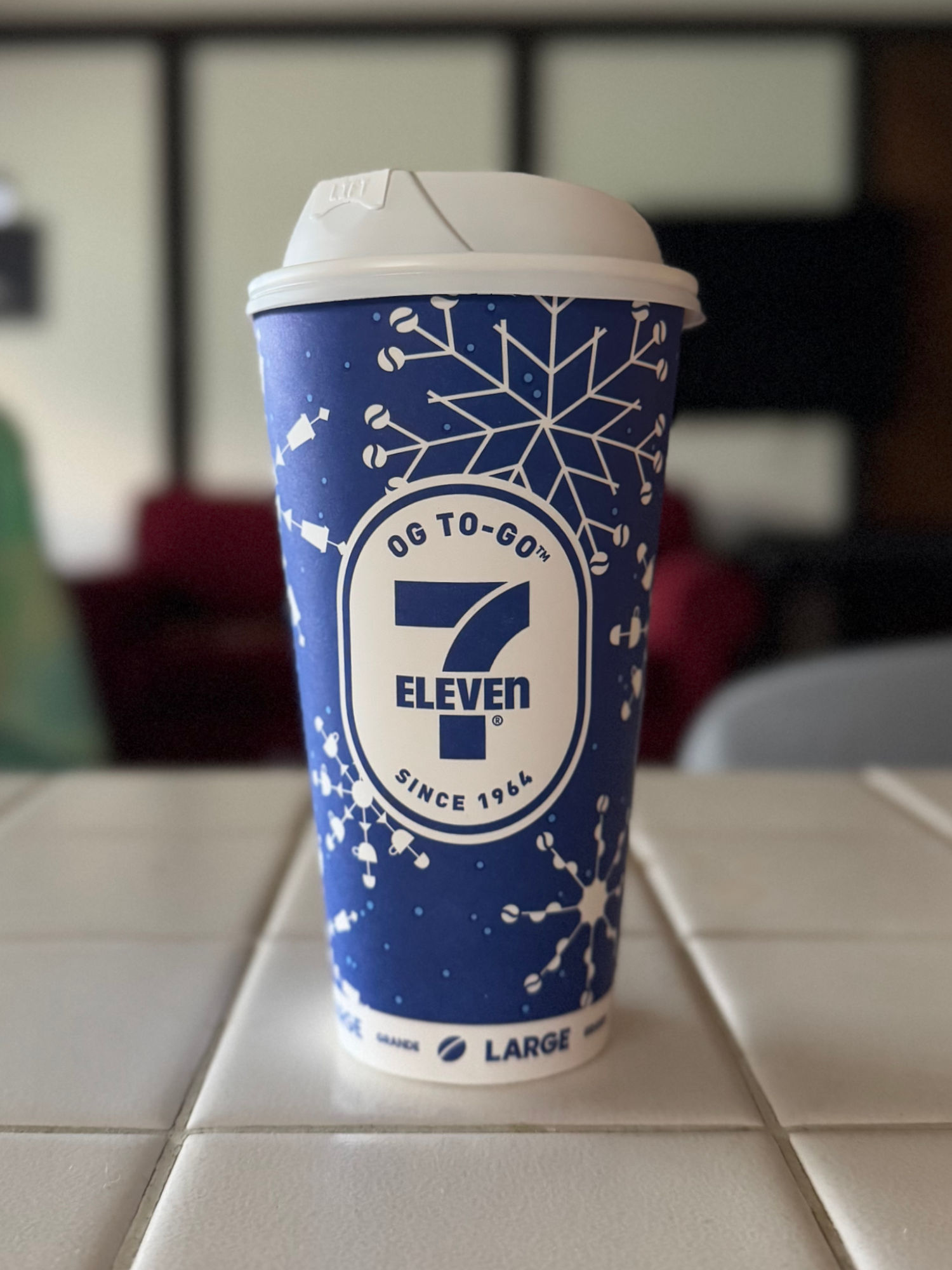
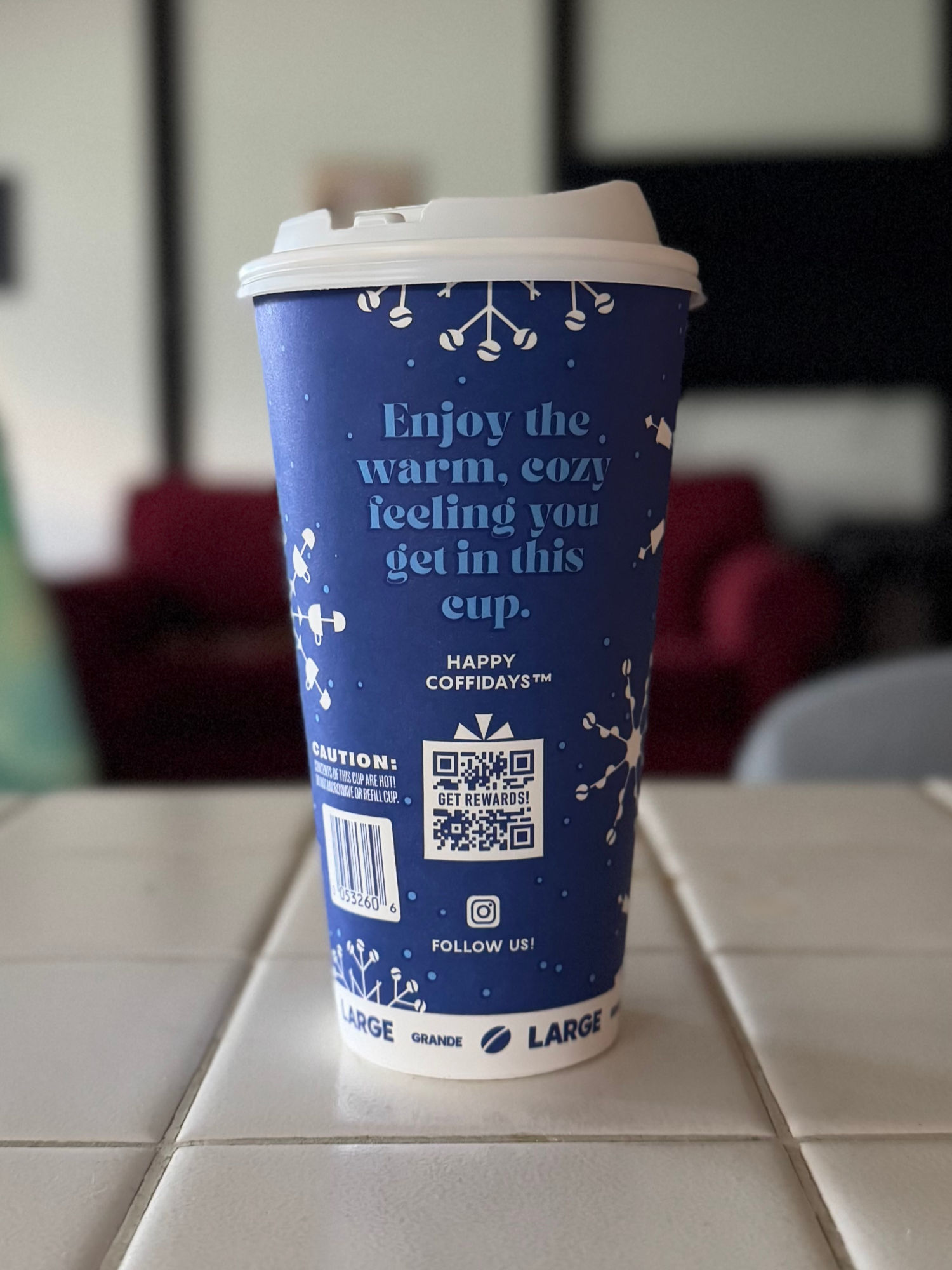
Enjoy the warm, cozy feeling you get in this cup.
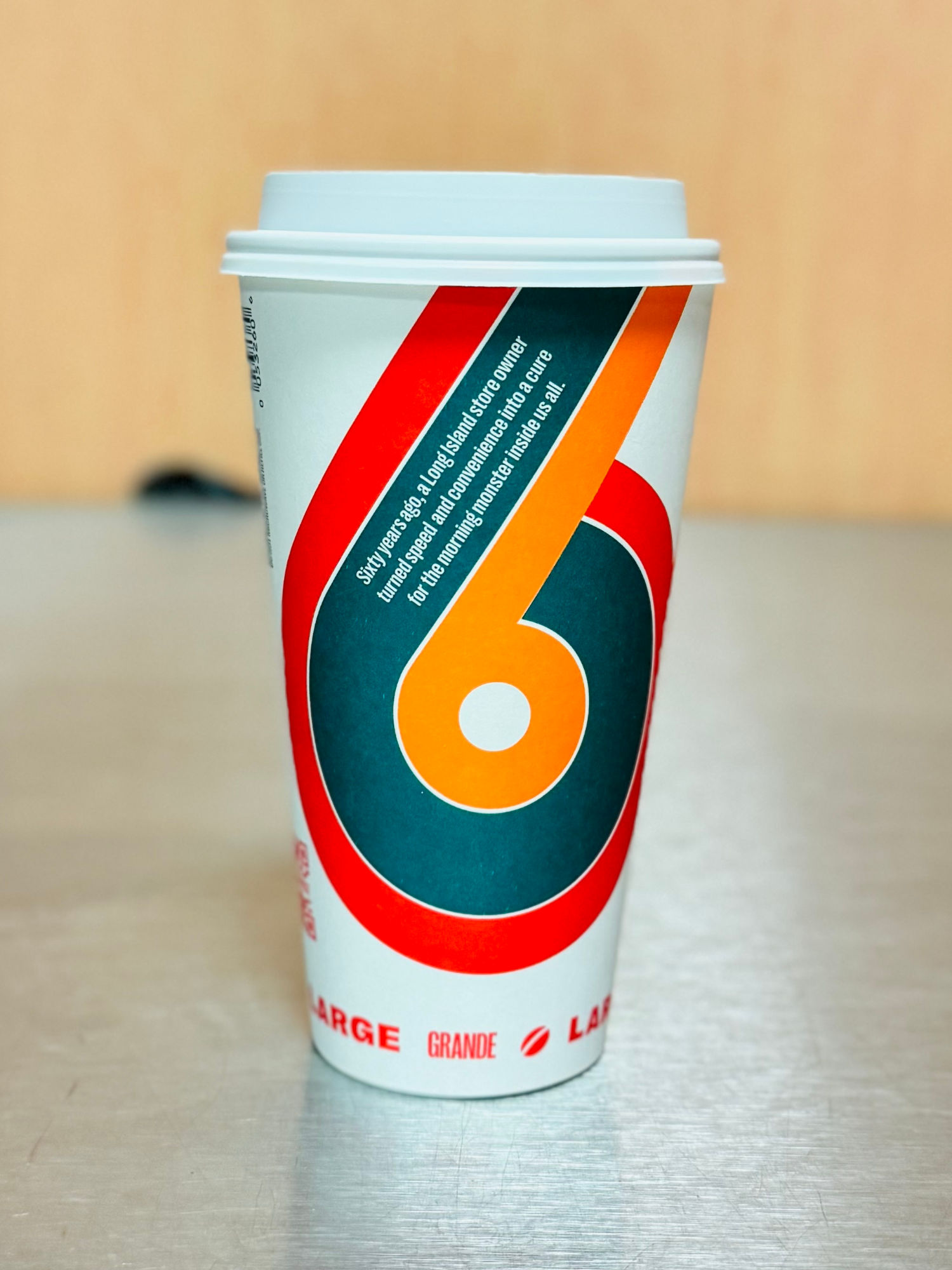
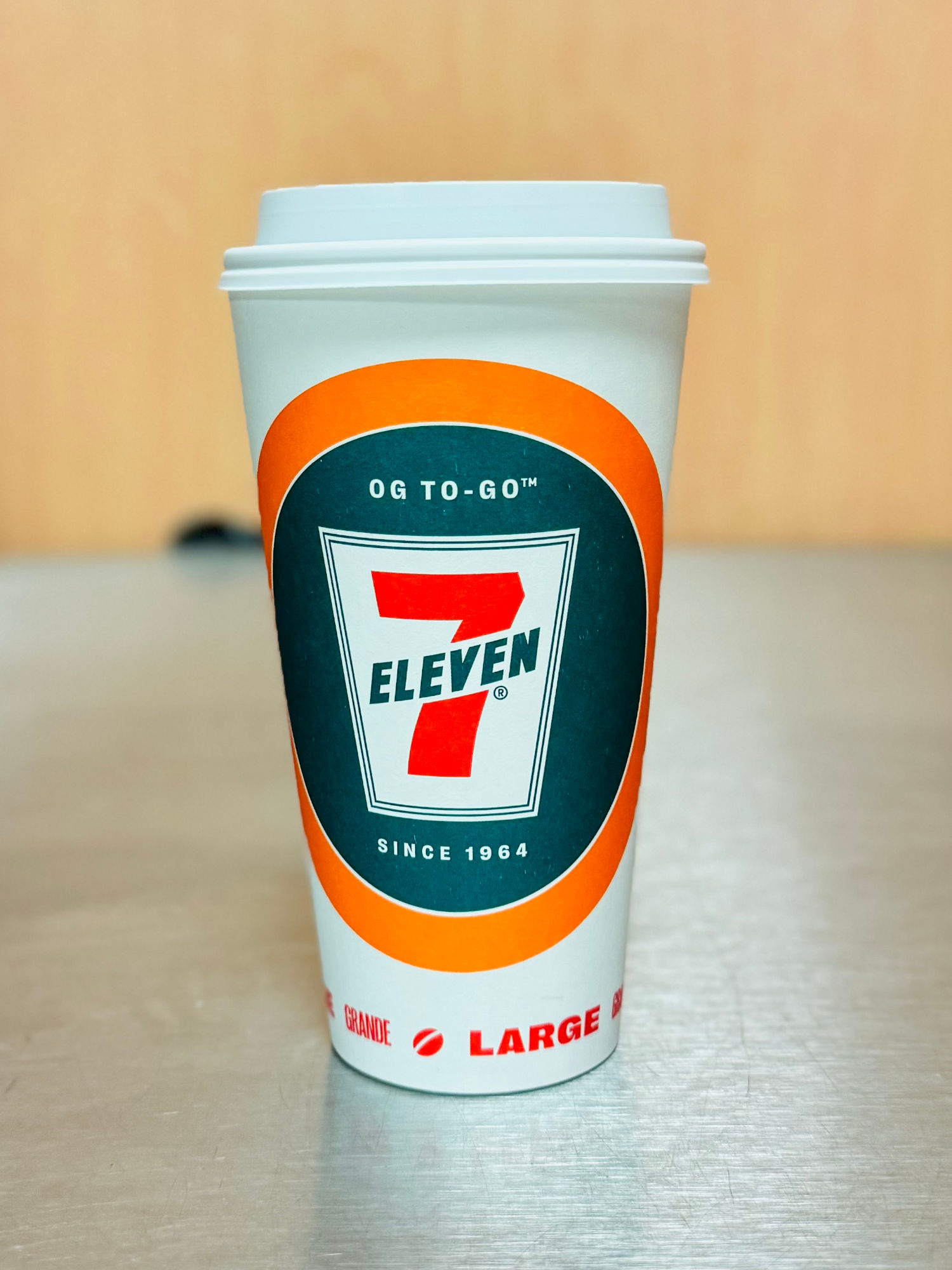
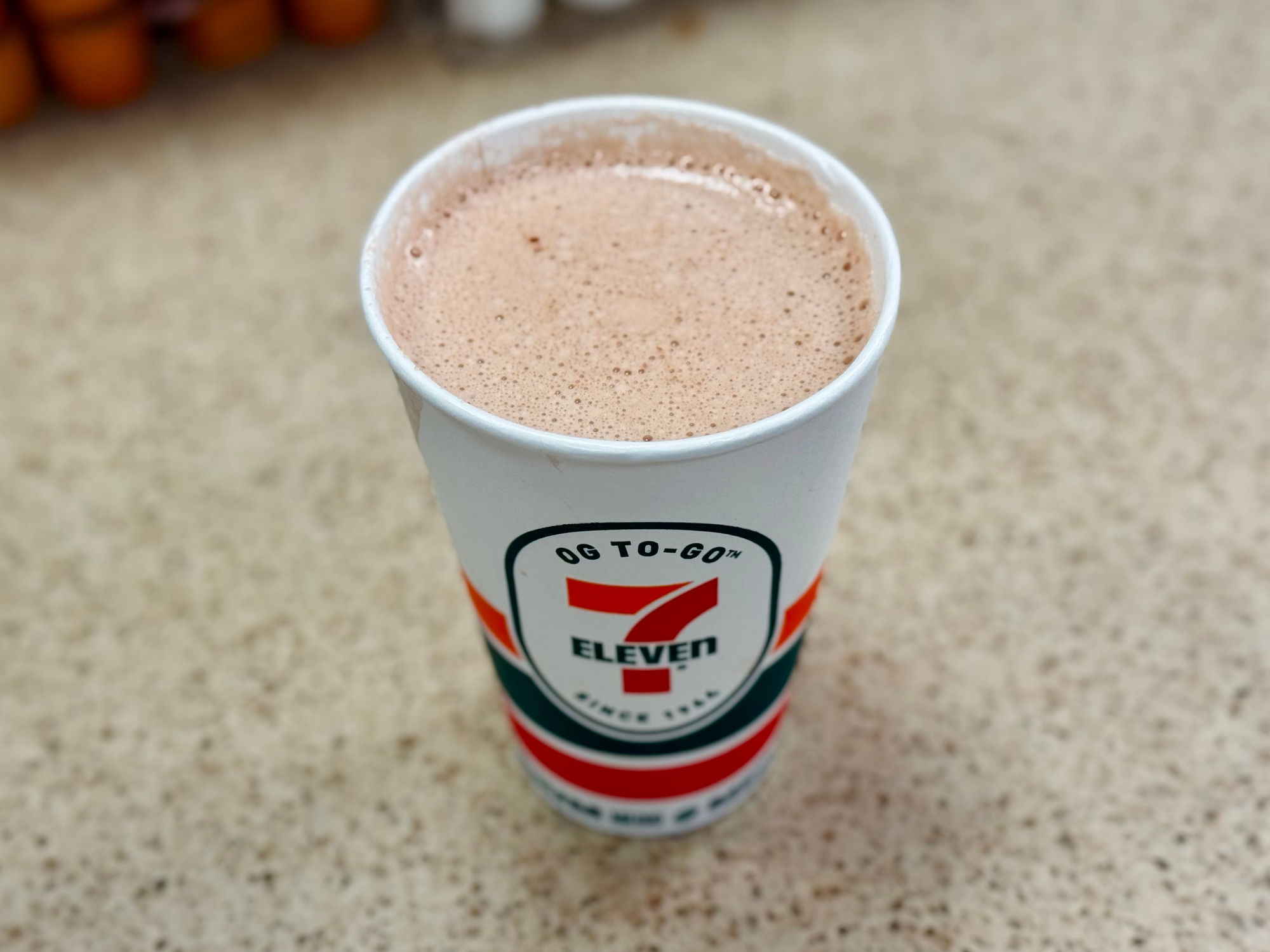
Hot Chocolate
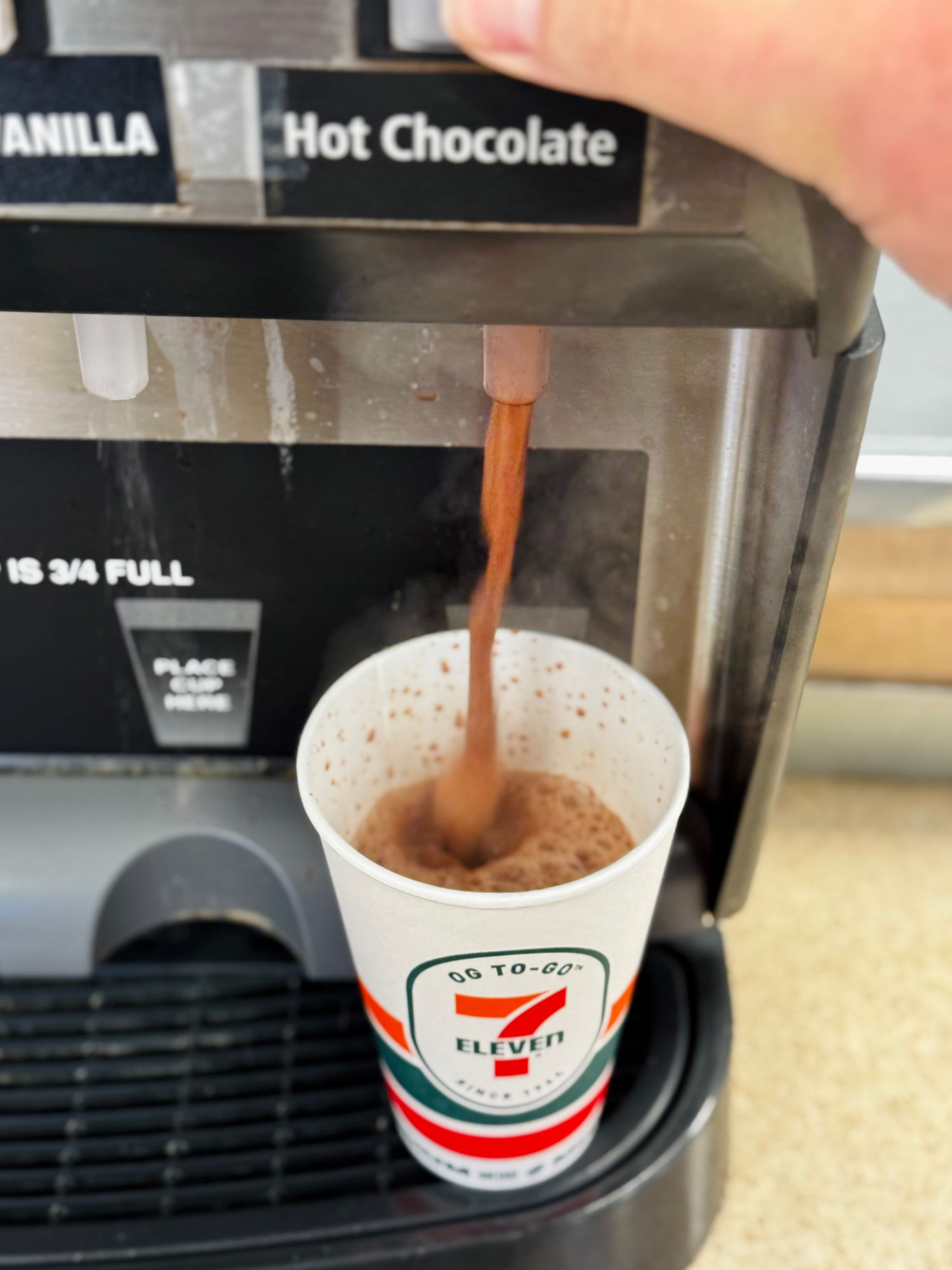
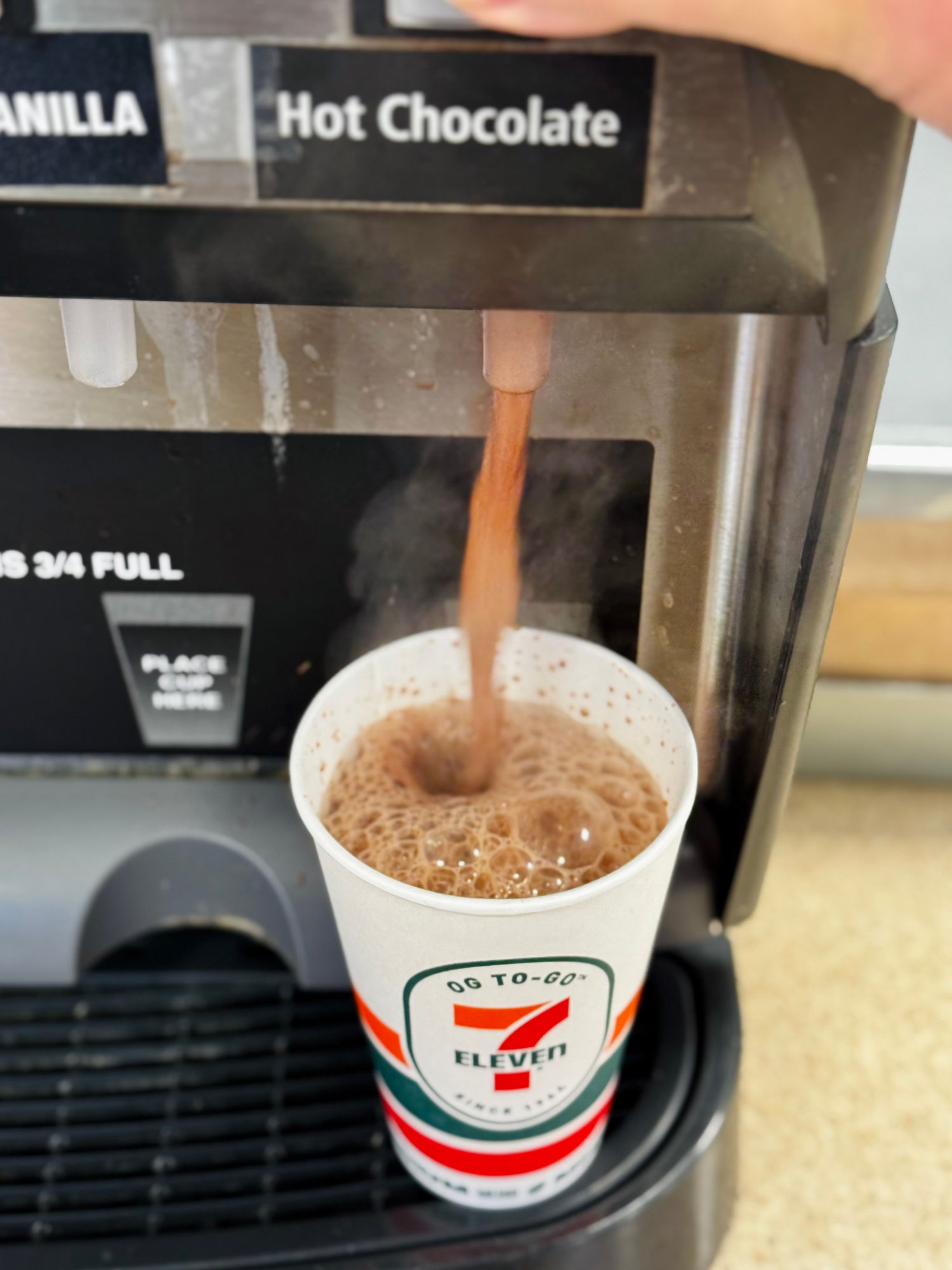
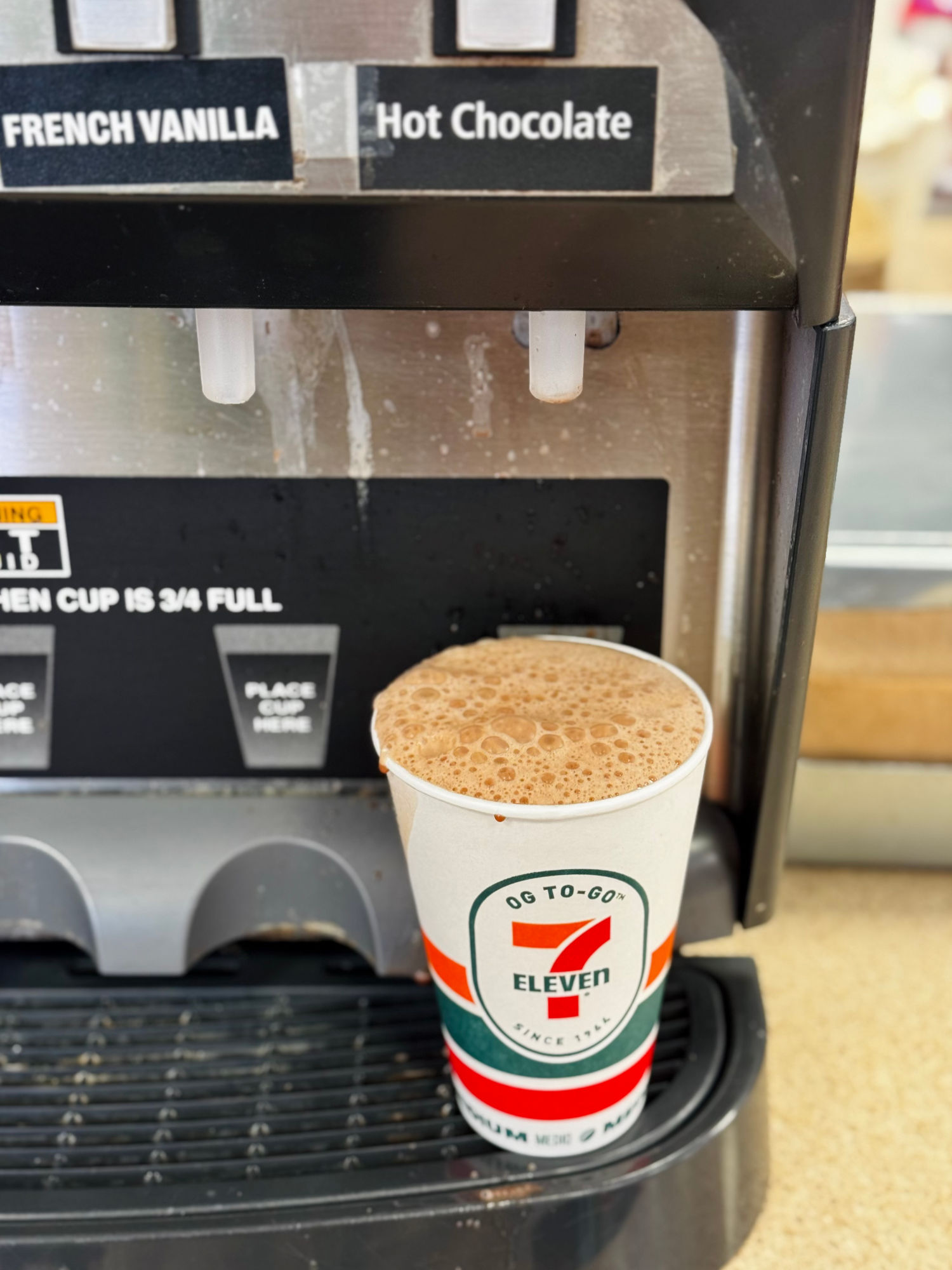
7 ElevenWho We Are
We strive to be the first choice for convenience for our customers - anytime, anywhere. To do that, we make our customers' day a little more awesome by delivering fast, personalized convenience - when, where, and how they want it.In 1927, 7‑Eleven showed the world just how convenient shopping could be - and we've been doing it every day since. Today, 7‑Eleven is a global brand with more stores than any other retailer in the world - more than 84,000 across 20 countries to be exact. 7-Eleven, Inc. now operates a robust family of banners and brands, including Speedway, Stripes, Laredo Taco Company, and Raise the Roost Chicken & Biscuits locations throughout the U.S. The brand also has a history of firsts - coffee in to-go cups, 24/7 hours and self-serve soda fountains, to name a few. Not to mention iconic products – like Slurpee and Big Gulp drinks - that have become a part of American culture. As the world's largest convenience retailer, 7‑Eleven also helped pioneer the franchise model and is now consistently ranked as a top-10 Franchisor - a true testament to our entrepreneurial spirit. Although we've grown significantly over the years, we remain laser-focused on innovating to meet the needs of customers. Today, 7‑Eleven, Inc. is wholly owned by Seven & i Holdings Co. Ltd.
Through the Years
- 1927 World's First C-Store
From the dock of an icehouse in Dallas, Texas, the world's first convenience store is born.- 1950s Beyond Texas
The one-stop shopping locations offer everything consumers need, including gas. New stores open in Florida, Maryland, Virginia, and Pennsylvania.- 1963 All Night Long
A 7-Eleven location near a university in Austin stays open all night to accommodate students. The 24/7 idea is a hit and soon catches on in other locations.- 1965 The Drink Revolution
It starts with the launch of the Slurpee drink and the world's first coffee to go.- 1970 The Self-Service Movement
7-Eleven leads the way, offering self-serve gas and the first self-serve soda fountain. Americans are also introduced to the Big Gulp fountain drink.- 1990s Getting Healthy
7-Eleven starts shipping fresh food products daily to meet the needs of health-conscious consumers.- 2000s New 7-Eleven Day Traditions
HAPPY SLURPEE! 7-Eleven starts a new tradition on its 75th birthday in 2002 that continues to this day – FREE birthday Slurpee drinks for everyone! Since then, we've given away MILLIONS of Slurpee drinks! A new millennium deserves a new brand, and 7-Eleven aced this one with 7-Select. We think they're the best snacks, treats, beverages, groceries, and more ... but we may be partial. They win lots of awards, so maybe not.- 2005 New Ownership
7-Eleven, Inc. is now owned by SEJ Asset Management & Investment Company, which is owned by Seven-Eleven Japan Co., Ltd. Seven-Eleven Japan Co., Ltd. is wholly-owned by Seven & i Holdings Co. Ltd.- 2010s Digital Transformation
Change comes fast in this digital decade, and it looks a lot like a smartphone. 7-Eleven introduces its own app, with shopping solutions that are only a tap away – like paying, earning rewards, getting free stuff, entering contests, and playing cool AR games. And if coming to a store isn't convenient enough, well, we've thought of that too. Order your 7-Eleven faves in the app – including hot foods and ice-cold drinks – and have them delivered directly to your door.- Present A Growing 7-Eleven Family
7-Eleven becomes an even bigger family of brands. The acquisitions of Sunoco and Speedway adds over 5,000 new stores across the U.S. They bring new ideas, people, and products that make us stronger and better. Welcome to Speedway, Stripes, APlus, and Laredo Taco Company.Food & Beverage
- Perfect coffee starts with the right bean
We understand that nothing quite kickstarts your day like a steaming cup of fresh coffee. At 7-Eleven, we've mastered the art of brewing the finest coffee beans to deliver the perfect balance of flavor and aroma. Our dedication to freshness begins with the selection of premium beans, sourced from the most reputable growers worldwide. Whether you prefer a bold, robust brew or a smooth, mellow blend, 7-Eleven has the fresh coffee that suits your taste.- The Slurpee Cup Evolution
In the late 1950s, Omar Knedliks's soda fountain at his restaurant broke. He stashed some soda pop in the freezer and had the idea to turn frozen soda into a beverage. He used parts from an automobile air conditioner to build a simple frozen beverage machine.
Since then, Slurpee has become a beloved beverage of millions, a pop culture icon, and 7-Eleven's most well-known proprietary brand. From its beginning, with kooky flavor names like Fulla Bulla, Blue Blunder and AWA AWA Ukulele, Slurpee has been keeping it “cool” for generations.- Big Gulp
When your mouth desires something cold and refreshing look no further than an ice-cold Big Gulp drink. With five new flavors, you'll be able to sip on a different drink every day of the week. Whether you're looking for something fruity, bubbly or sweet, you'll find exactly what you're thirsting for.- Hot Foods
Our snackable, grabbable, delectable hot foods are ready to go when you are.- Fresh & Chilled
Get fresh with your food with a variety of healthy salads, sandwiches, fruits, veggies, and more.- Snacks
Crunch on this – we've got snacks for any occasion, or no occasion at all.
7 ElevenVision
Be the first choice for convenience. Anytime. Anywhere.Mission
We make our customers' day a little more awesome by delivering fast, personalized convenience - when, where, and how they want it.How We Work
To lead, we serve. 7-Eleven has always been about serving the needs of others – which is why customer obsession and servant leadership is at the core of everything we do. We live by our Values and Leadership Principles so we can best serve our customers, our stores, our Franchisees, and our communities – every single day.A Growing Family of Brands
As the world's first convenience store, our top priority has always been to give customers the most convenient experience possible to consistently meet their needs. 7-Eleven aims to be a one-stop shop for consumers – a place people can always rely on to deliver what they want, when, where, and how they want it. This goal continues to shape 7-Eleven's ethos, driving 7-Eleven's expansion into operating Speedway, Stripes, Laredo Taco Company, and Raise the Roost Chicken and Biscuits, with locations, as well as proprietary products and services including 7NOW, 7Rewards, Speedy Rewards, and 7–Eleven Fleet, throughout the U.S.Services
- Delivery
Through 7NOW and third-party delivery providers, we offer best-in-class delivery of food, convenience, and grocery items. Delivery via 7NOW is available throughout the U.S. and Canada, providing 24/7 delivery in about 30 minutes or less of over 3,000 products, including groceries, over-the-counter medicines, household goods, a range of food and beverage options including pizza and Slurpee drinks, beer and wine, and more. The 7NOW delivery business doubled in 2021 and continues to grow.- Loyalty
Launched in 2015, 7Rewards is the 7-Eleven best-in-class loyalty program where customers are rewarded for every dollar spent. 7Rewards members have access to a suite of features within the 7‑Eleven app, including Mobile Checkout, 7‑Eleven Wallet, Fuel Loyalty, and 7NOW.
Speedy Rewards, launched in 2004, allows Speedway customers to earn points on both merchandise and fuel purchases. Points can be redeemed for snacks, drinks, or more using the Speedy Rewards mobile app.- Fleet
Fuel has been part of the 7‑Eleven convenience offering since 1928, and is now available at over 8,000 locations across the U.S. The 7‑Eleven Fleet program has multiple card offerings to fit the needs of businesses of all sizes across 7-Eleven's fueling network of 7-Eleven, Speedway and Stripes stores. Our program also includes the 7FLEET Diesel Network, a nationwide network of truck diesel lanes established by 7-Eleven Inc. These truck-friendly locations are built with professional drivers in mind with payment acceptance, food offerings and other amenities which better serve the trucking industry. the 7FLEET Diesel Network currently includes over 340+ locations in 24 states.- Trans@ct
The Trans@ct by 7‑Eleven Prepaid Mastercard offers cardholders an alternative to traditional banking so they can receive direct deposit payments such as government benefits or paychecks sooner. After registration and activation, all funds loaded onto Trans@ct by 7‑Eleven card accounts are FDIC-insured. Customers can purchase a Trans@ct by 7‑Eleven card at participating 7‑Eleven stores or apply online.
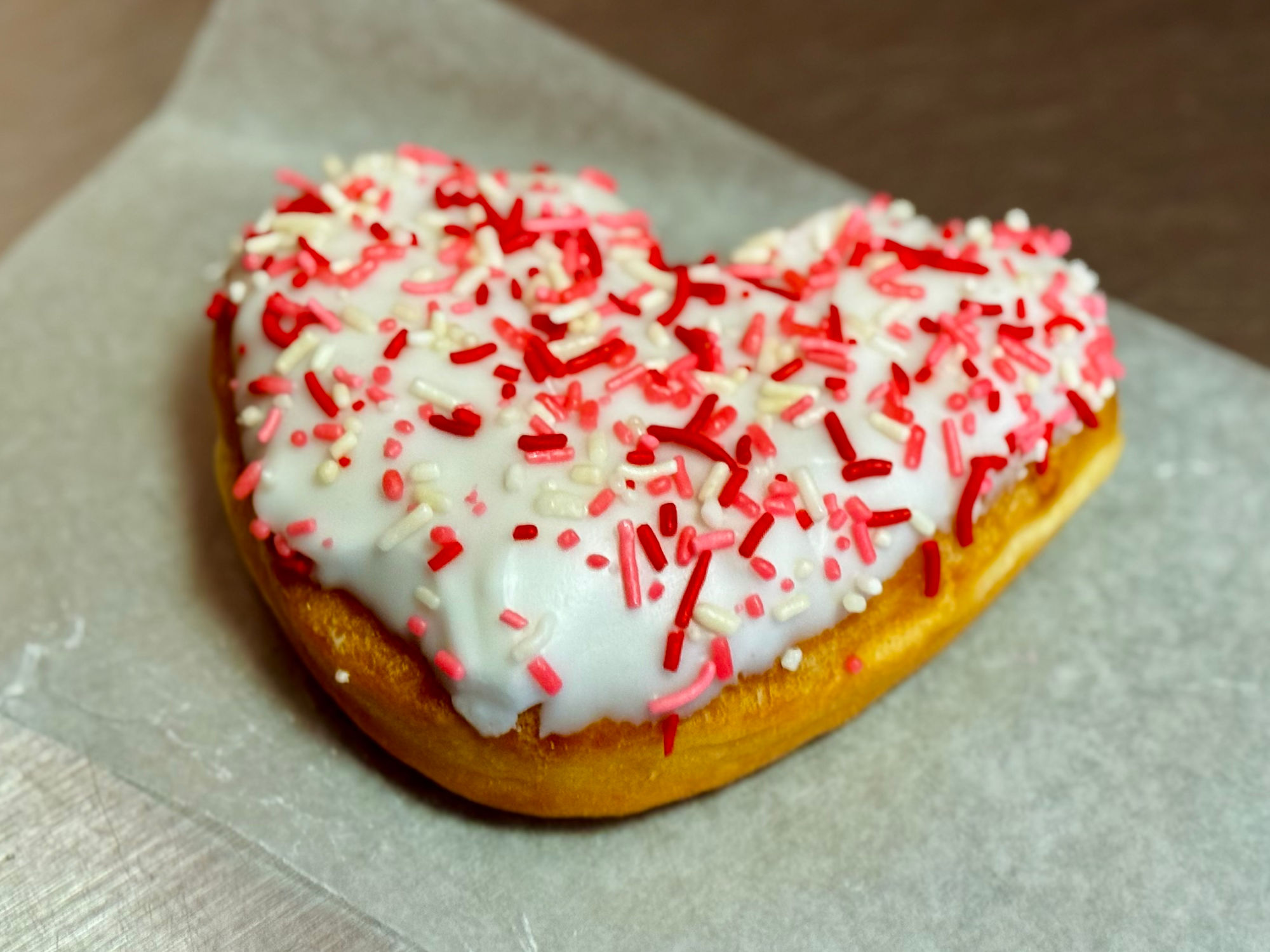
Heart Shaped Donuts!
- Around Valentine's Day
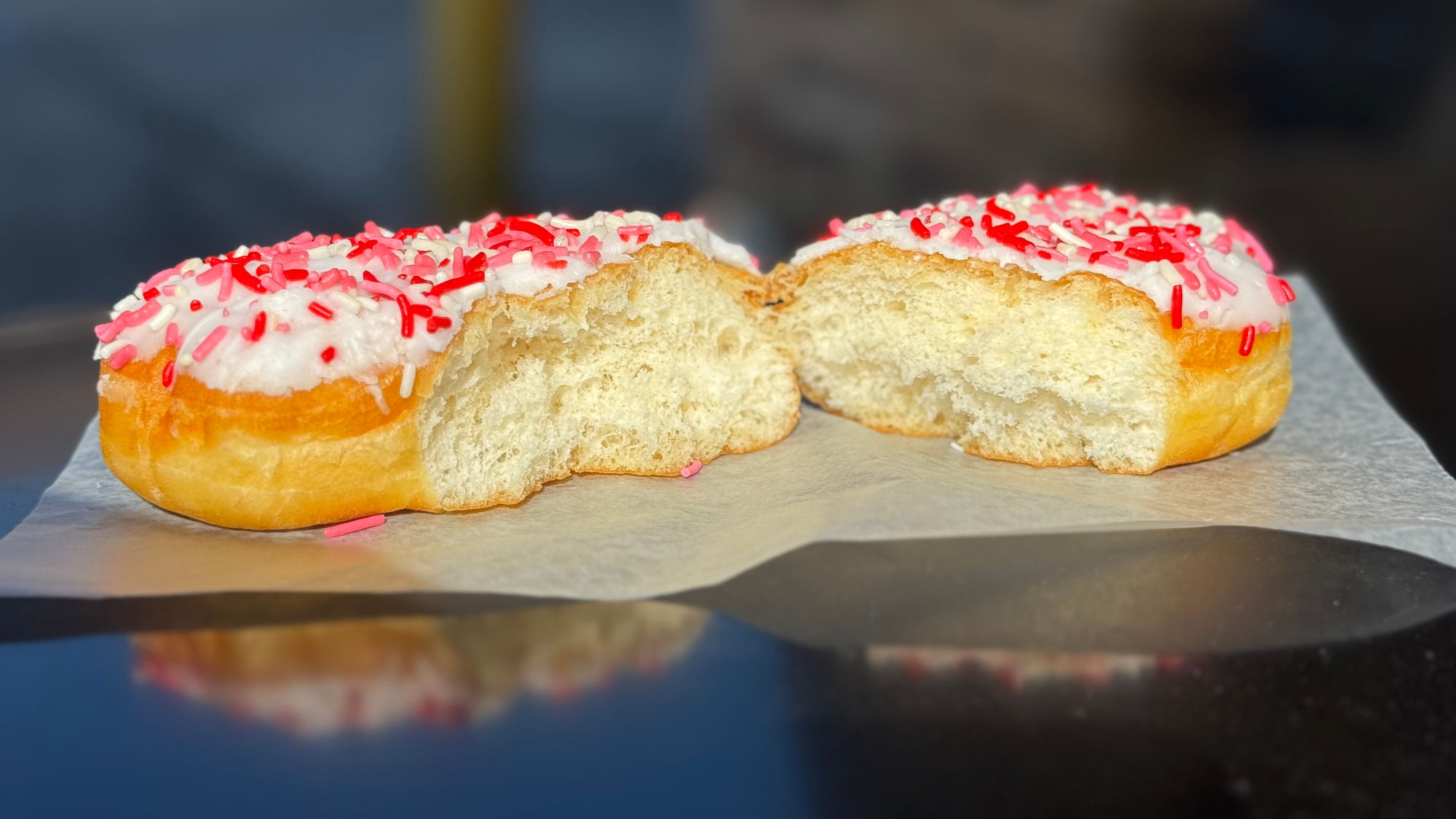
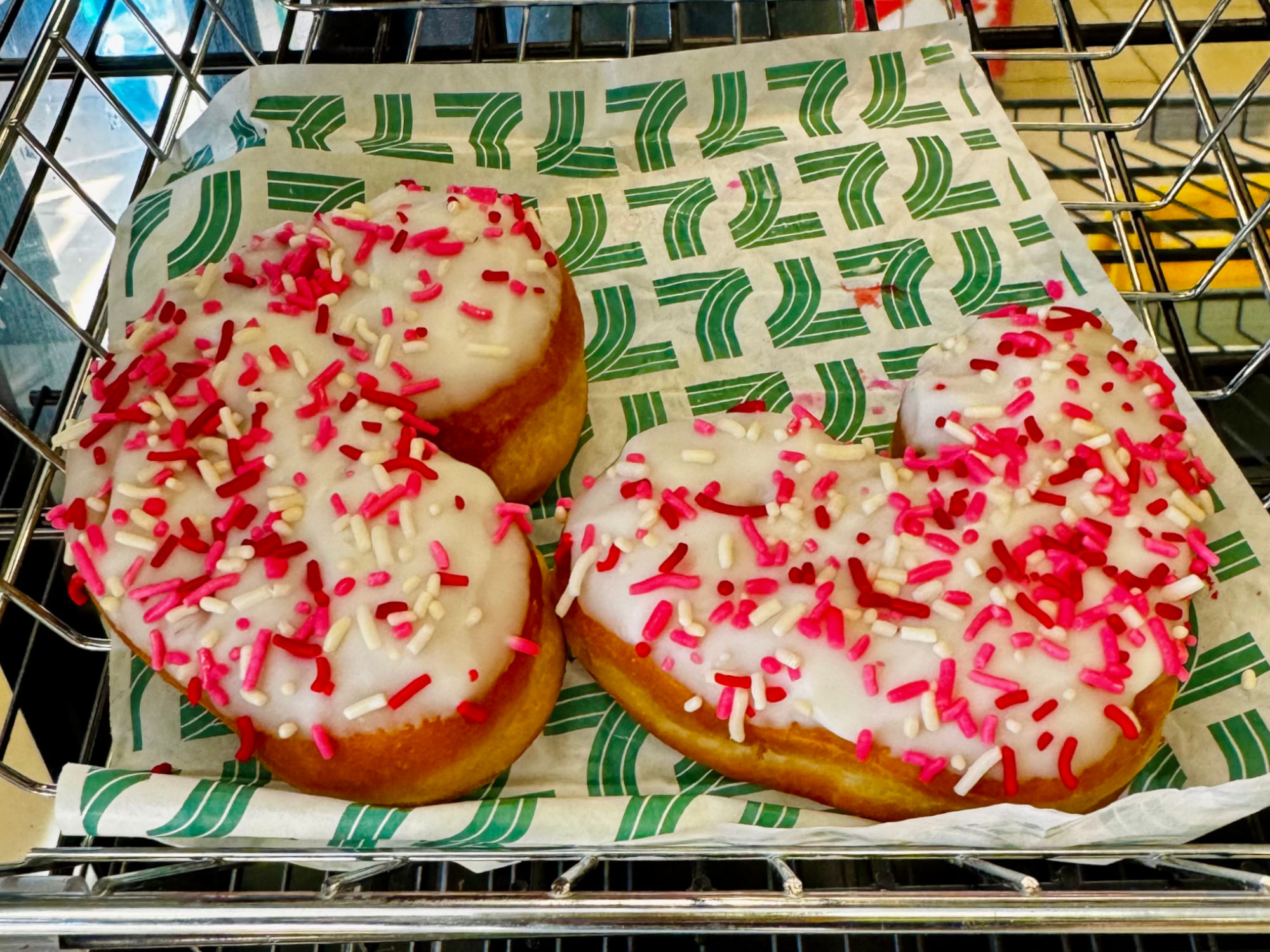
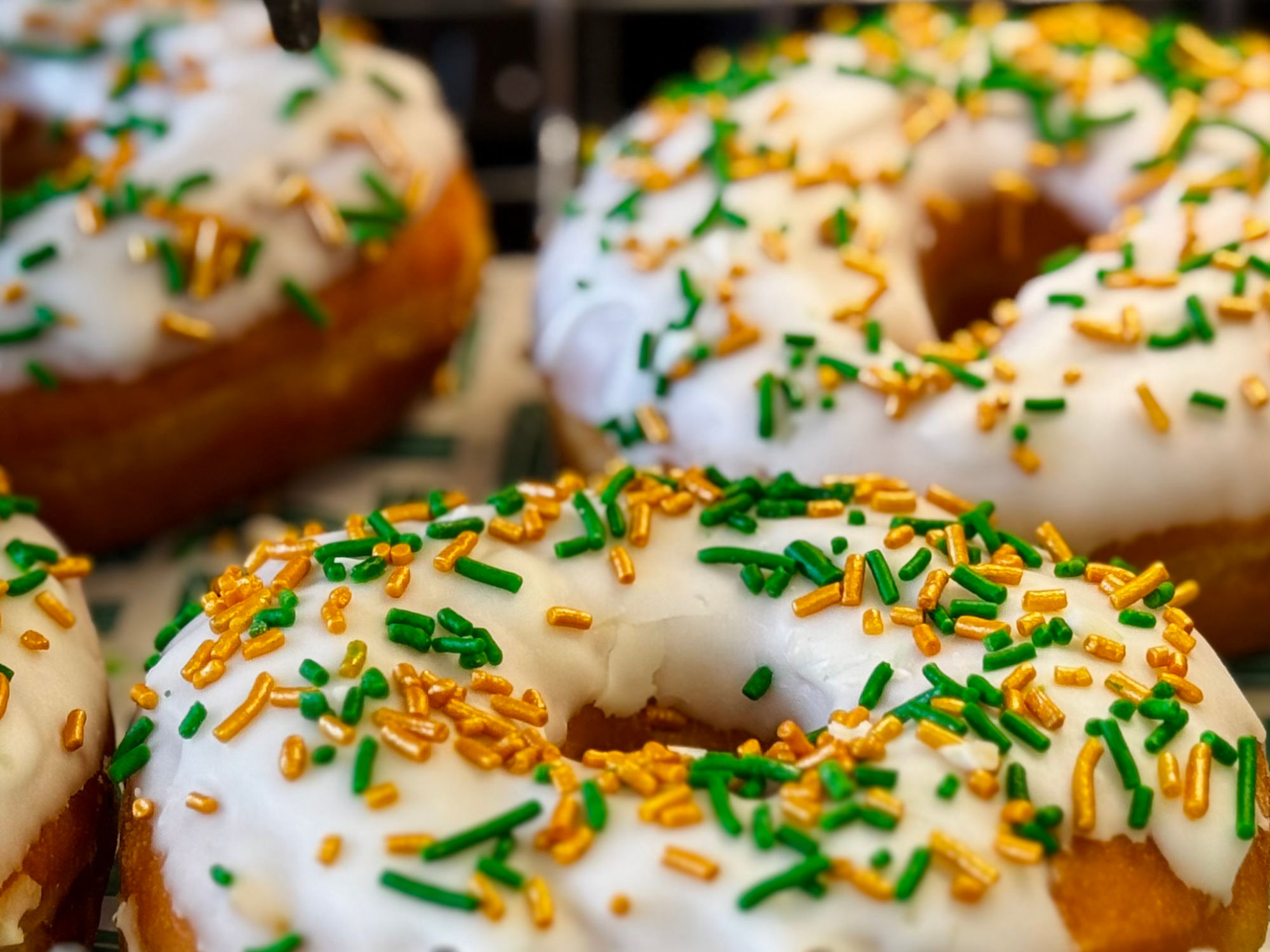
Saint Patrick's Day Donuts!
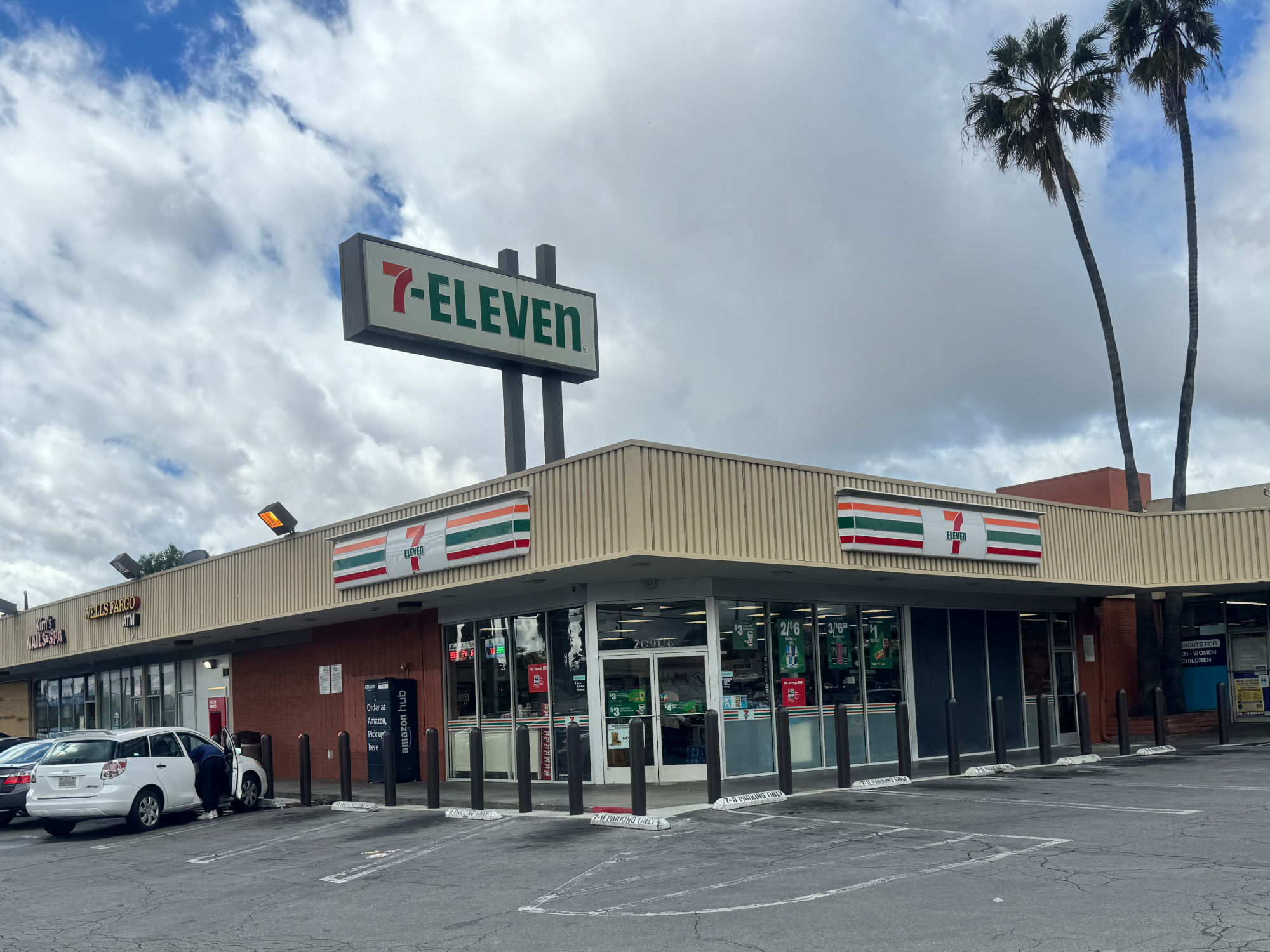
WIKIPEDIA7-Eleven, Inc.
A convenience store chain, headquartered in Irving, Texas and owned by Japanese company Seven & I Holdings through Seven-Eleven Japan Co., Ltd. The chain was founded in 1927 as an ice house storefront in Dallas. It was named Tote'm Stores between 1928 and 1946. After Ito-Yokado, a Japanese supermarket chain and the parent company of Seven-Eleven Japan, acquired a 70% stake in the company in 1991, the company became a wholly-owned subsidiary of Seven-Eleven Japan in November, 2005.7-Eleven operates, franchises and licenses 84,500 stores in 19 countries and territories as of January 2024. While operating under its namesake brand globally, within the United States it operates as
Both Speedway and Stripes operate alongside 7-Eleven's namesake stores in several markets.
- 7-Eleven - nationally
- Speedway - nationally but mostly in the Midwest & East Coast
- Stripes Convenience Stores - within the West South Central United States
7-Eleven is known for its relatively large drink sizes and 24-hour accessibility. 7-Eleven in the United States sells
- Slurpee drinks
- Big Gulp beverages
- 7-Select Private-Brand Products
- Coffee
- Fresh-Made Daily Sandwiches
- Fresh Fruit
- Salads
- Bakery Items
- Hot and Prepared foods
- Gasoline
- Dairy Products
- Carbonated Beverages and Energy Drinks
- Juices
- Donuts
- Financial Services
- Product Delivery Services
7-ElevenEtymology
The company's first outlets were in Dallas, named "Tote'm Stores" because customers "toted" away their purchases. Some stores featured "native" totem poles in front of the store. In 1946, the chain's name was changed from "Tote'm" to "7-Eleven" to reflect the company's new, extended hours, 7:00 a.m. to 11:00 p.m., seven days per week.
7-ElevenLogo
Following 7-Eleven's adoption of its current logo in 1968, a lowercase n was used in the logo because the first wife of John P. Thompson Sr., the company's president during the 1960s, thought the all-capitals version seemed a little aggressive. She suggested the change "to make the logo look more graceful".
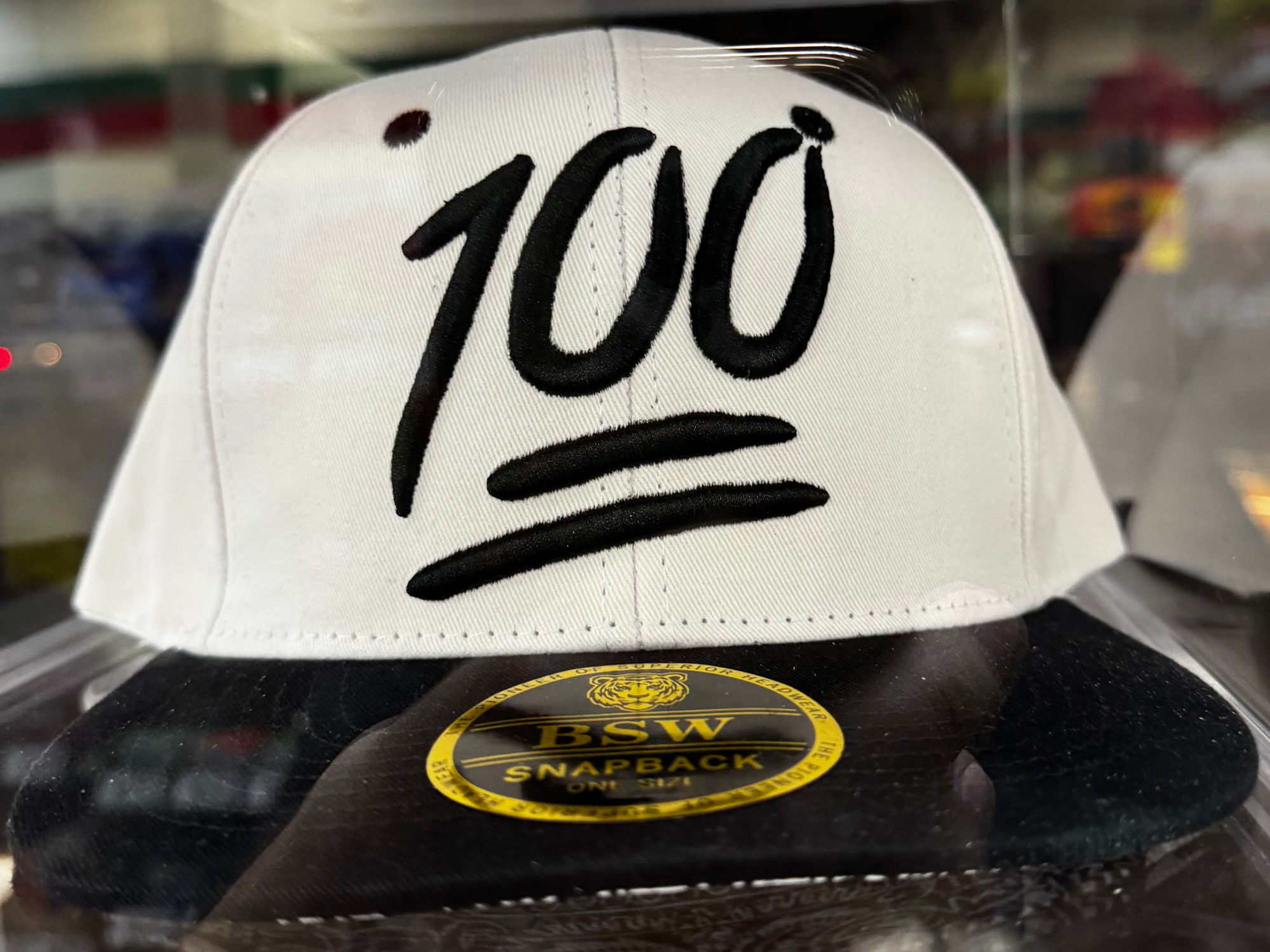
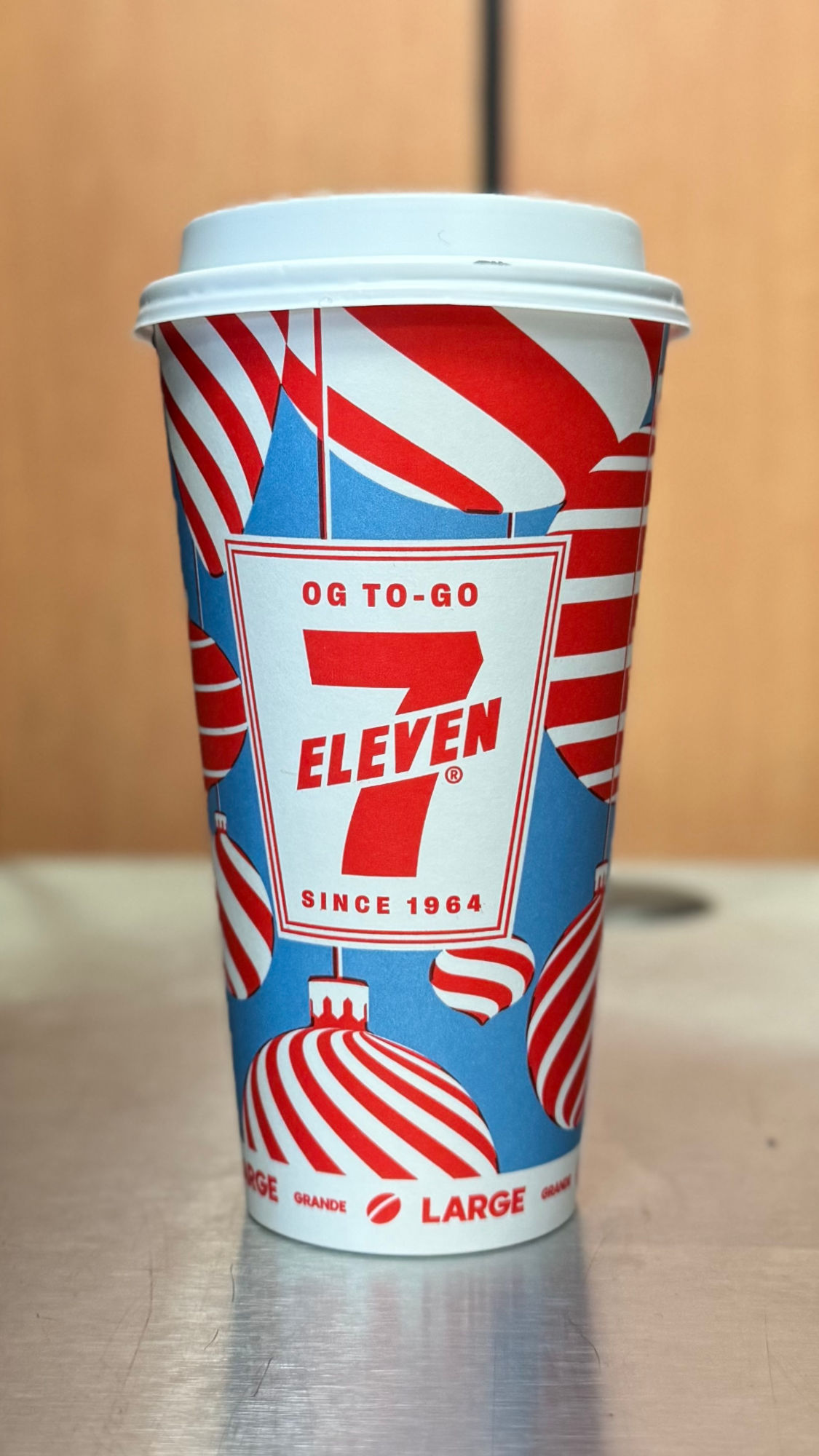
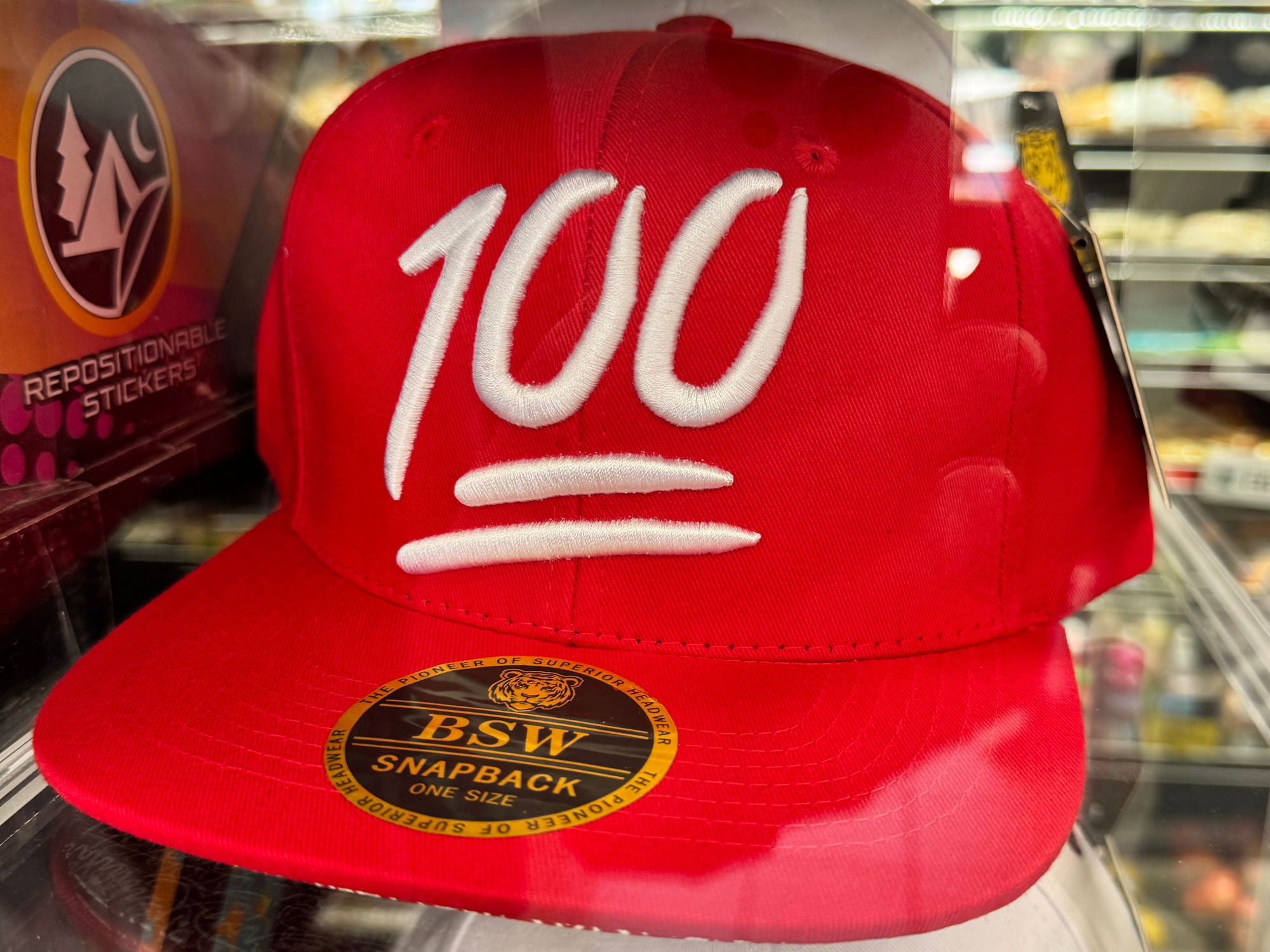
- 7-Eleven started in 1927.
That was when Joe Thompson, an employee of the Southland Ice Company in Dallas, Texas, began selling eggs, milk, and bread from a makeshift storefront in one of the company's icehouses. These bare necessities were kept cold thanks to the ice Southland produced, and local residents liked the convenience of avoiding the crowds and aisles of a regular grocery store if they only had to pick up a few items.Thompson eventually bought out the ice company and started opening convenient little stores all over Texas. Shortly after, a company executive brought a souvenir totem pole back from a trip to Alaska, and set it in front of one of the busiest locations. Soon, the spot had earned the nickname the "Tote'm Store," not only because of the totem pole, but because customers toted away their purchases. The company officially adopted the name and decorated their locations with an Inuit-inspired theme to match. The name changed to 7-Eleven in 1946 to reflect their new store hours-7 a.m. to 11 p.m.-in order to capitalize on the post-World War II economic boom.
- 7-Eleven's new schedule was unheard of at the time.
No one thought there would be demand for a store that was open 24/7-until one night in Austin in 1962. The local 7-Eleven had seen such a rush of students following a University of Texas football game that they were forced to stay open until dawn the next day. Sensing a trend, the store continued to stay open all night on the weekends, and soon more and more locations adopted the new schedule as well.- 7-Eleven is one of the world's largest franchise companies.
They beat out McDonald's in 2007 and have since outgrown them by about 20,000 stores. Japan is the largest market with more than 20,000 stores under the name "Seven & I Holdings," the parent company of 7-Eleven since 2005. North America has more than 9800 stores. And the company keeps growing, with a brand new store opening somewhere in the world every two hours of every day.- 7-Eleven ran the first television advertisement for a convenience store in 1949.
The ad touted their curbside grocery delivery service, and an animated rooster and owl reminded customers that the store was open early and closed late.- The Slurpee was actually invented at a Dairy Queen.
In the late-1950s, Omar Knedlik of Kansas City owned a rundown Dairy Queen. When his soda fountain went on the fritz, he improvised by putting some bottles in the freezer to stay cool. However, when he popped the top, they were a little frozen and slushy. Folks loved them and started requesting "those pops that were in a little bit longer." Realizing he had a surprise hit on his hands, Knedlik built a specialized machine using the air conditioning unit from a car, and cranked out slushy soda by freezing a mixture of flavored syrup, water, and carbon dioxide to make it fizz. He called it an ICEE, but when the drink concept was licensed to 7-Eleven in 1965, the company's marketing department renamed it the Slurpee after the sound made while sipping it through a straw.- Since 2002, 7-Eleven has given away free small Slurpees to celebrate the company's birthday.
On July 11 (7/11), 7-Eleven gives away about 500,000 gallons of Slurpees ... in North America anyway. In Australia, where the ice cold drink is also very popular, Slurpees are given away on November 7 (written Down Under as 7/11) to the tune of about 270,000 gallons.- Almost all Slurpee flavors are considered kosher pareve (food that is neither meat nor dairy).
There are a few, such as Diet Pepsi and the Jolly Rancher mixes, that are considered kosher dairy (due to the chemical tagatose in the artificial sweetener), while others, like the popular Pina Colada drink, are not certified at all. Some 7-Eleven stores get the machines themselves certified kosher as a selling point for their Jewish customers.- For more than 20 years, the ruling Slurpee capital of the world has been Winnipeg, Canada.
Manitoba has an average of over 188,000 Slurpees sold in five regional stores every month.- Since the 2000 presidential election, 7-Eleven has run a promotion called "7-Election."
Customers vote by purchasing special red or blue coffee cups printed with each candidate's name. The cups are scanned at check-out and automatically entered in this unscientific, but surprisingly accurate poll-in 2000 and 2004, the number of coffee cup votes and the number of actual popular votes for both candidates was only off by 1 or 2 percentage points. While 2008's 7-Elections results were still correct, they gave the election to Obama by a landslide-60 percent to 40 percent-when the margin was really only about 7 percent. The trend continued in 2012, as caffeine enthusiasts went blue to the tune of 59 percent for Obama to 41 percent for Romney, while the actual vote wound up being 51 percent to 47 percent. In 2016, 31 percent voted Democrat, 29 percent Republican, and 40 percent opted for the special "Speak Up" (write-in vote) cup.- To promote the release of The Simpsons Movie in 2007, 12 7-Elevens in North America were converted to Kwik-E-Marts.
That's the convenience store in Springfield owned by Apu Nahasapeemapetilon.- 7-Elevens are different all around the world. In Indonesia, for example, 7-Elevens are more like a hip, upscale coffeehouse where a majority of customers are under the age of 30. The stores offer free Wi-Fi, plenty of tables and chairs inside and out on the sidewalk, and often feature live musical performances.
In Taiwan, 7-Elevens are more common than Starbucks in Seattle. In the capital city of Taipei, there are more than 4000 locations in a city of 23 million, with many city blocks capable of sustaining more than one location. Aside from purchasing local food and Slurpees, customers can pay credit card and utility bills, book travel arrangements, and buy small electronics like iPods. It's also not unusual for people to have packages delivered to their closest 7-Eleven instead of their home, because it's more convenient to pick it up late at night instead of trying to coordinate with a deliveryman.
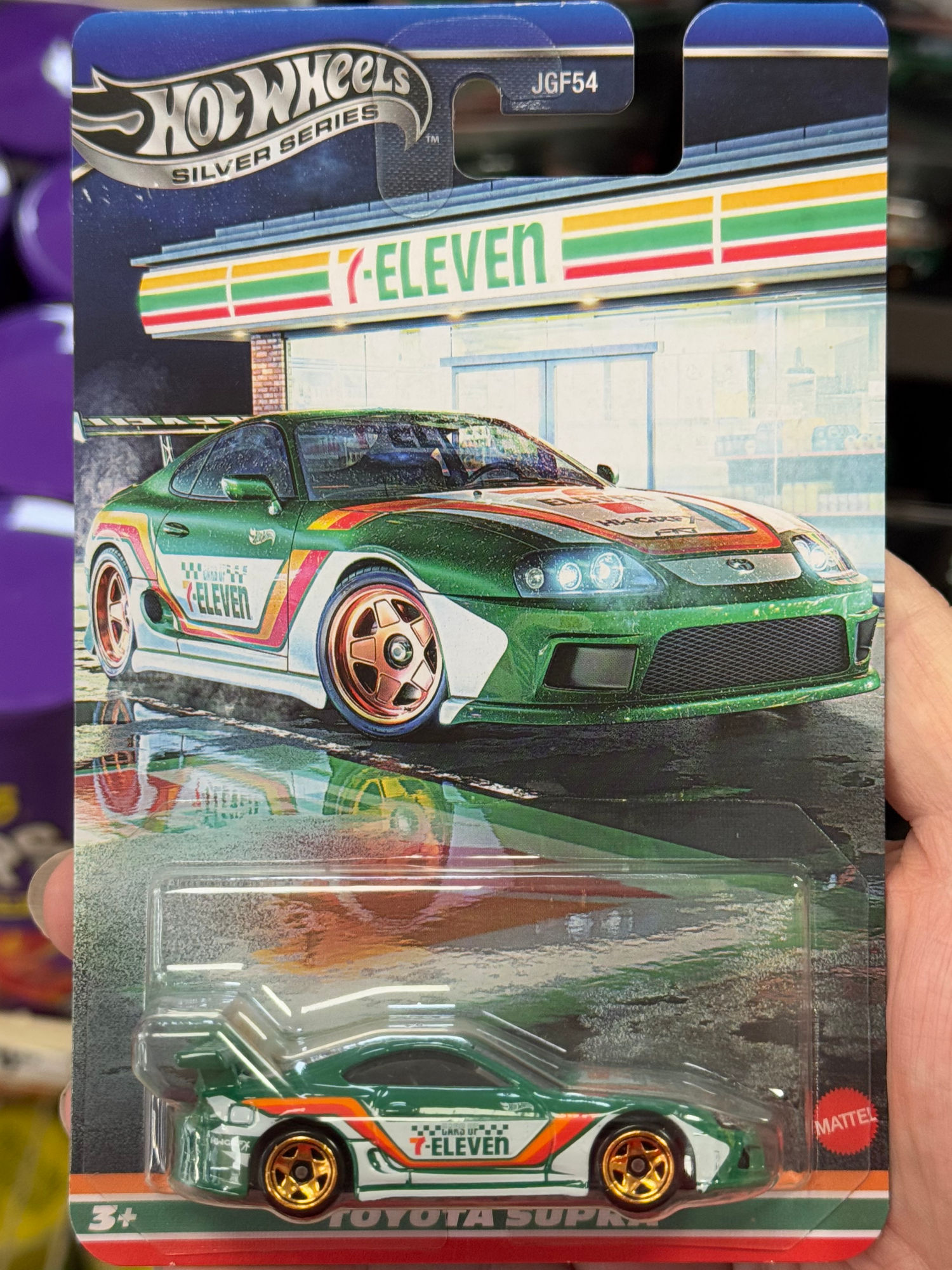
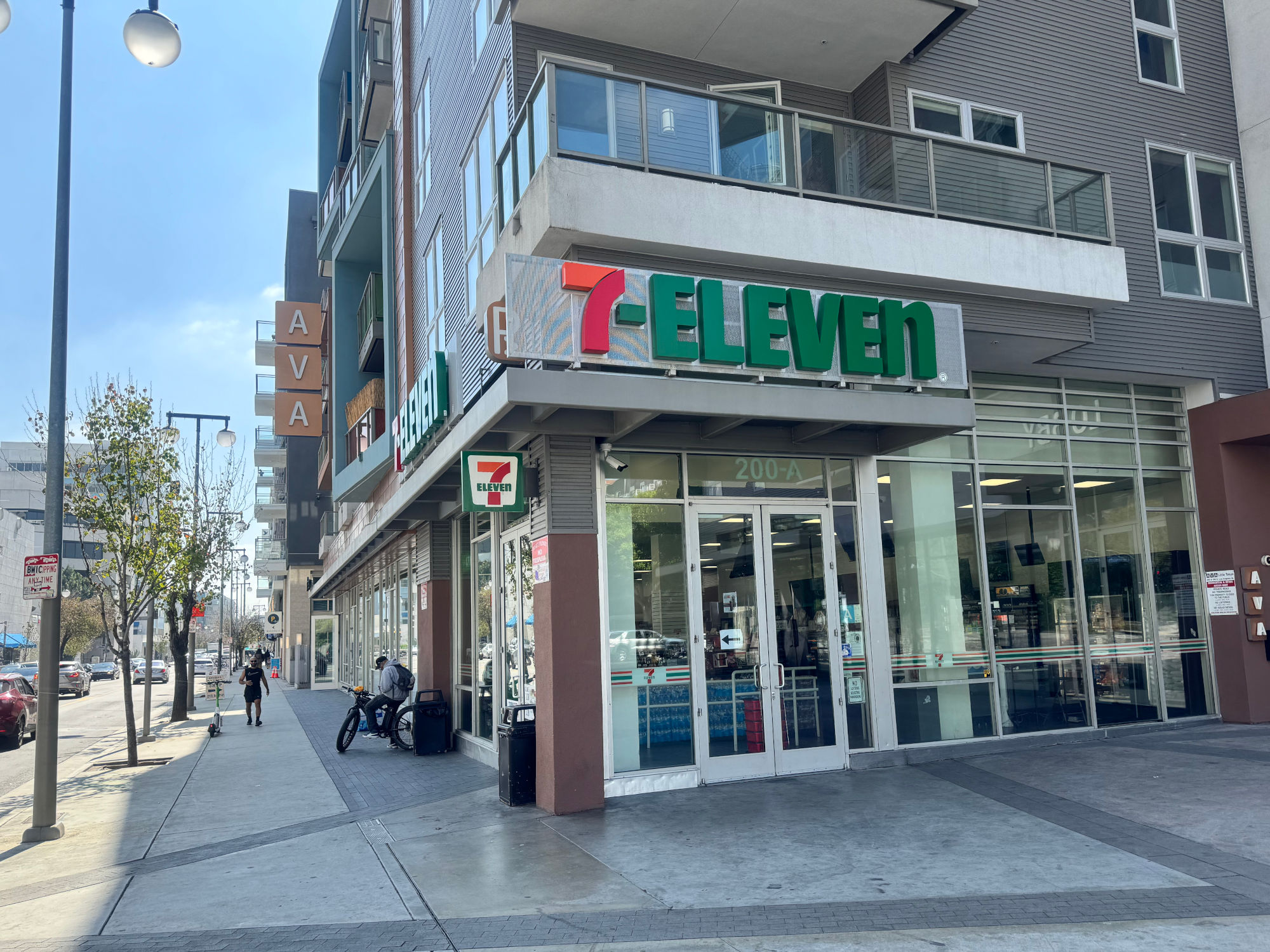
Reader's DigestThe 7-Eleven Logo
It's a big red and orange seven but once you take a good, hard look at the unmistakable 7-Eleven logo, you become consumed by grammatical and typographical conundrums. Why is it 7-Eleven and not 7-11? Why does the current 7-Eleven logo have a lowercase N? We answer the questions you've puzzled over for years.7-Eleven: Meaning and History
The company's legal name is 7-Eleven. Why not 7-11 or even Seven-Eleven? Or why not be named after 7-Eleven's hours? And why is the N in Eleven not capitalized?In 1937, Southland Ice Company started selling grocery staples and beer out of its icehouses. The business grew so dramatically that the company turned these icehouses into “convenience stops” called Tote'm stores, named as such to invite customers to “tote” away their spoils. The stores' logo used a large totem pole as the T.
By 1946, Southland had several shops under the names Tote'm and City Ice and wanted to give all of its stores a common name. It was Tracy-Locke Advertising that chose the famed “7-11” to reflect the store's new extended hours: 7 a.m. to 11 p.m.
Confused? It wasn't until 1963 that stores adopted the hours we know today. A location near the University of Texas decided to stay open past 11 to accommodate students shopping after a late football game. Sales boomed, and the store decided to stay open 24 hours a day, seven days a week. The rest of the company followed suit.
7-Eleven Logo Details
With this new name came a new logo: a large red “7” with “Eleven” spelled out and running through the numeral (visually similar to Tote'm's totem pole T, but 7-Eleven, Inc. doesn't know if this connection was intentional), all placed over a green four-leaf clover to symbolize good luck and good fortune. And for the record, “Eleven” had all capital letters.
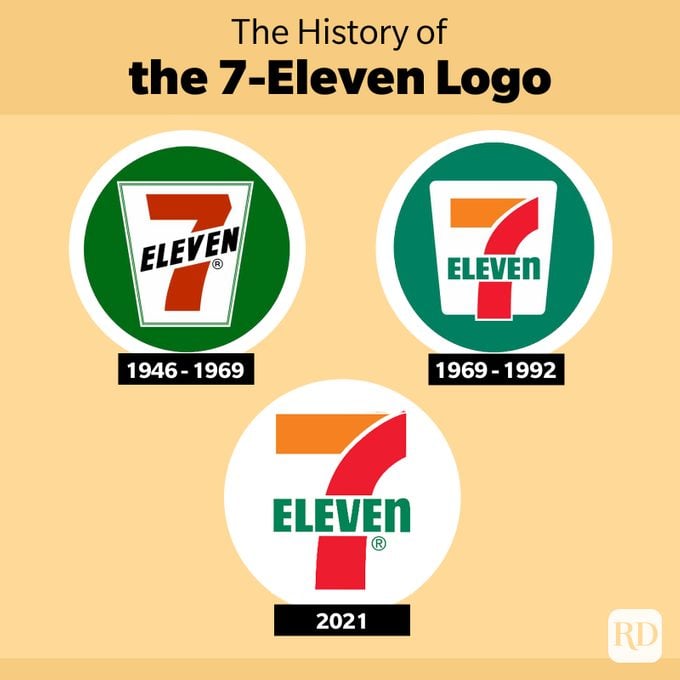
So why was 7 a numeral and 11 wasn't? 7-Eleven, Inc. tells Reader's Digest exclusively, “The specific reason is unknown.” Womp.
However, we do have some clarity about the other notable details in the 7-Eleven logo. Southland president Joe C. “Jodie” Thompson requested a new design that would stand on outdoor signs, which is why you don't associate four-leaf clovers with Slurpees.
Then, of course, there's the mildly infuriating lowercase N in the otherwise capitalized Eleven. “One theory is that Thompson's wife thought the logo seemed a little harsh with all capital letters and suggested that the capital 'N' be changed to lowercase so the logo would look more graceful,” 7-Eleven, Inc. tells Reader's Digest.
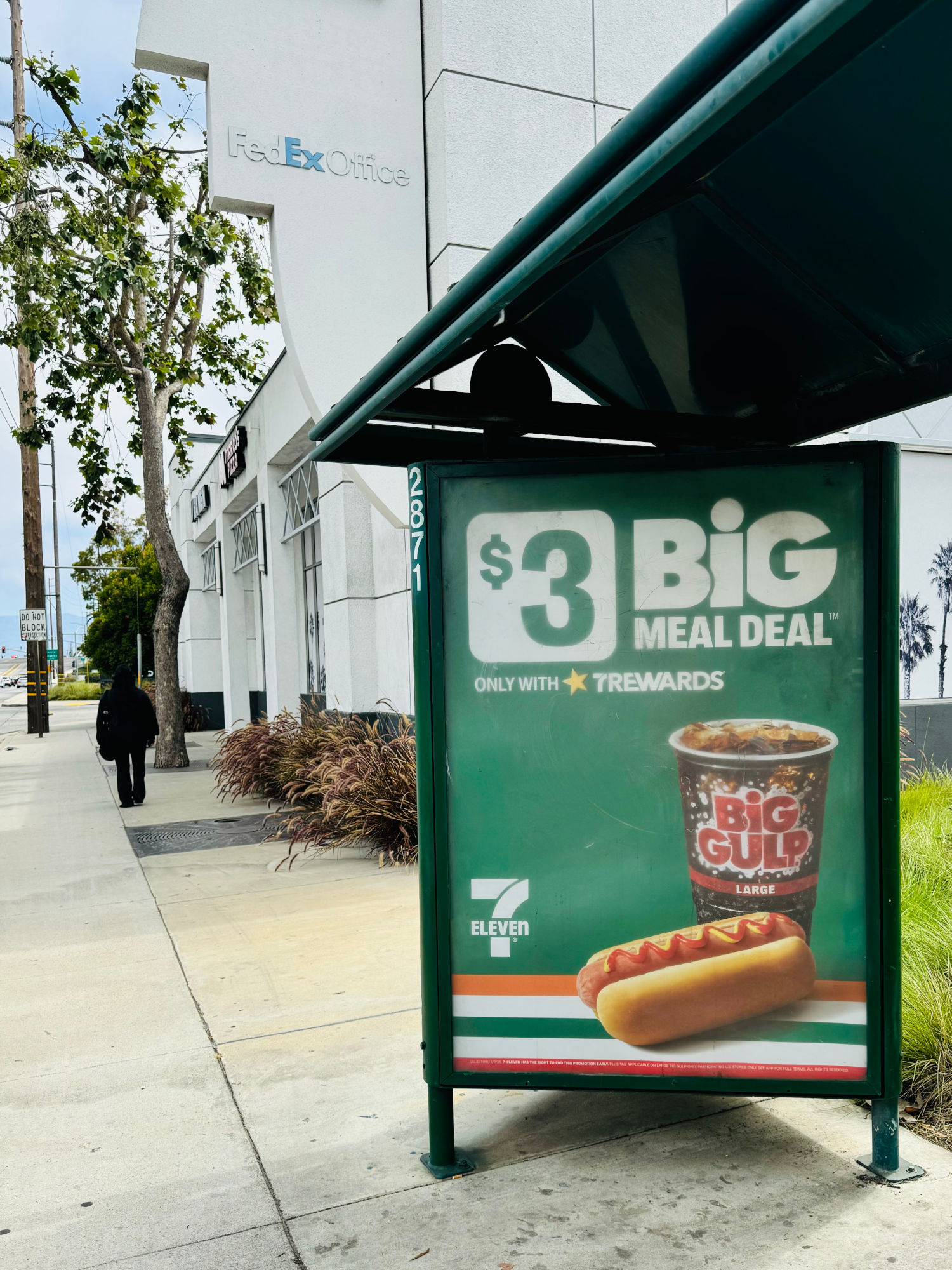
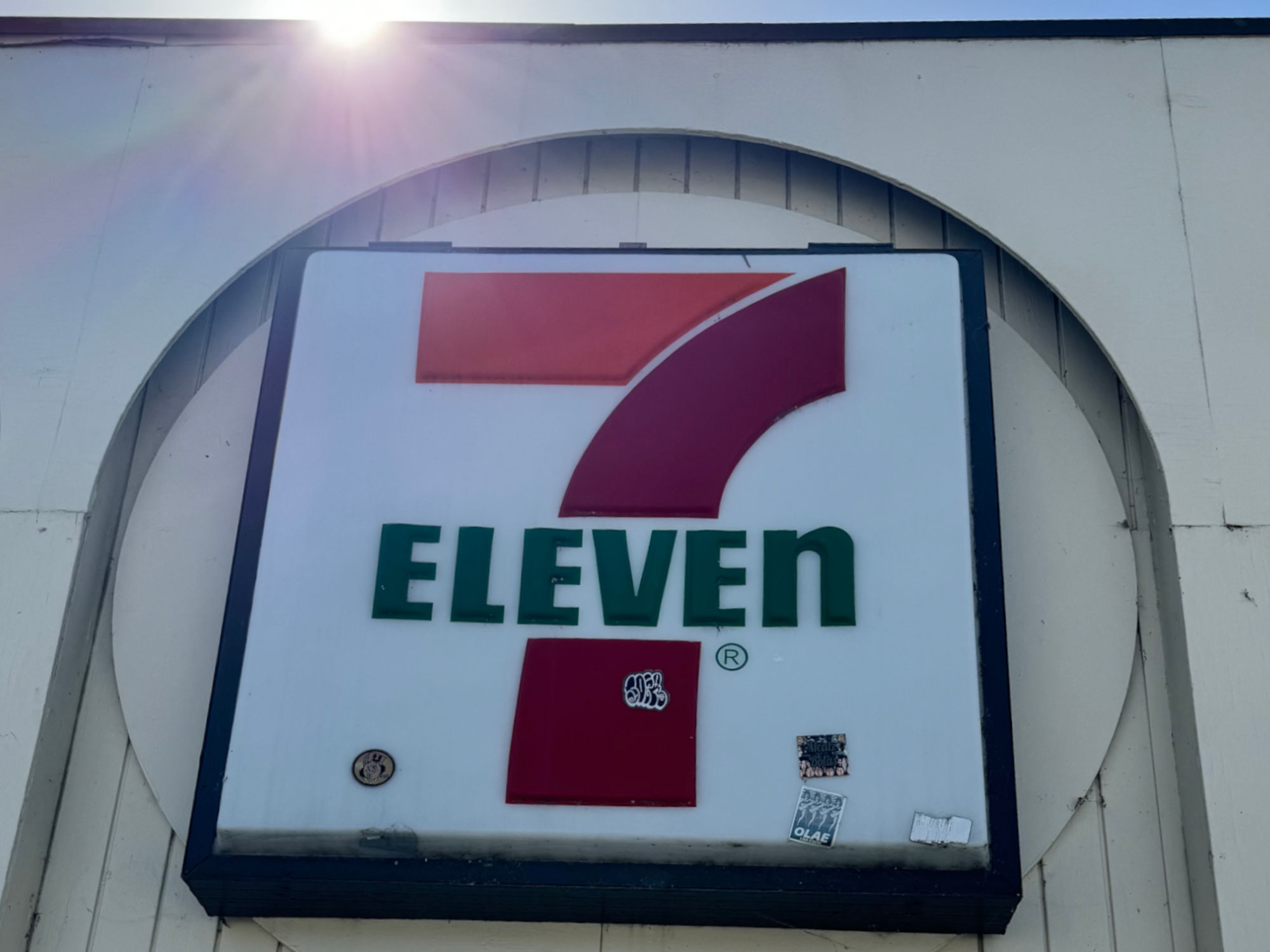
MediumKonbini - Japanese for convenience store.7-Eleven indeed originated as an American ice company
As of 2022, there are approximately 78,000 7-Eleven stores across 19 countries. However, a significant portion of them, around 21,000, are located in Japan. This is why we often associate 7-Eleven with being a Japanese brand, even though it originated as an American company.
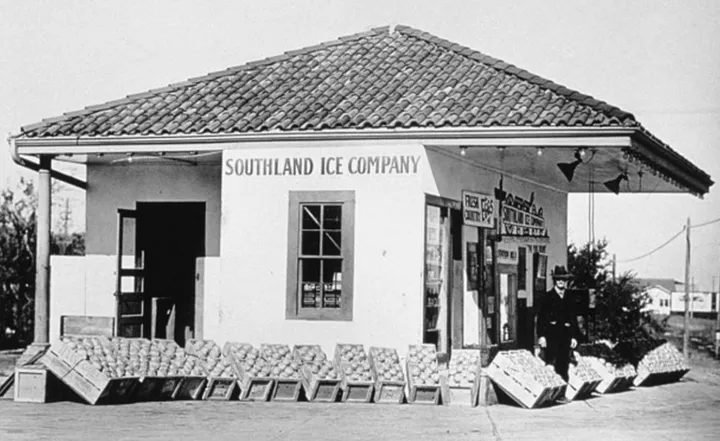
In 1927, in Dallas, Texas, the Southland Ice Company served as the prototype store for what we now recognize as 7-Eleven. Initially, they primarily sold ice, along with basic items like milk, eggs, and bread. The decision to sell ice stemmed from the belief that it was a highly sought-after commodity. However, their distinctive feature went beyond the product range. Unlike other stores that closed early in the evening, they extended their operating hours, opening early and closing relatively late. This unique approach quickly made the Southland Ice Company a favorite among customers.
The Southland Ice Company initially focused solely on selling ice and had not ventured into offering milk, eggs, and bread. However, it was an observant employee, John Jefferson Green, who recognized the potential to expand the product range by including everyday staples. Green shared his idea with his boss, Joe C. Thompson, suggesting the addition of groceries that people commonly needed. Thompson embraced the concept, leading to the successful introduction of milk, eggs, and bread in their offerings.
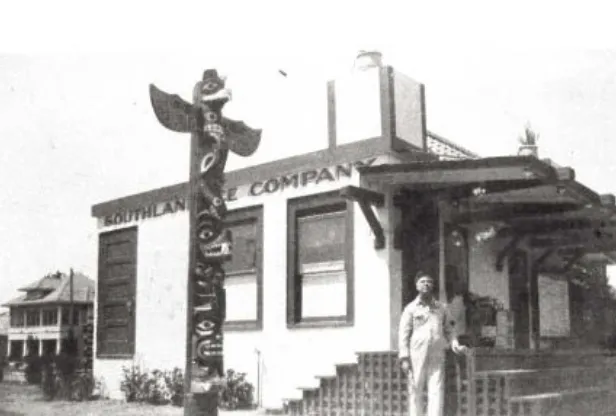
A Totem Pole was erected next to the store to capture attention, and eventually, the name was changed to Tote'm Store (derived from “tote's store,” indicating a place where items are carried over the shoulder). Passersby would stop by out of curiosity and gradually developed an affinity for the convenience store inspired by the Southland Ice Company.
7-Eleven Began Operating 24 Hours a Day
In 1946, the convenience store underwent a renaming and became known as 7-Eleven. This change was prompted by the store's operating hours, which spanned seven days a week, from 7am to 11pm. This adjustment was a result of careful observation of customer needs. During that time, many stores and general merchandise shops closed relatively early, leaving people unable to purchase their daily necessities or food when returning home from work in the evening or during the late hours. By extending their hours from 7am to 11pm, 7-Eleven significantly improved its success and customer satisfaction. The business adage “the customer is king” doesn't imply that every customer action is correct, but rather emphasizes the importance of understanding and anticipating their needs, and offering items that fulfill them. 7-Eleven's unwavering focus on customer needs has greatly contributed to its ongoing development.By the late 1950s, 7-Eleven had expanded from its Texas origins to the East Coast. In 1963, after a football game, when faced with a surge of customers, 7-Eleven realized the potential of staying open beyond the usual 11 p.m. closing time. This realization led to the birth of the 24-hour convenience store concept.
7-Eleven Finally Arrives in Japan - The Significance of Local Partners
In 1974, 7-Eleven launched its first Japanese store in Toyosu, Japan. The remarkable success of 7-Eleven in Japan can be attributed to the effective localization and differentiation strategies implemented by their local partner, Mr. Yukado Ito. With prior experience in managing supermarkets in Japan, Mr. Ito played a vital role in establishing 7-Eleven's presence in the Japanese market.
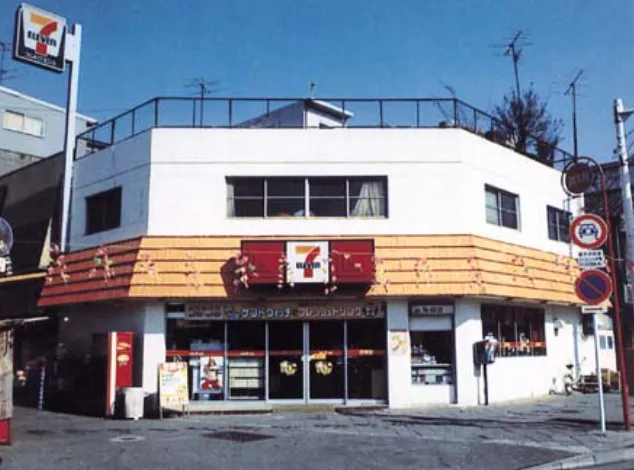
Here's how 7-Eleven in Japan has achieved greater success compared to its U.S. counterpart.
- Thorough Localization: Emphasizing adaptation to the local market and environment.
- Local Partners with Retail Experience: Collaborating with experienced local partners.
- Commitment to Customer Needs: A strong dedication to meeting customer demands.
- Loyalty through Cleanliness and Convenience: Building customer loyalty through cleanliness and convenience.
- Extensive Product Lineup: Offering a wide range of products, making it a one-stop shop.
- Agile Decision-Making: Leaders making faster and efficient decisions.
- Comprehensive Clerk Training and Friendliness: Prioritizing thorough training and fostering friendly interactions with customers.
- Strategic Store Placement: Conducting thorough research to identify locations where convenience stores are needed.
Whether customers needed scissors, scotch tape in the middle of the night, or suddenly desired an apple, they could find them at a 7-Eleven store.
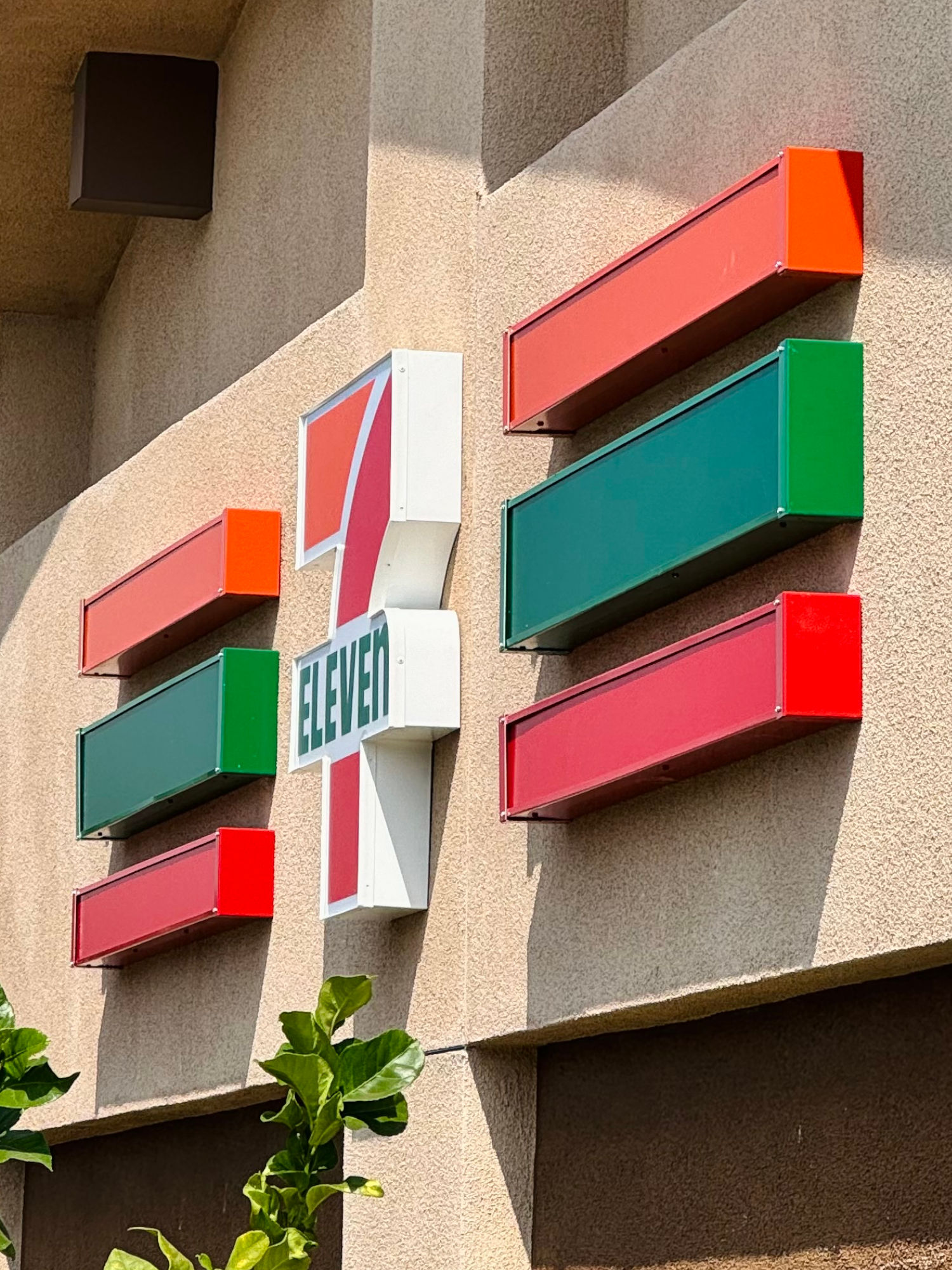
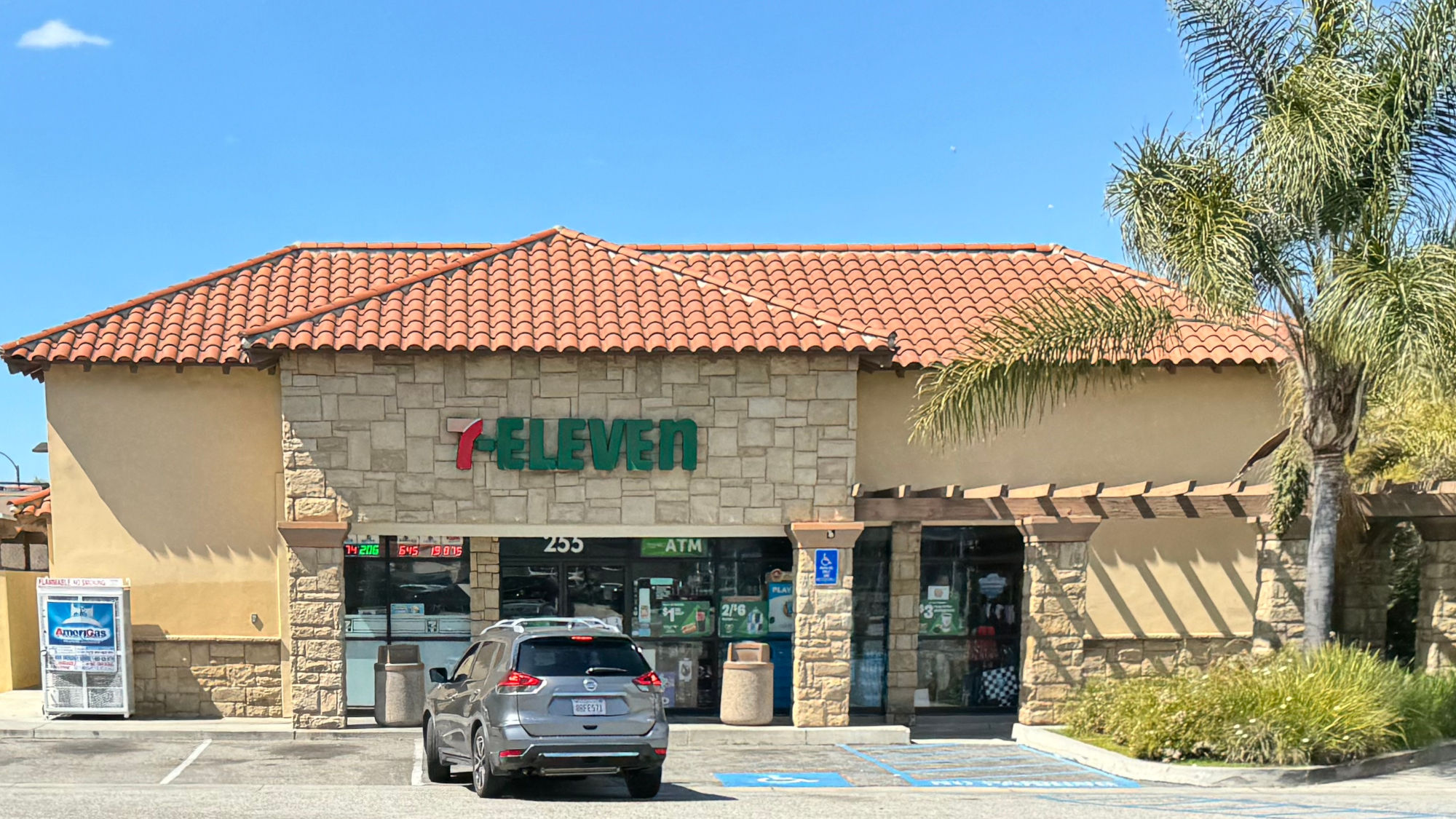
Mashed7-Eleven is a Convenience Store Institution
With over 70,000 locations worldwide by its own tally, 7-Eleven is the world's one-stop shop for fuel, snacks, and its trademark Slurpees.According to Britannica, the company's beginnings originated in 1927 in Dallas, Texas. Initially called Tote'm Stores, 7-Eleven was once an old-school ice house that sold ice blocks to families without electric refrigerators to safeguard their food. It was not until after the Great Depression and a subsequent bankruptcy that Tote'm Stores re-emerged with a new business model.
When electric refrigerators became more widespread, the demand for ice houses dwindled tremendously. In tandem with the repeal of prohibition in 1933 (per National Archives), Tote'm Stores started selling alcohol. And what good is a boozy beverage without some snacks to match? With a new repertoire of items for sale, so began the Texas ice-house's transition into becoming the hot spot for on-the-go bites and drinks it is known as today.
Following their new-and-improved business model - boasting beer, wine, bread, chips, and more - the ice house turned retailer was more popular than ever, and with popularity comes high demand. In an effort to stay open longer and later for their loyal and fast-rising customer base, the convenience store extended its hours from 7 a.m. to 11 p.m. In a blunt re-branding, Tote'm Stores changed its name to 7-Eleven (via Britannica). Sometimes the answers to all your questions are in the name itself.
It was not until the late '50s though that 7-Eleven really began to dominate the convenience store industry. The mini-market broke out of Texas, expanded operations, and opened a series of successful flagship stores on the East Coast and beyond the confines of American soil. In 1963, 7-Eleven elevated its business model once again by experimenting with 24-hour operations. Re-inventing the wheel, 7-Eleven went on to become the first 24-hour convenience store in history (per 7-Eleven).
Although it no longer reflects its hours of operation, the name 7-Eleven was immortalized through the retailer's trailblazing efforts that shaped the future of quick and convenient shopping.
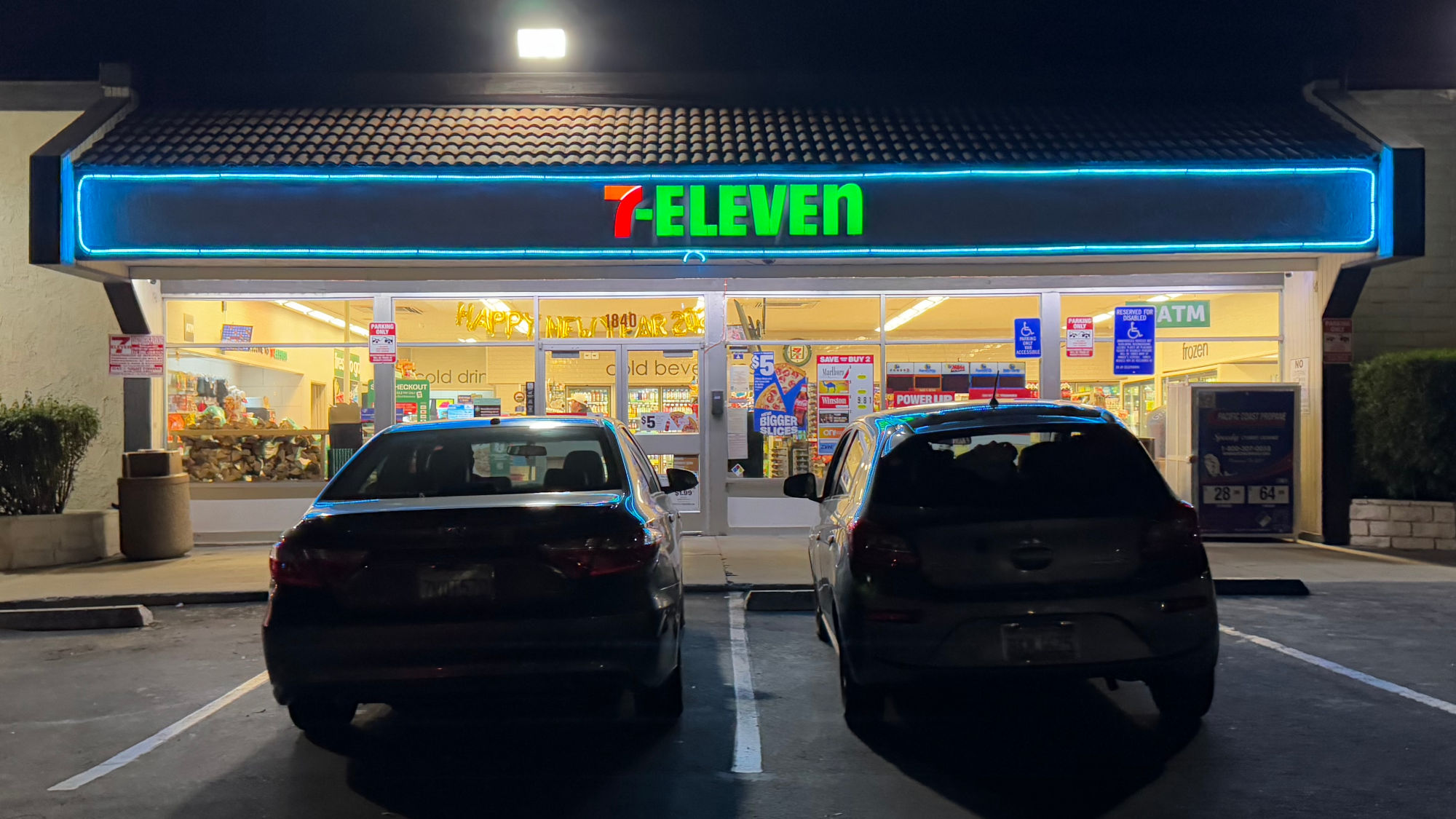
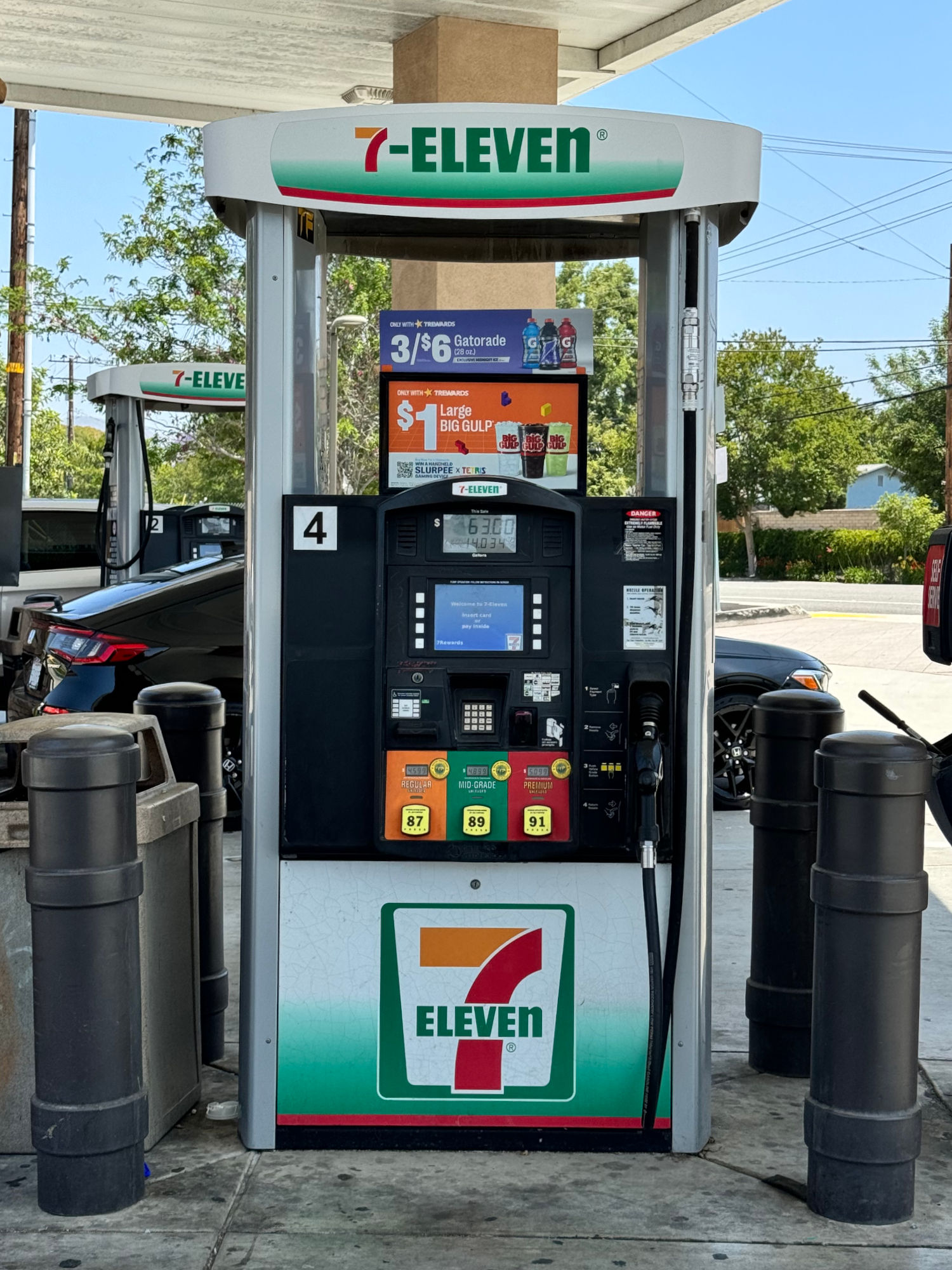
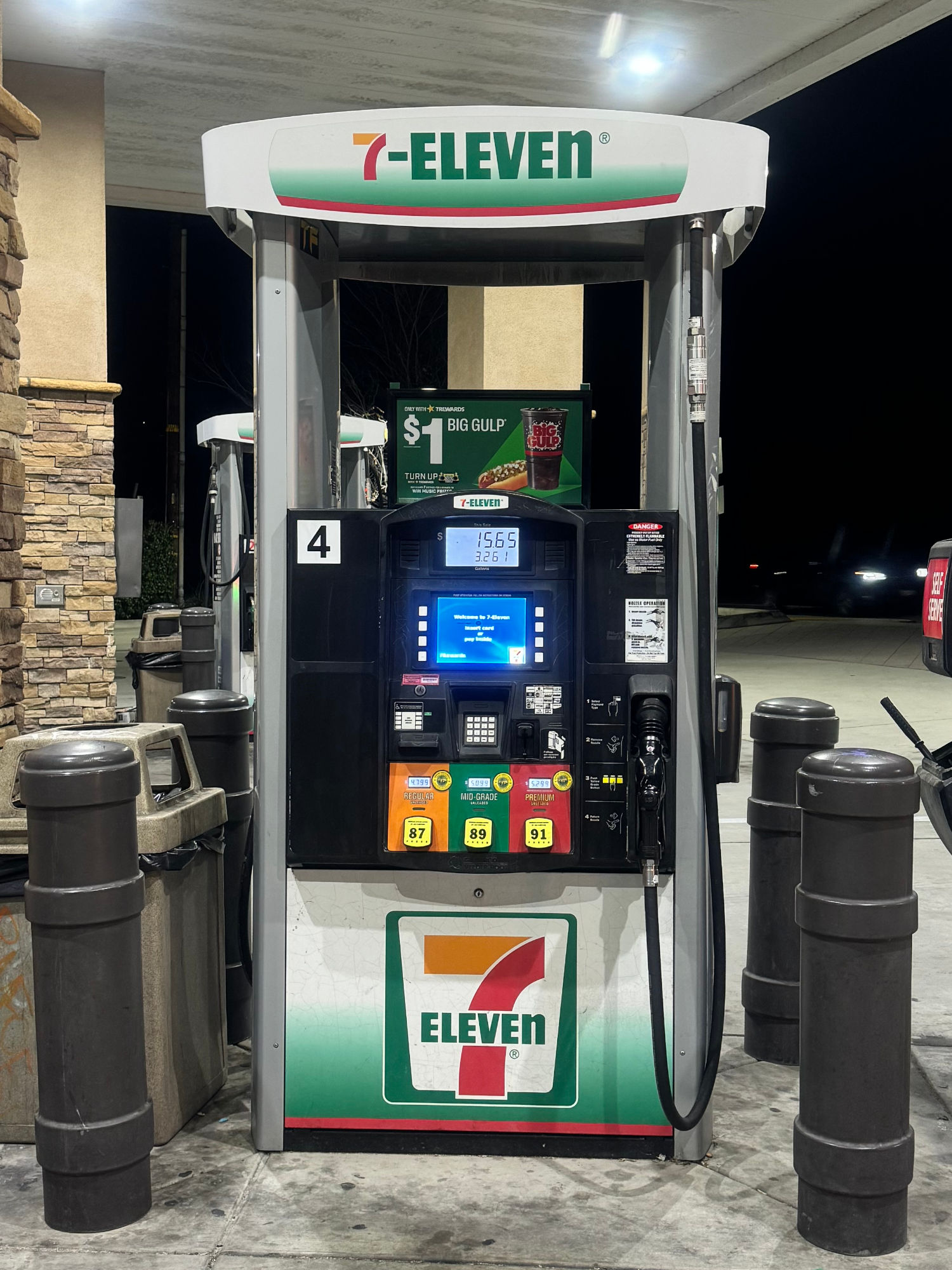
- They Began as Ice Stations
The first location of the company that would become known as 7-Eleven, then called the Southland Ice Station, opened in Texas in 1927. As the name suggests, it was just an ice station, which sounds like an unprofitable business these days, but domestic refrigerators were barely a thing and much less a thing your average family owned, so those coolers at the back of the store were once the whole business.- They Invented Convenience Stores
The same year, an ice station employee who was apparently called “Uncle Johnny” by people who were not his nieces or nephews suggested to Southland executives that they should sell basic food staples and cigarettes, since their stores were open at times grocery stores weren't. It turned out plenty of people needed smokes on Sunday nights, so that weird uncle's idea soon became their primary business model.- Tote'm Stores
As “Southland Ice Station” became an increasingly inaccurate name, one manager promoted her store by installing a souvenir totem pole out front, prompting the company to do the same at all of their stores, which were renamed “Tote'm Stores” because customers “toted” items away from them. Yes, that's just a store, but who can resist a deeply problematic pun?- The Seven Cents Bond
The Tote'm Stores had the misfortune of opening right at the beginning of the Great Depression, which left them on the brink of bankruptcy until a prominent local banker helped them reorder their finances, which included selling bonds for seven cents on the dollar, proving they can turn anything into a gimmick. Okay, they weren't called 7-Eleven back then, so it wasn't quite as clever, and what really turned things around for the company was the repeal of Prohibition, which meant they could start selling beer.- From 7 to Eleven
In 1946, the company decided to extend their hours even further and possibly started to realize how troubling their name was, so they renamed the stores 7-Eleven because they were open from seven in the morning until 11 at night.- More Like 24-Seven
Fewer than 20 years later, however, their hours changed again after a bunch of University of Texas students rushed their local 7-Eleven after a football game, forcing the store to stay open late. The late-night sales were so huge that the company decided to keep every store open 24 hours a day, but they'd really burned themselves out on name ideas, so they kept “7-Eleven.”- The Invention of Slurpees (By Not Them)
Slurpees are the company's flagship exclusive, the cornerstone of any good 7-Eleven run, but they were invented by a Kansas City Dairy Queen owner in the late '50s. He called them ICEEs, which is what they're still called everywhere that isn't a 7-Eleven because the company just licensed his machine, renamed them, and pretended it was their idea all along.- Why the Lowercase “N”?
The 7-Eleven logo has remained remarkably consistent since its final renaming, with one major exception: the lowercase “n.” The thorn in the side of every typographer was implemented in 1969, possibly after the founder's wife suggested the all-capslock logo felt aggressive, especially the “N.” Rather than lowering everything, which would have messed up the vertical alignment, they only changed the “N,” messing up our heads instead.- The Oklahoma Exception
If you ever made a 7-Eleven stop in Oklahoma on a road trip through the boring middle parts of the country, you might have worried that you drove through a wormhole. There wouldn't have been any Big Bites or Slurpees, only “Icy Drinks” and “7th Heaven” bakery products. That's because, from 1953 until just recently, 7-Eleven stores in Oklahoma were all independently operated. Sadly, the corporation bought them back in 2020, putting an end to out-of-state freakouts forever.- Taking a Big Bite Out of Oscar Mayer
In 1988, 7-Eleven began selling their Big Bite hot dogs as part of a collab with Oscar Mayer, who concocted a “special spice formulation” for the exclusive brand, but otherwise, the company's instructions for differentiating themselves in the sausage market boiled down to “make 'em real big.” It definitely worked: 7-Eleven is now the number-one source of fresh grilled hot dogs in North America.- Why Asian 7-Elevens Are So Much Better
When 7-Eleven started expanding internationally in the '70s, they initially struggled with Asian consumers, who found their prices too high and selection too skimpy. As a result, 7-Elevens in Taiwan started offering way more stuff, including a much wider variety of fresh food, until 7-Elevens all over Asia started resembling the tiny shopping malls they do today.- They Claim They Coined “Brain Freeze”
Although it's been used in reference to the ice-stabby sensation since at least 1991, 7-Eleven claims to have coined the term “brain freeze” in 1994 to describe what happens when you drink a Slurpee too fast. They even trademarked the drink name “BrainFreeze”.- The Trouble With Slurpee Day
In 2002, 7-Eleven started offering free Slurpees on July 11, which is great for Americans but confusing for countries that use a day/month/year date format and also less appealing to the southern hemisphere, where July is the middle of winter. That's why, in Australia, Slurpee Day falls on November 7.- The Gulpening
In 2012, following decades of ever Bigger Gulps, 7-Eleven quietly changed the size of the Double Gulp from 64 oz. to 50 oz. Many believed it was because of local ordinances limiting the sizes of soft drinks, but 7-Eleven insists it was because they'd gotten too big for the average car's cupholder.- They Have a Wine Empire
In the mid 2000s, 7-Eleven entered the wine business, and by 2021, they had five different private labels.
